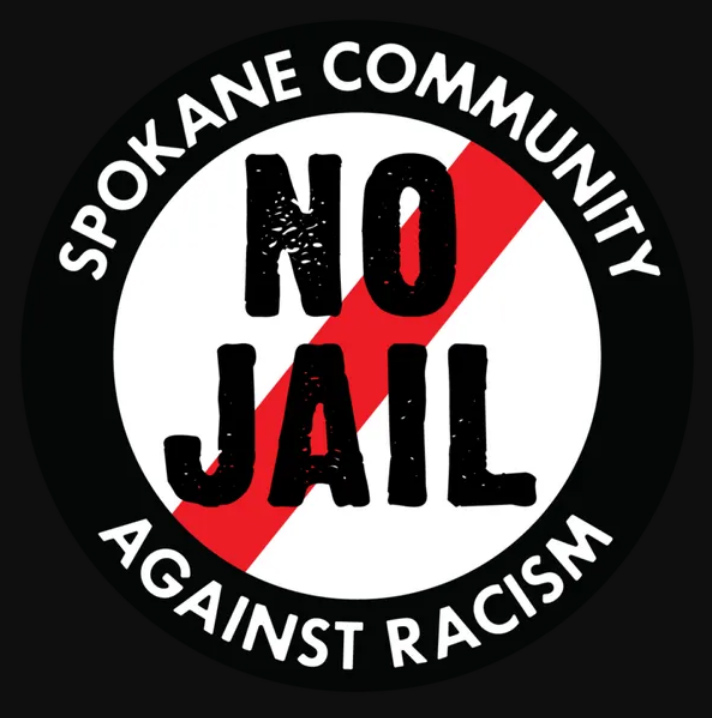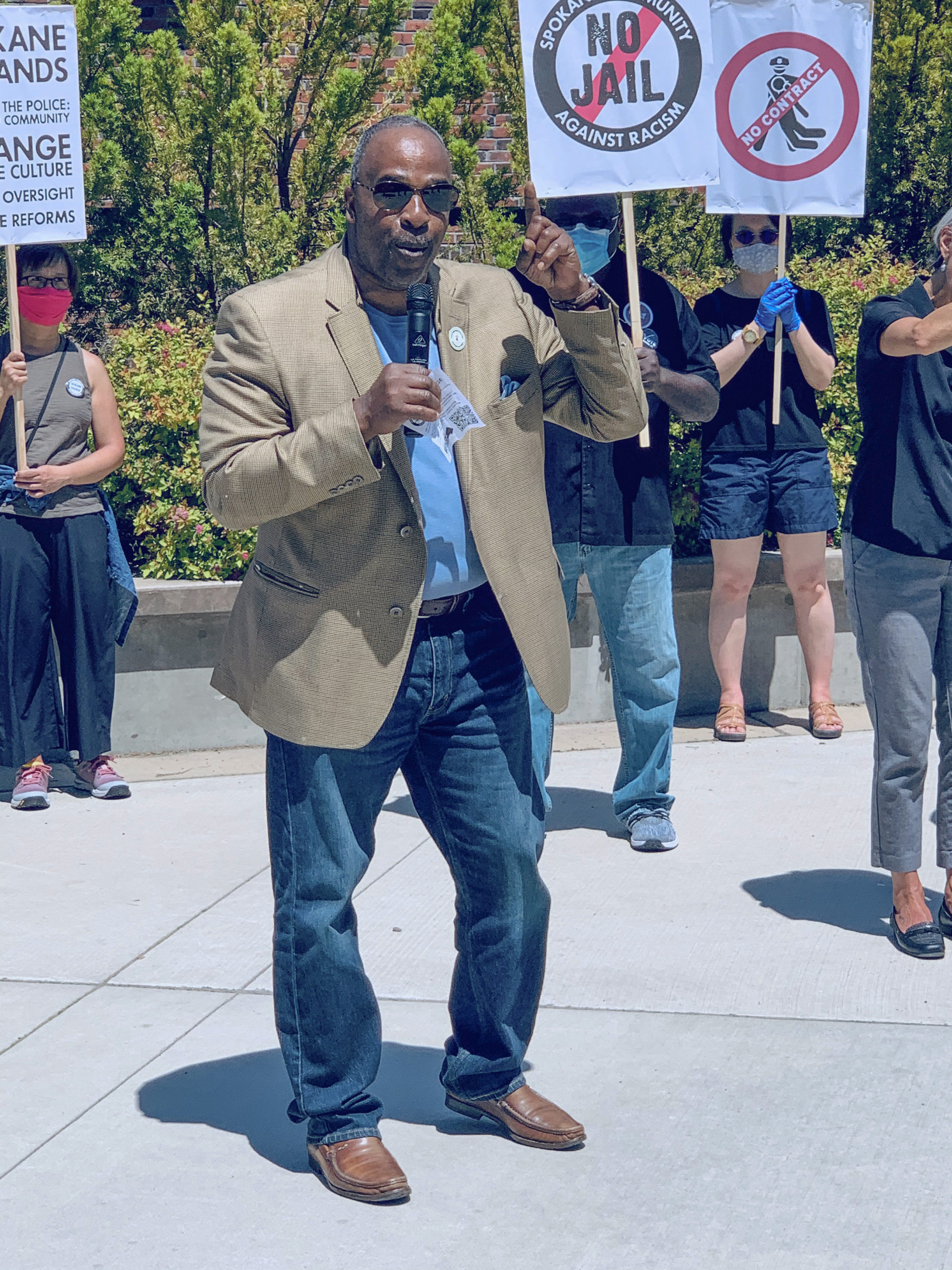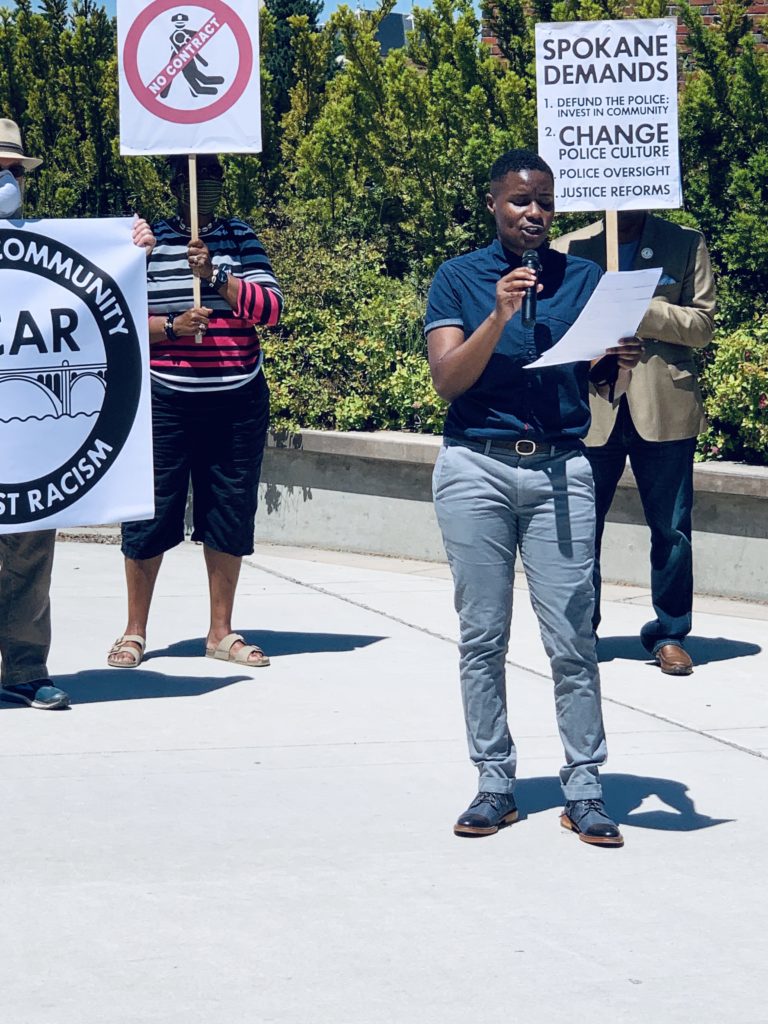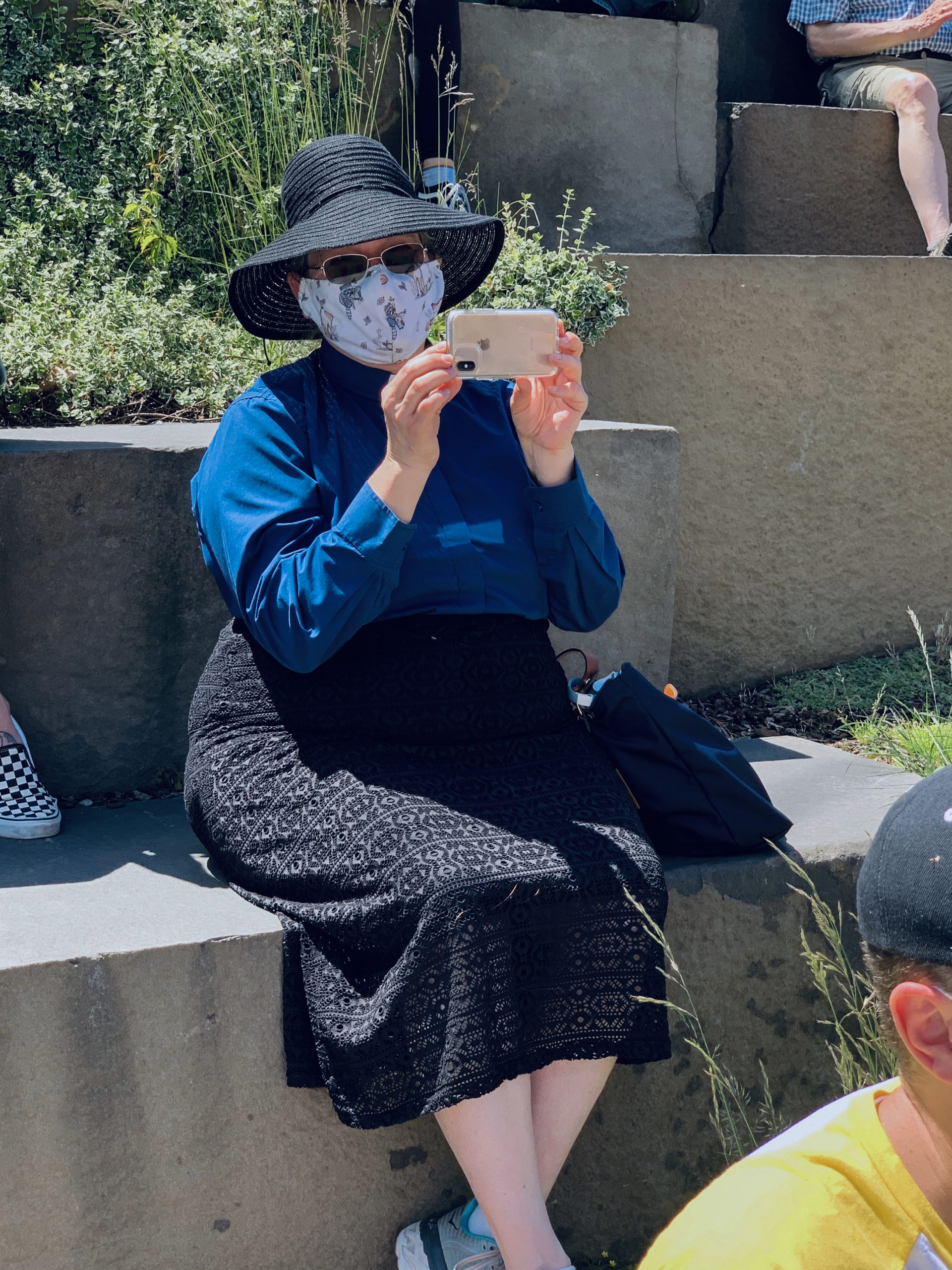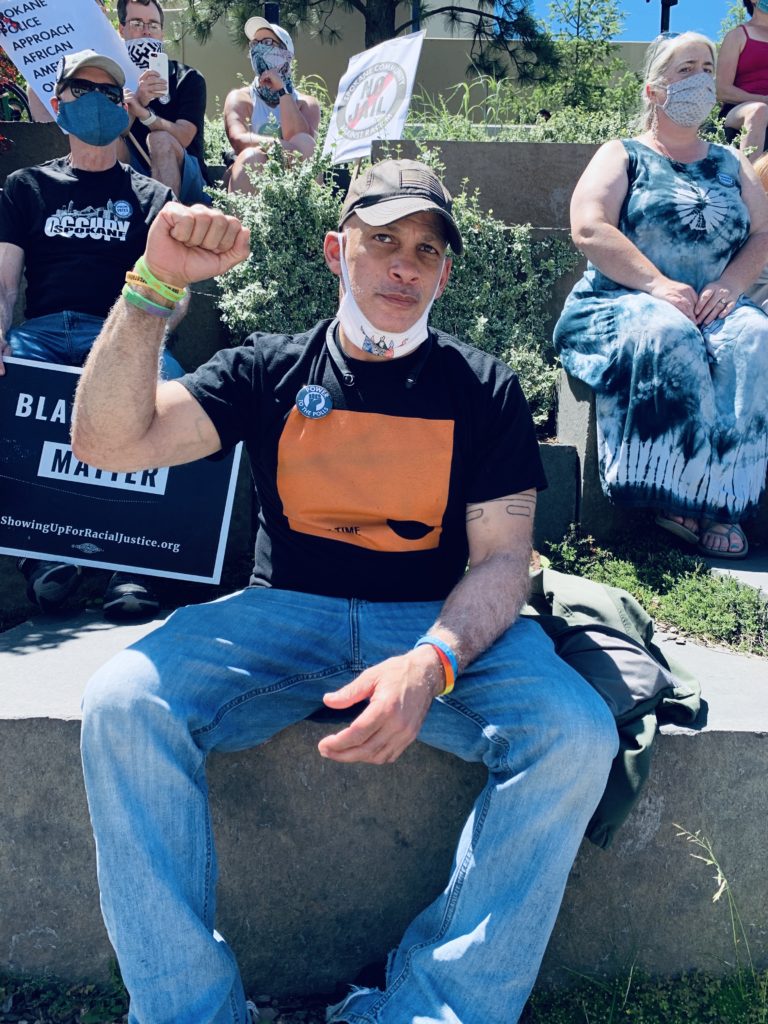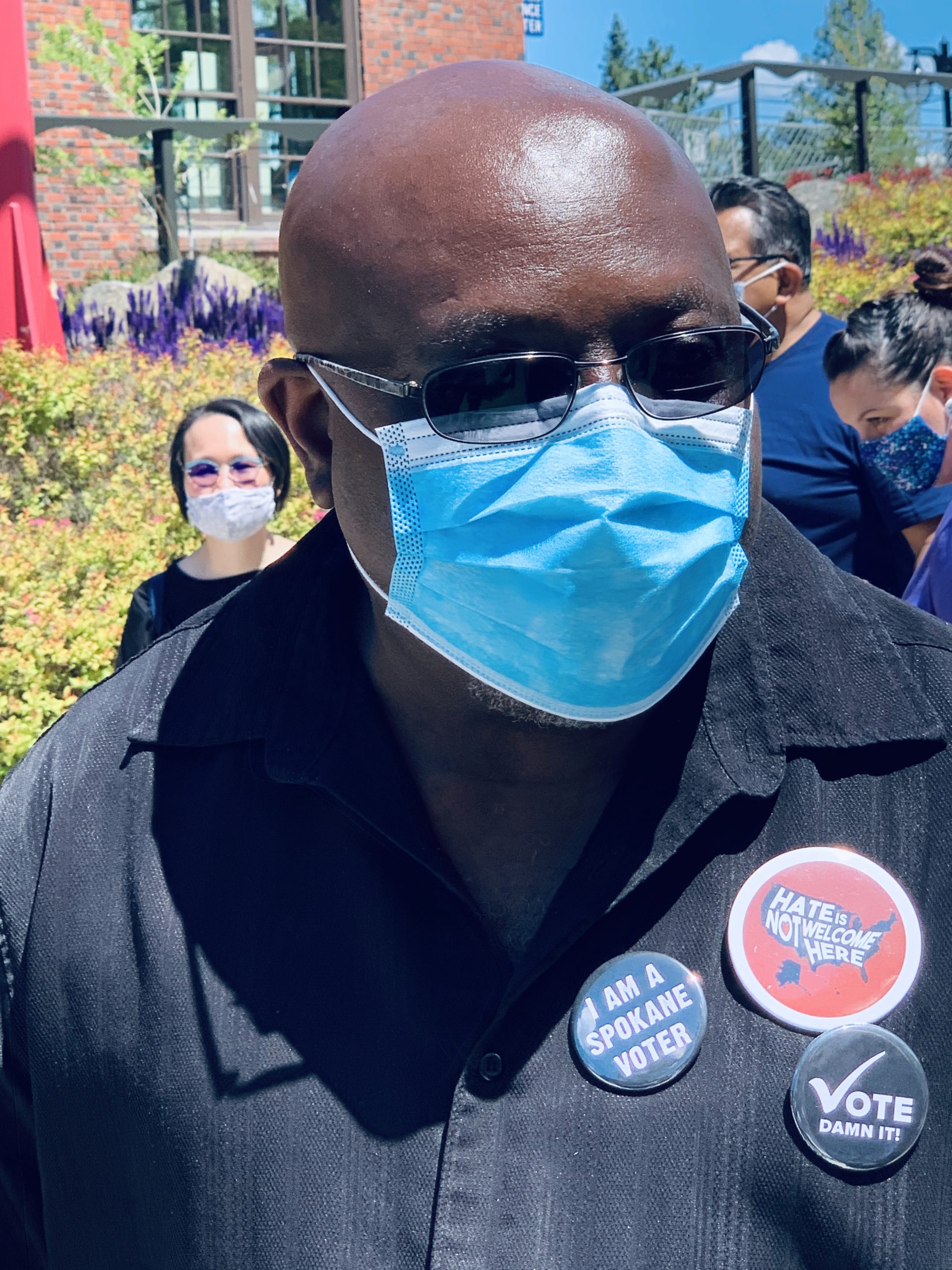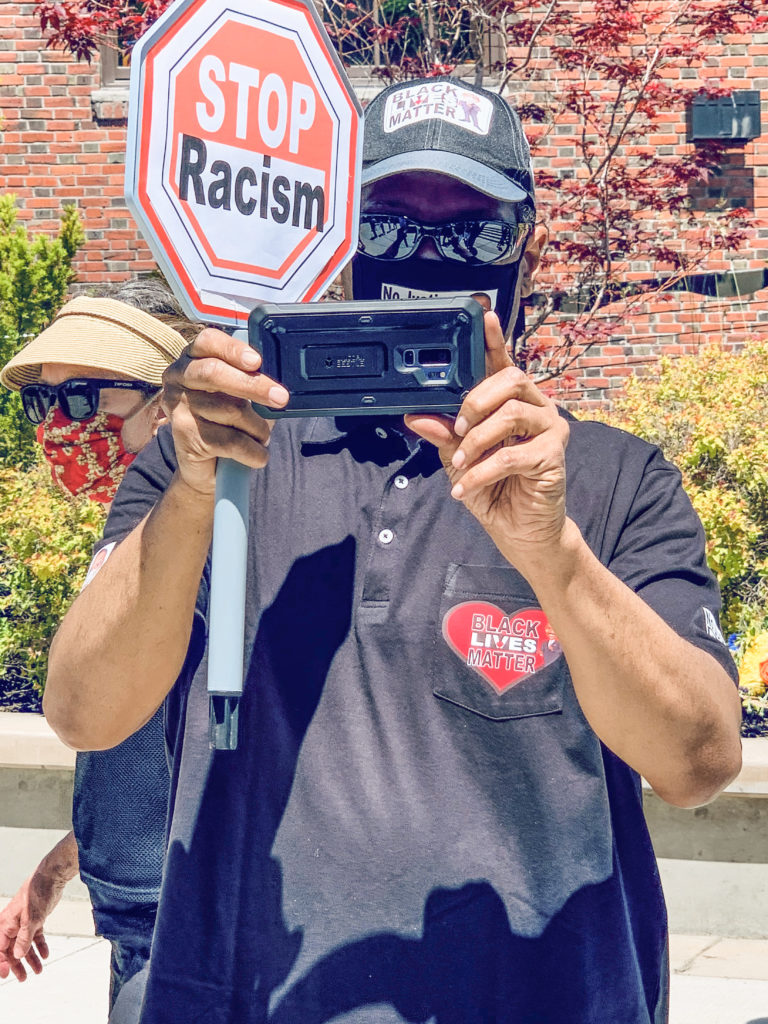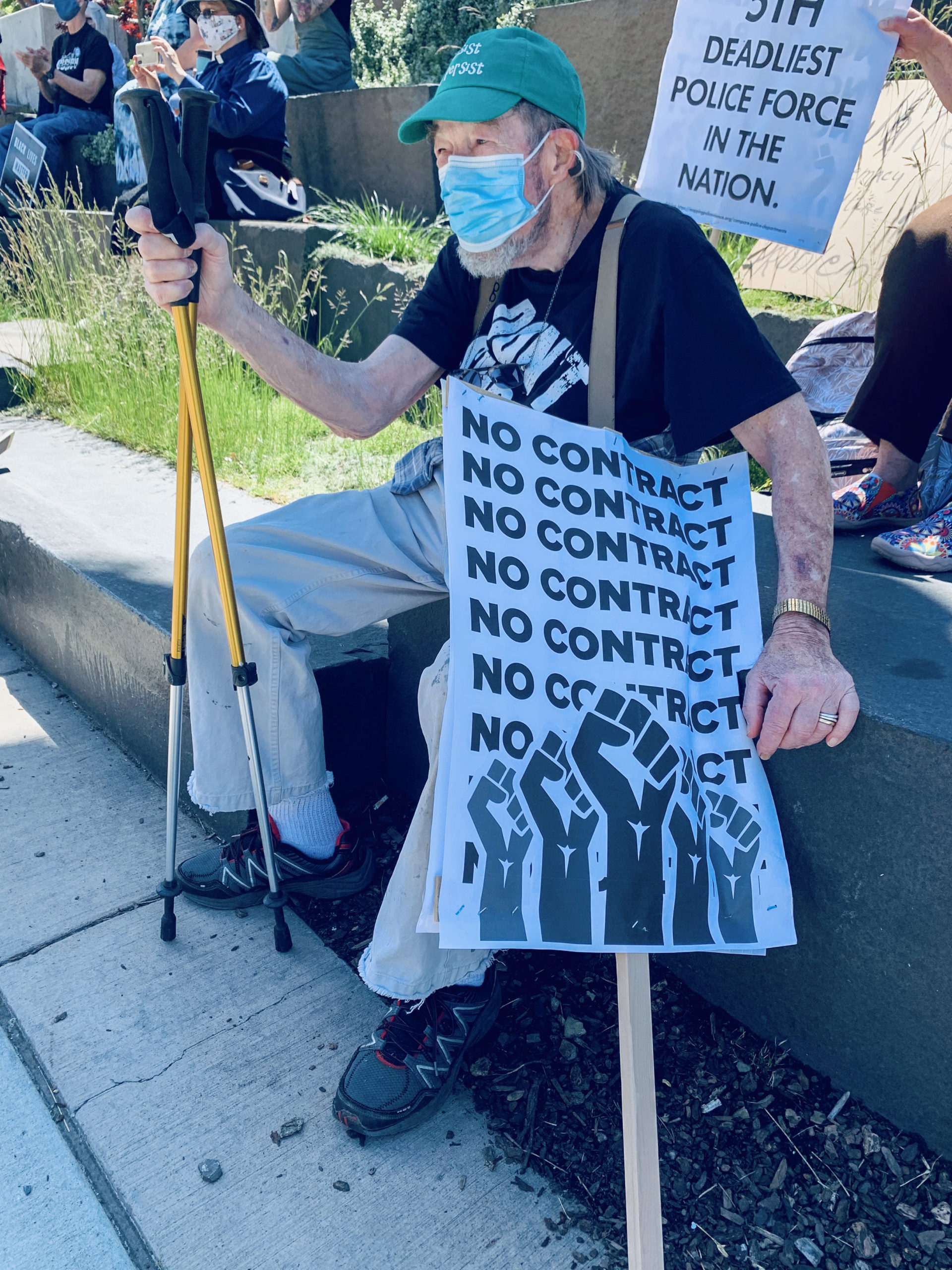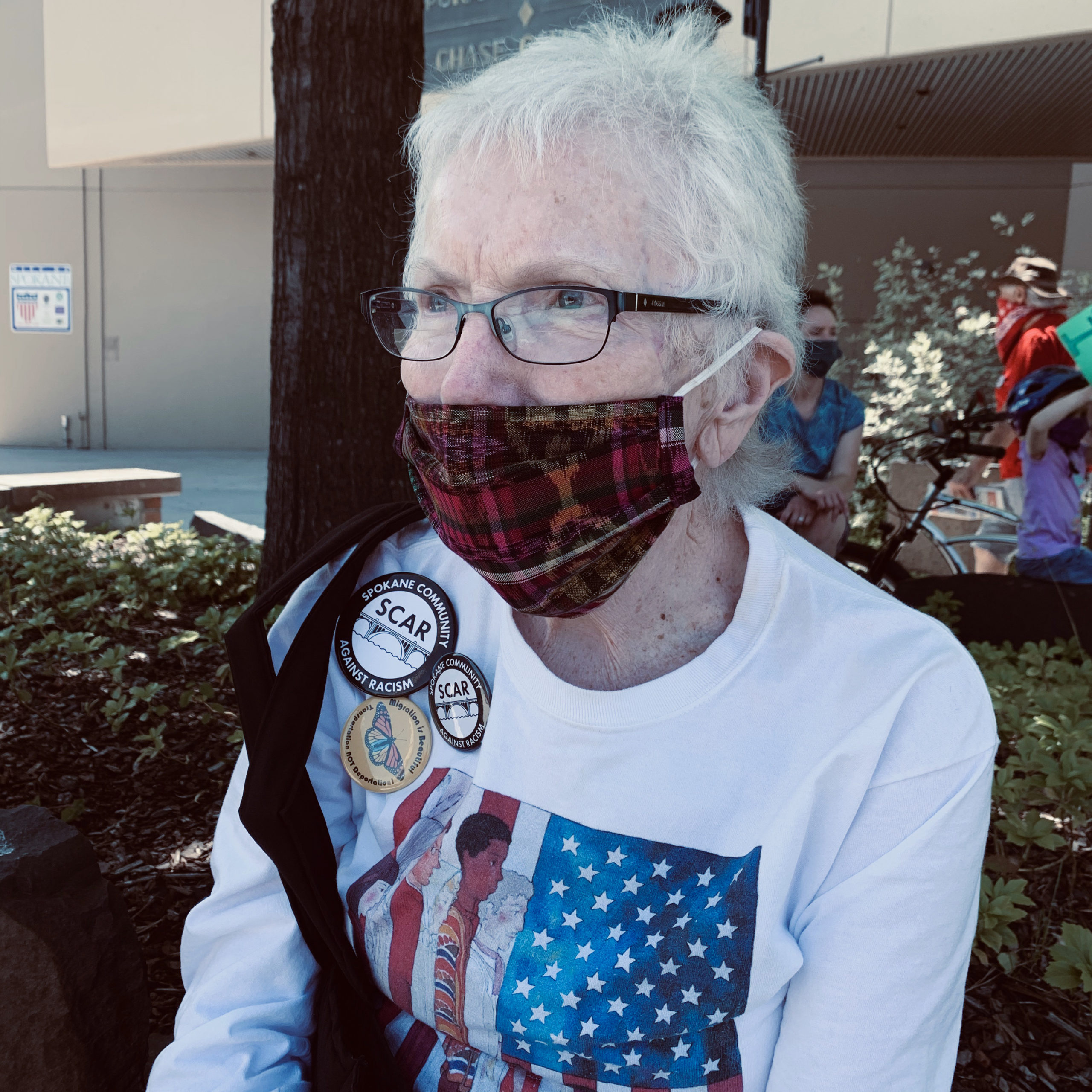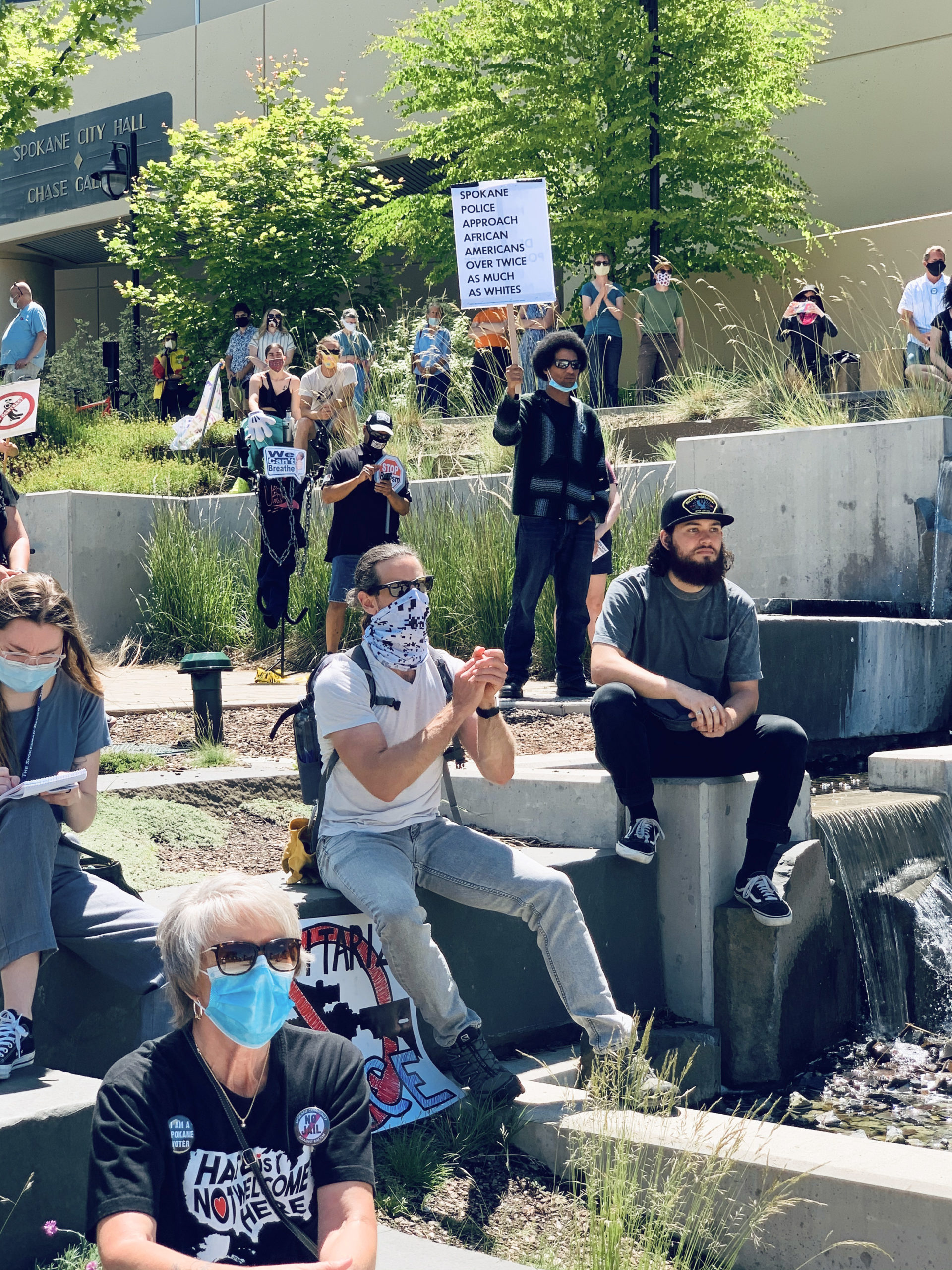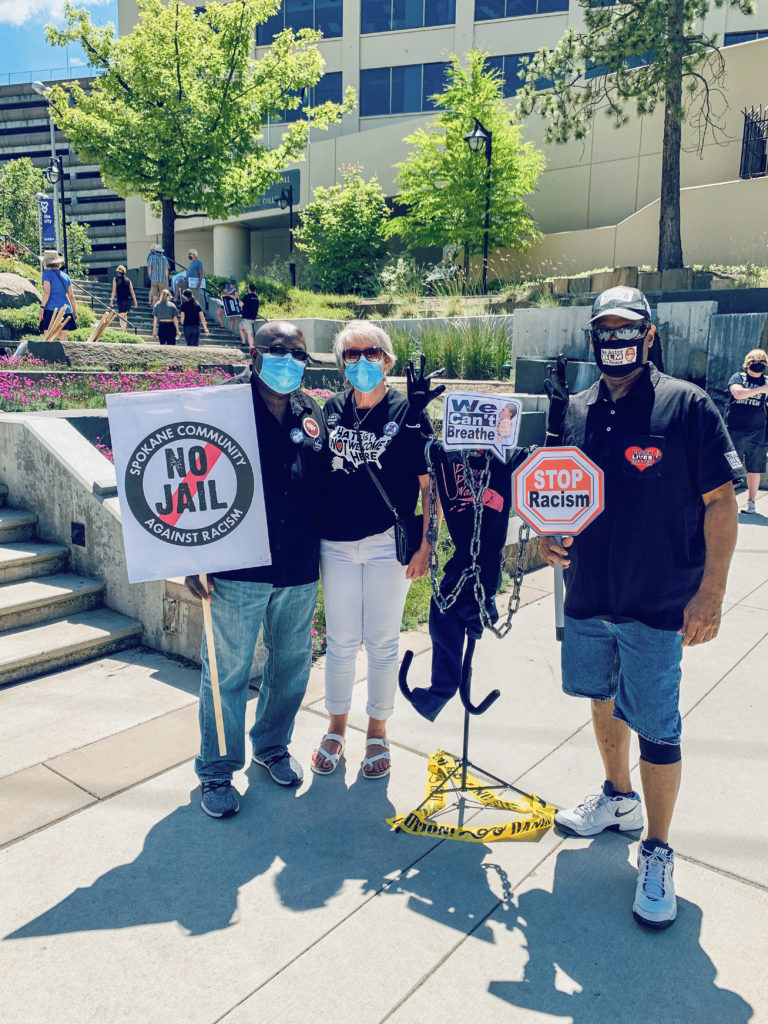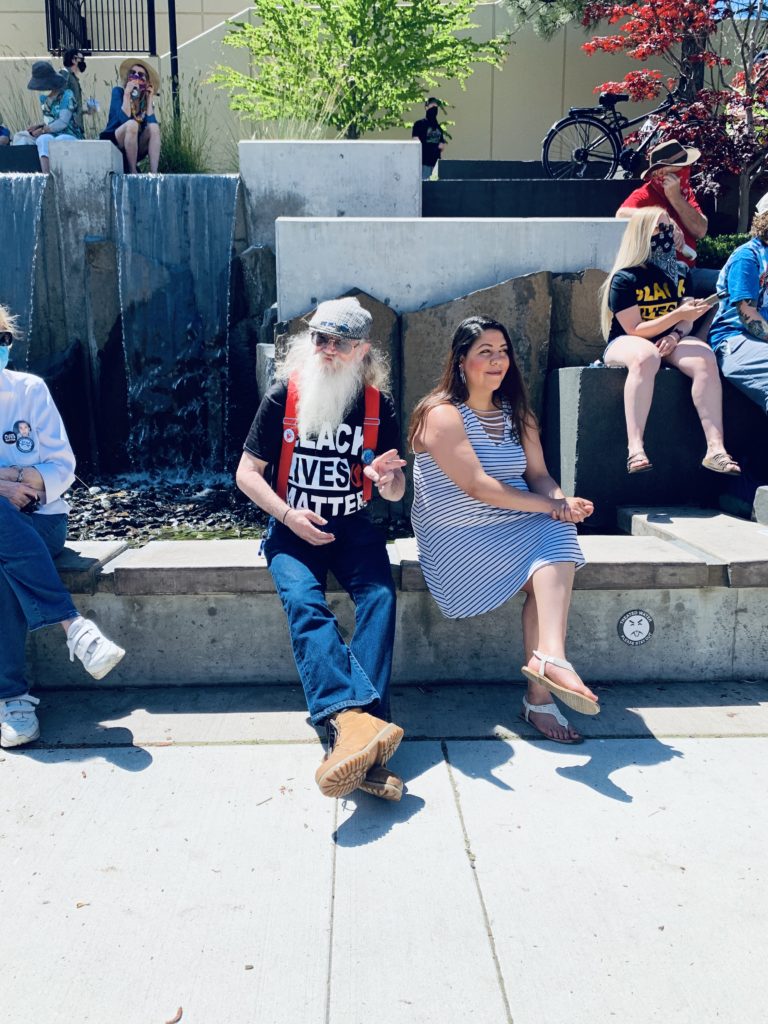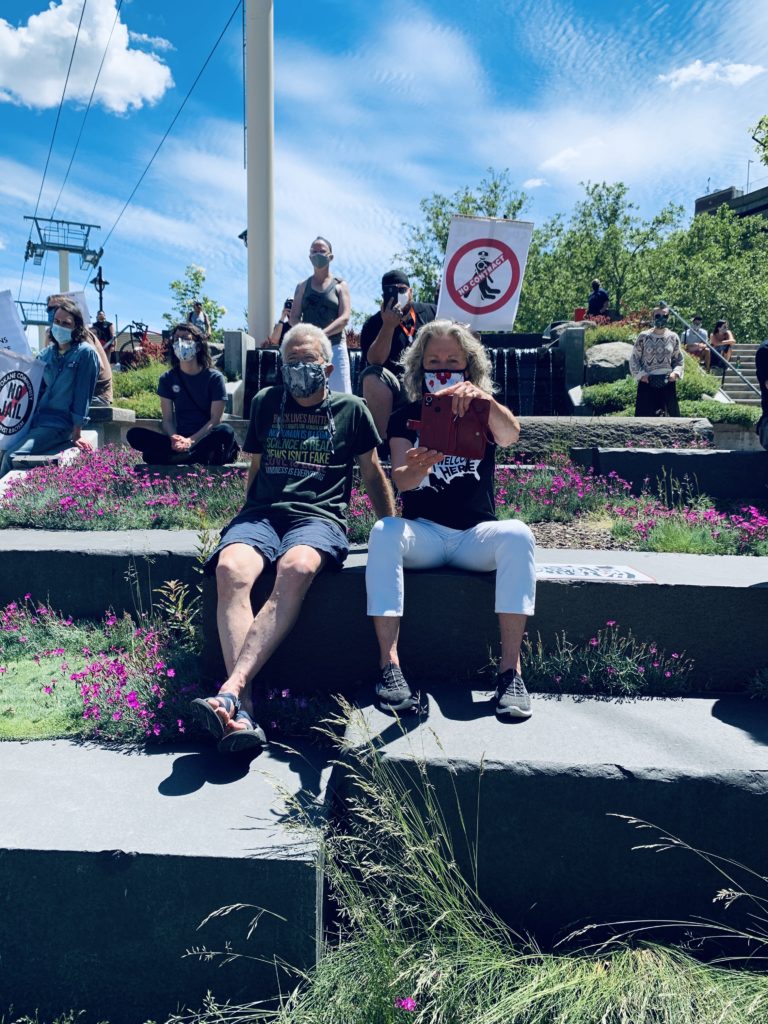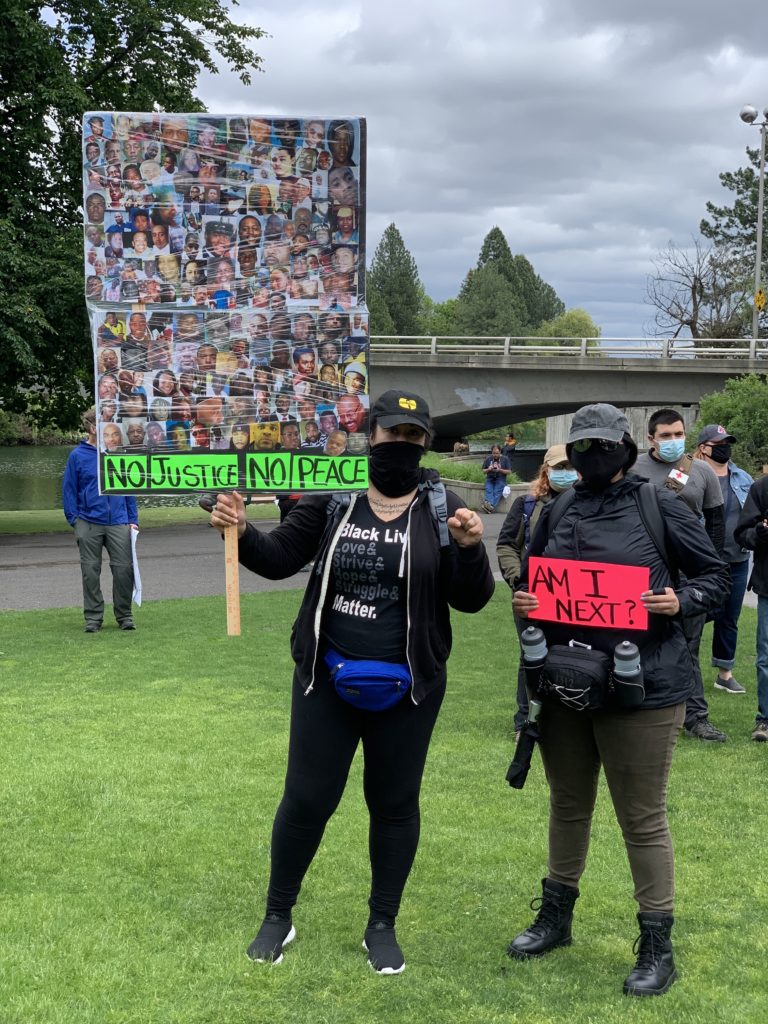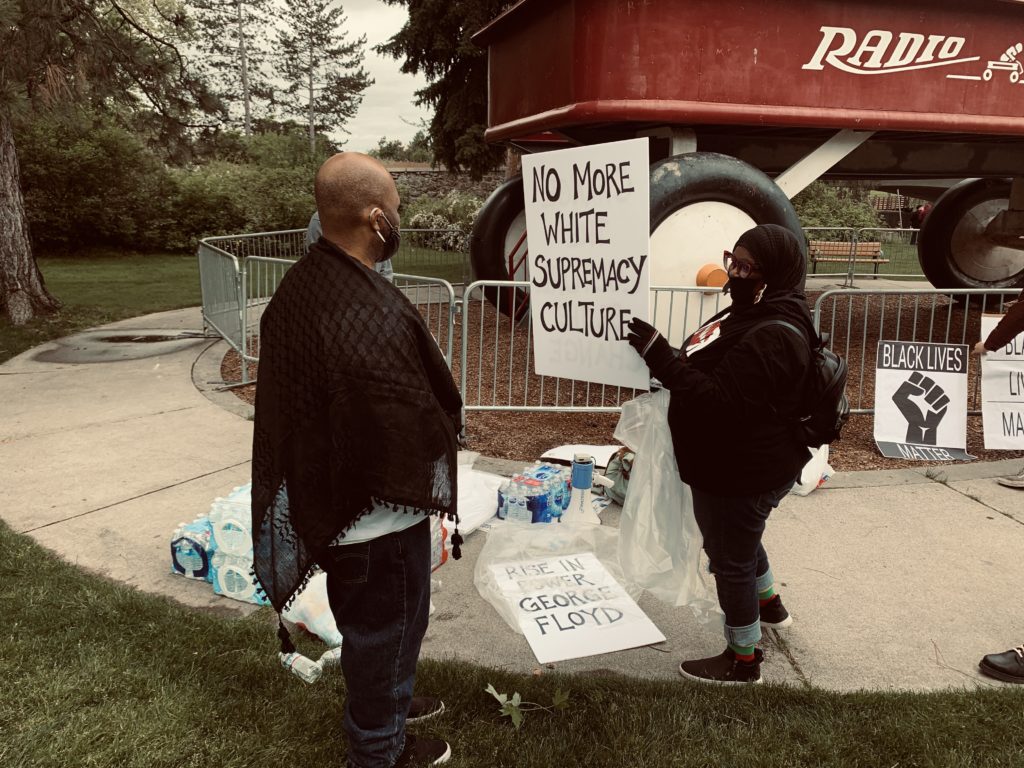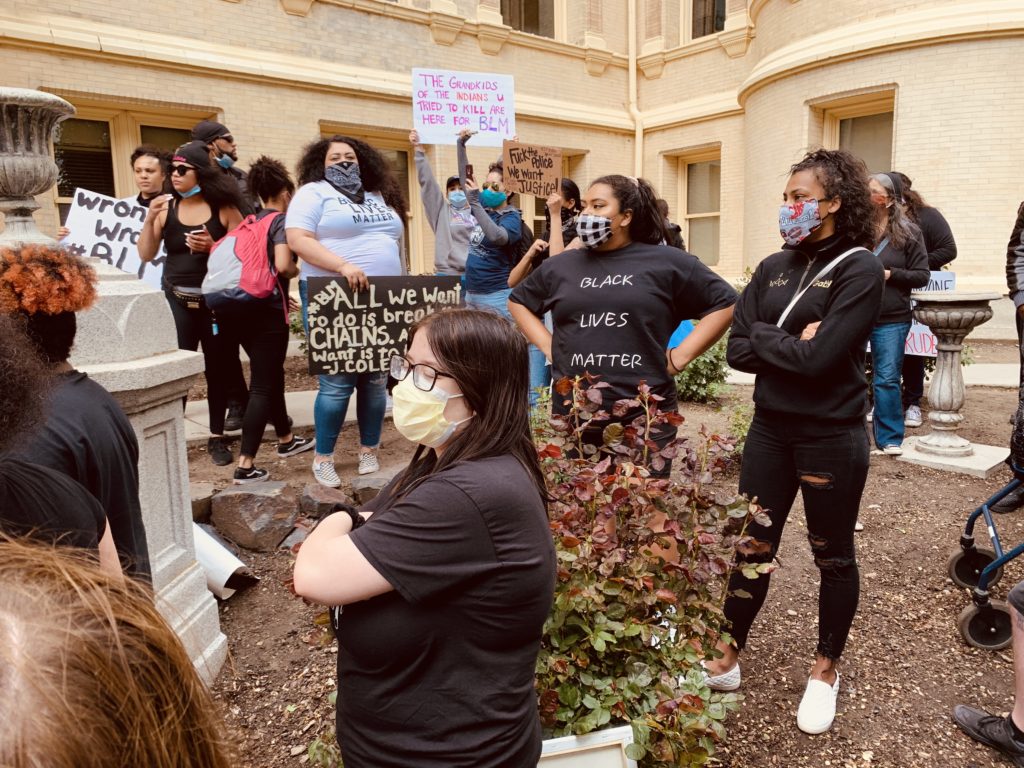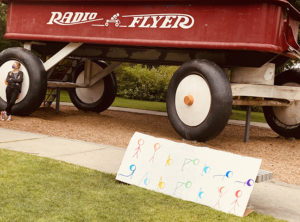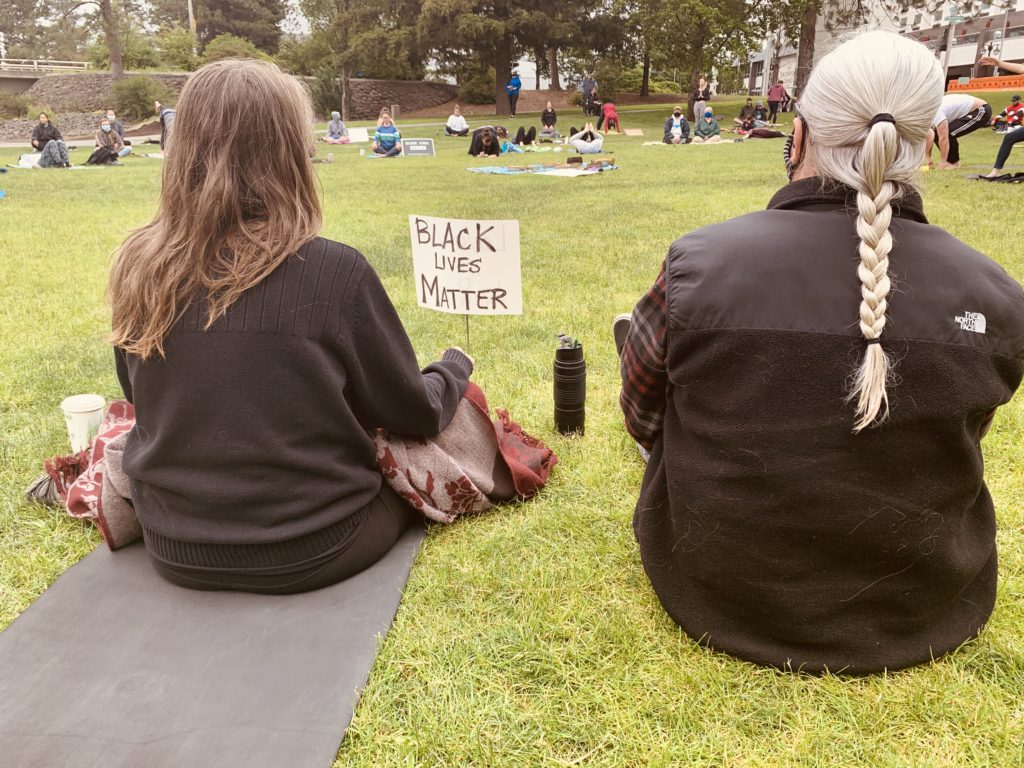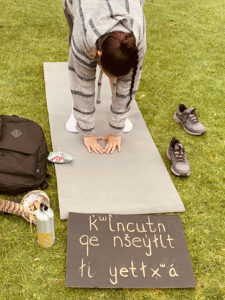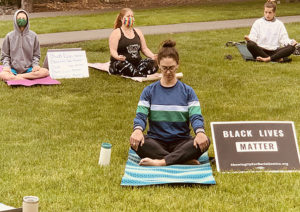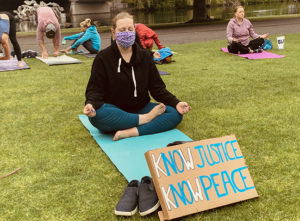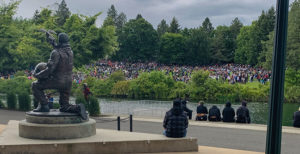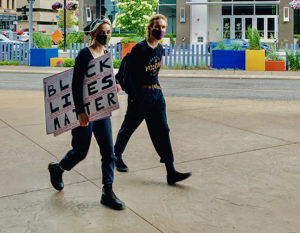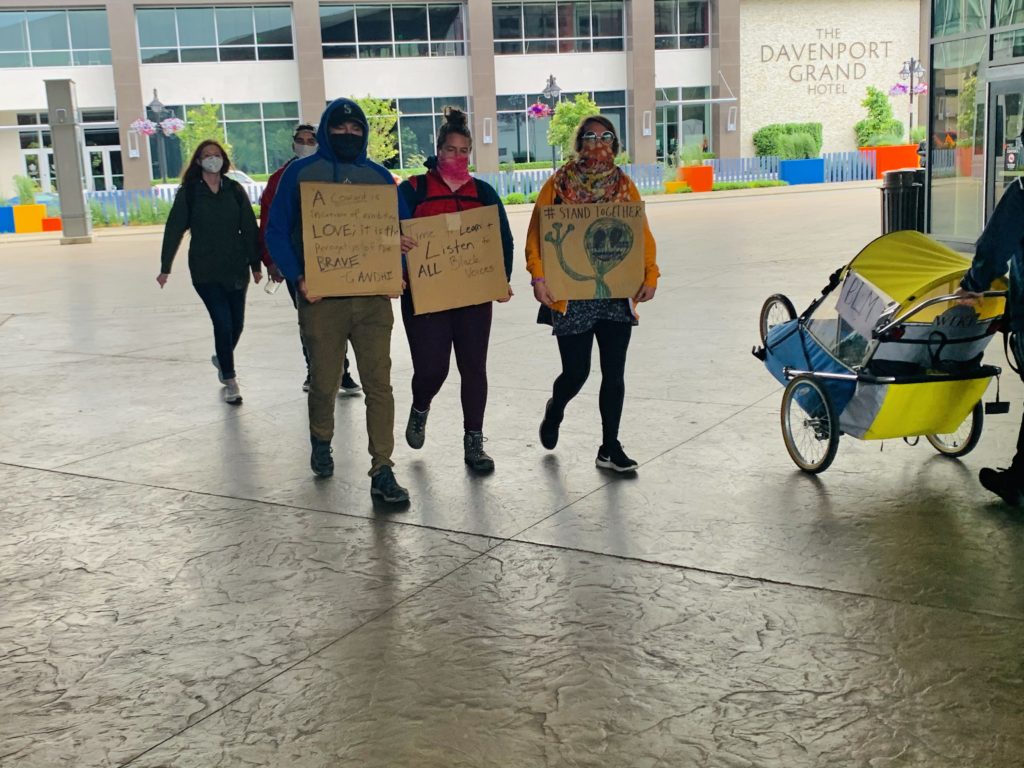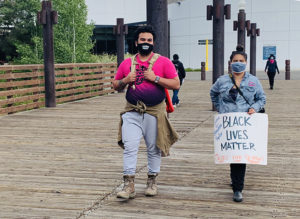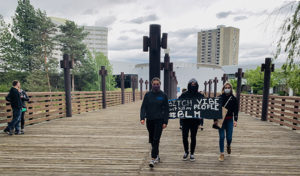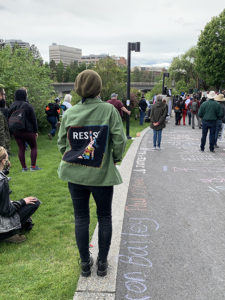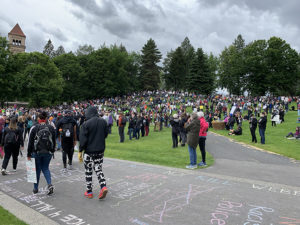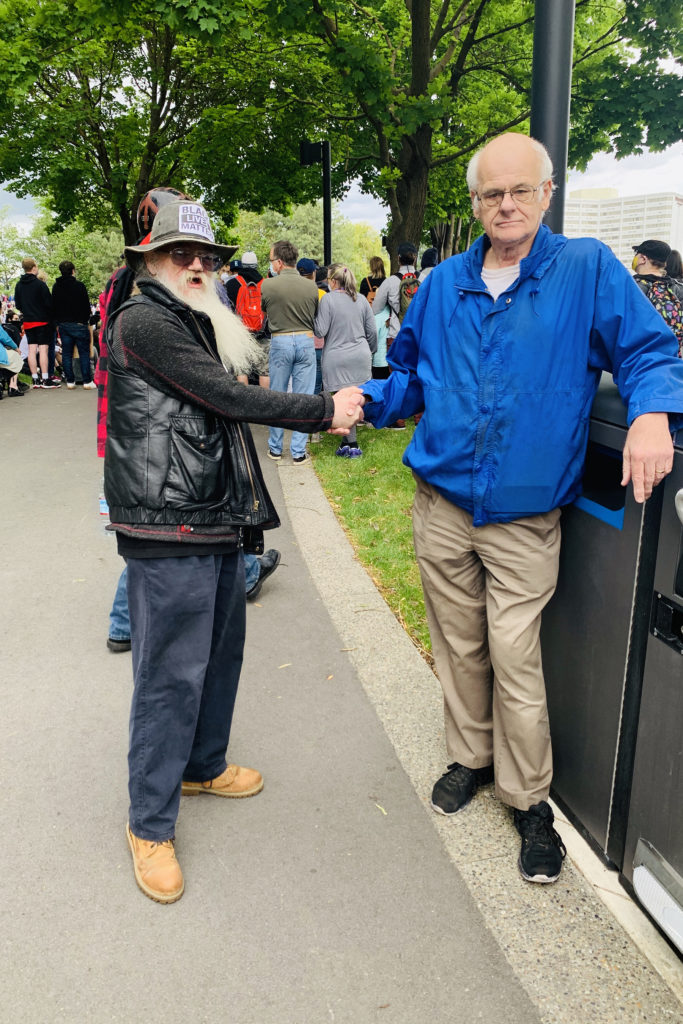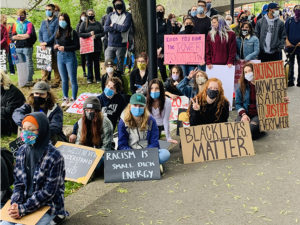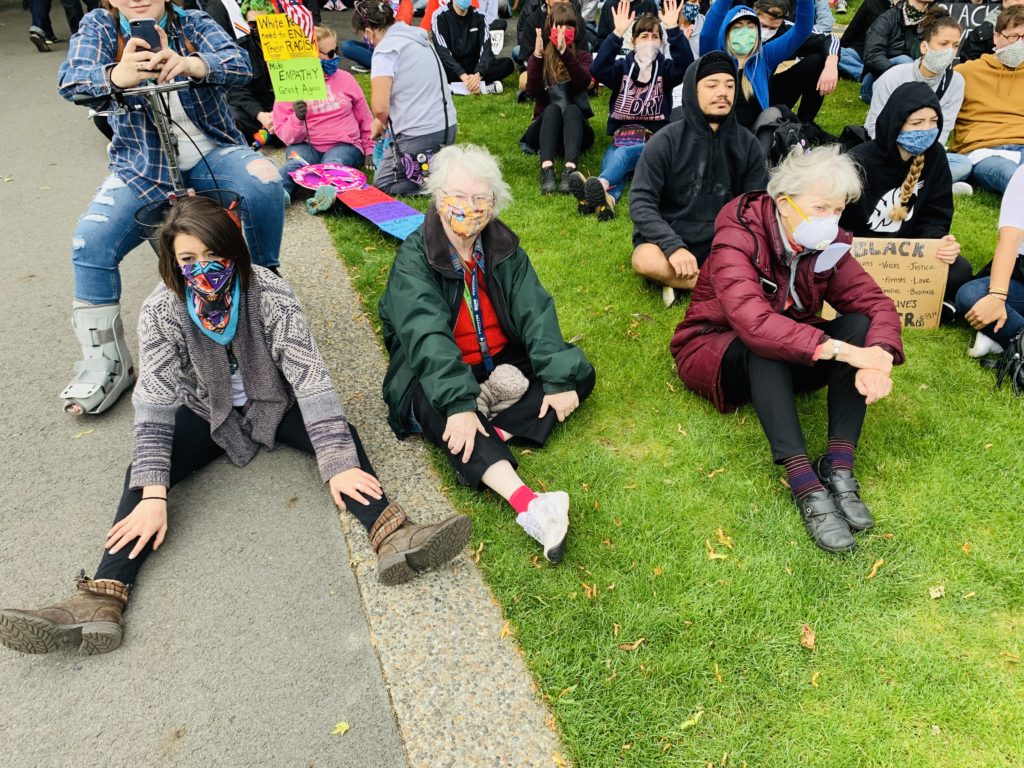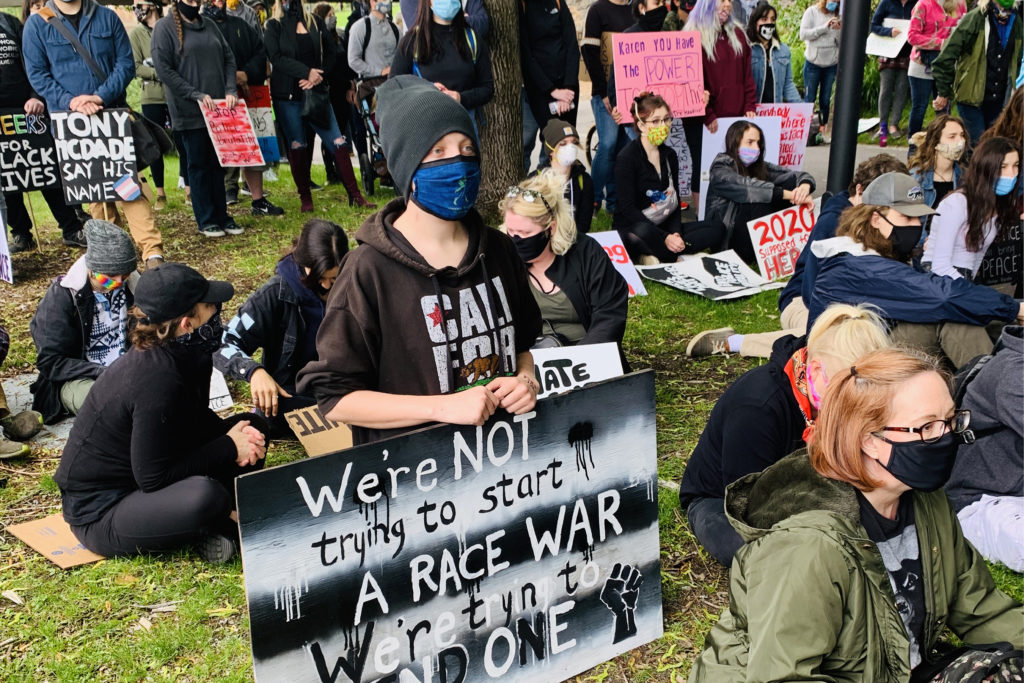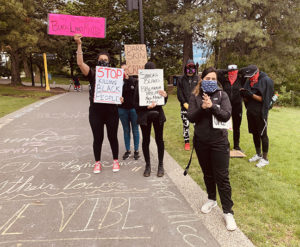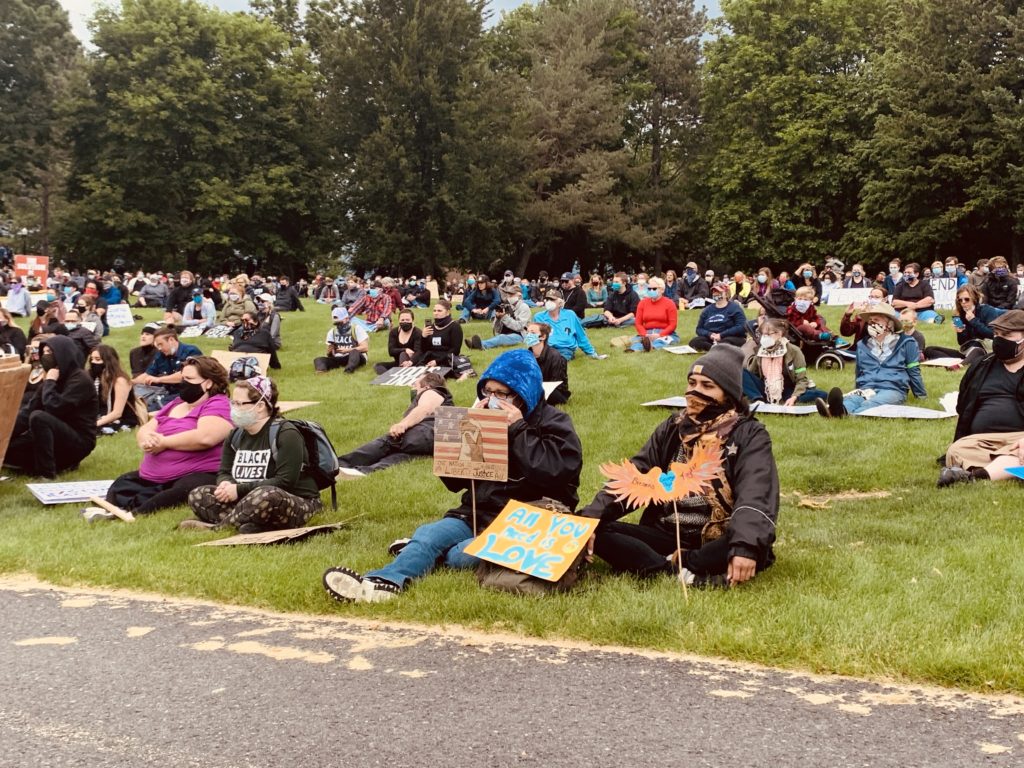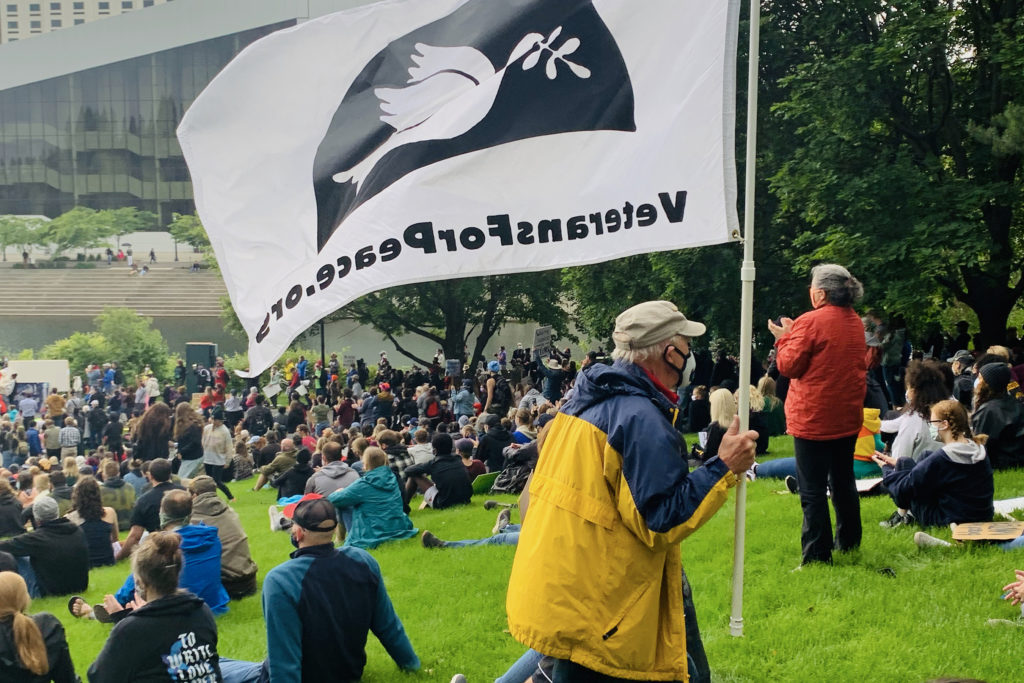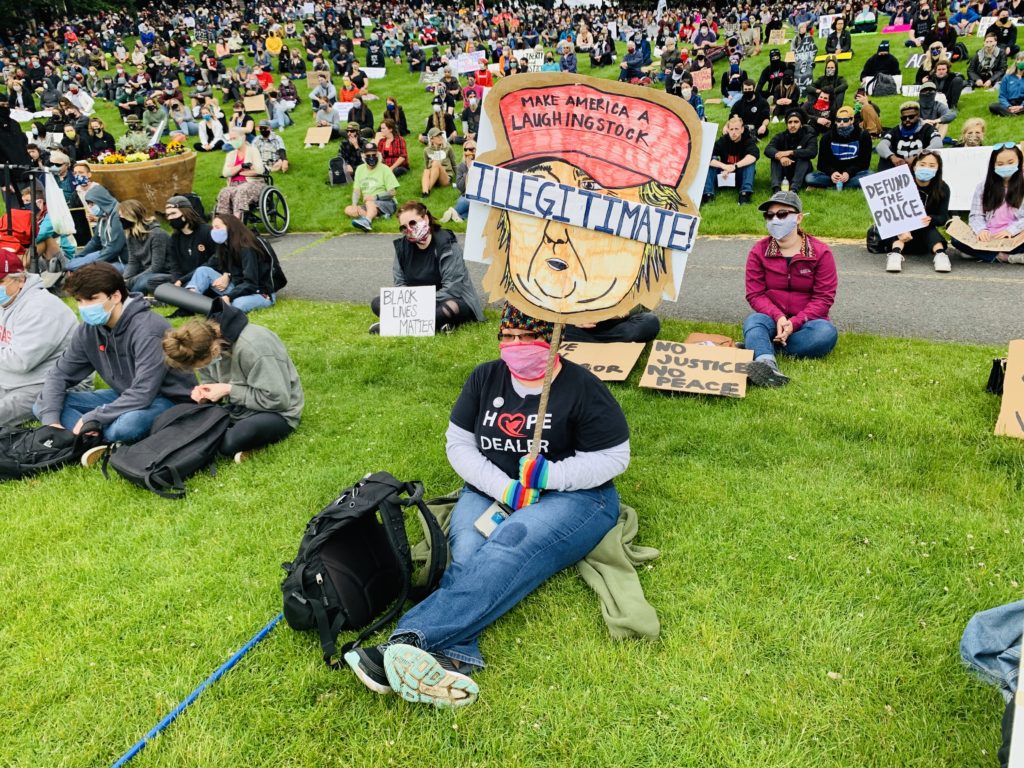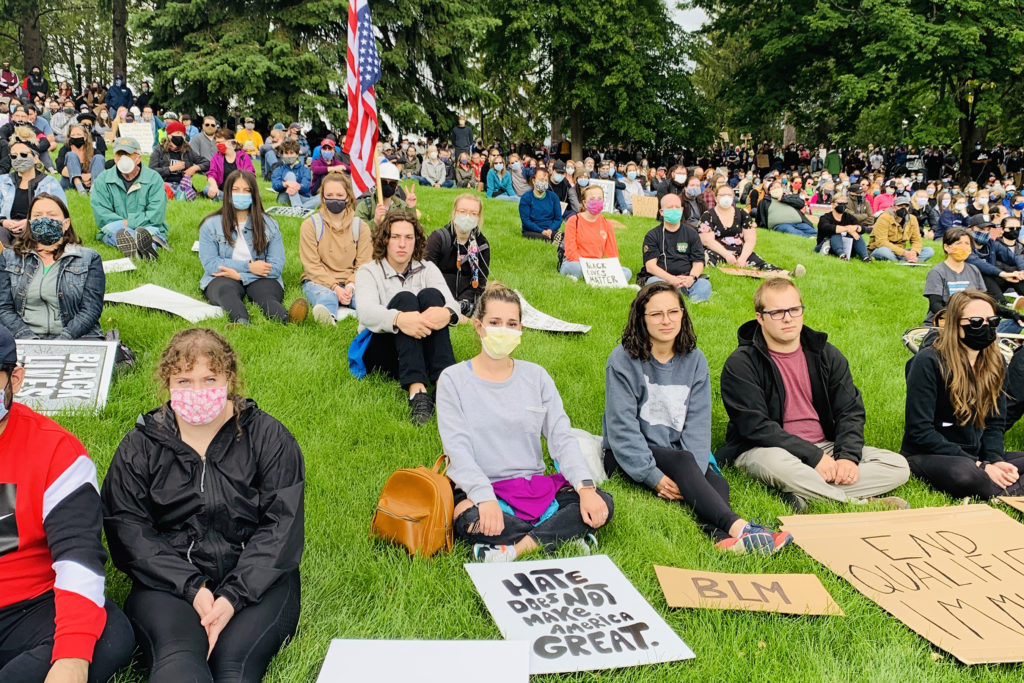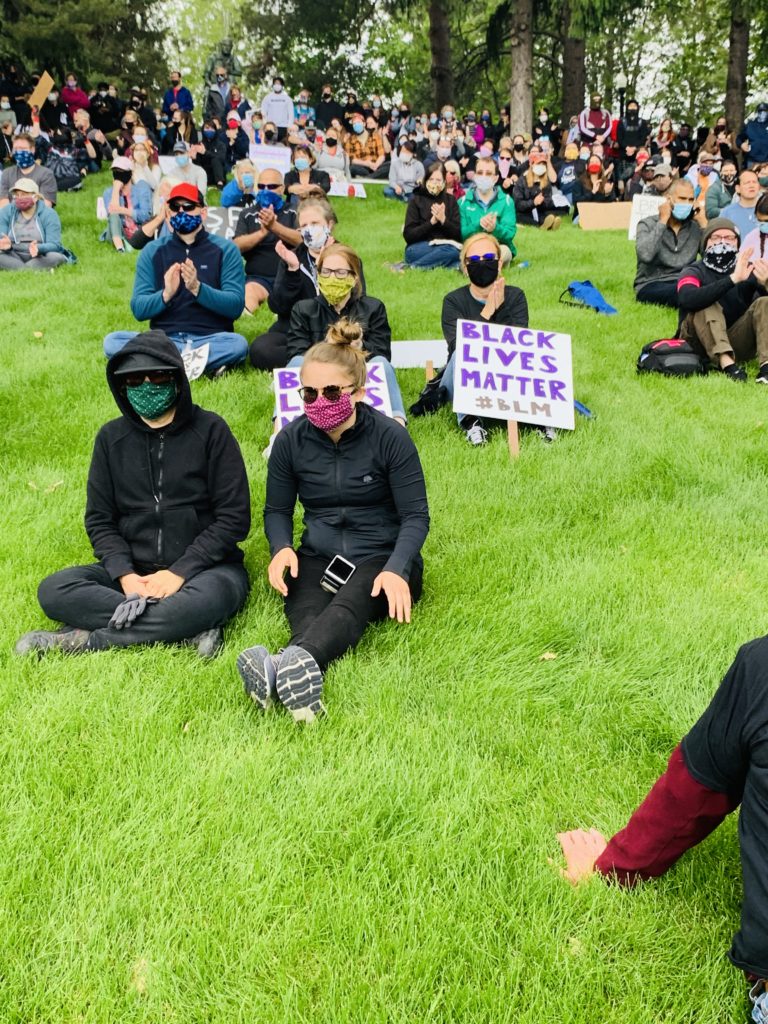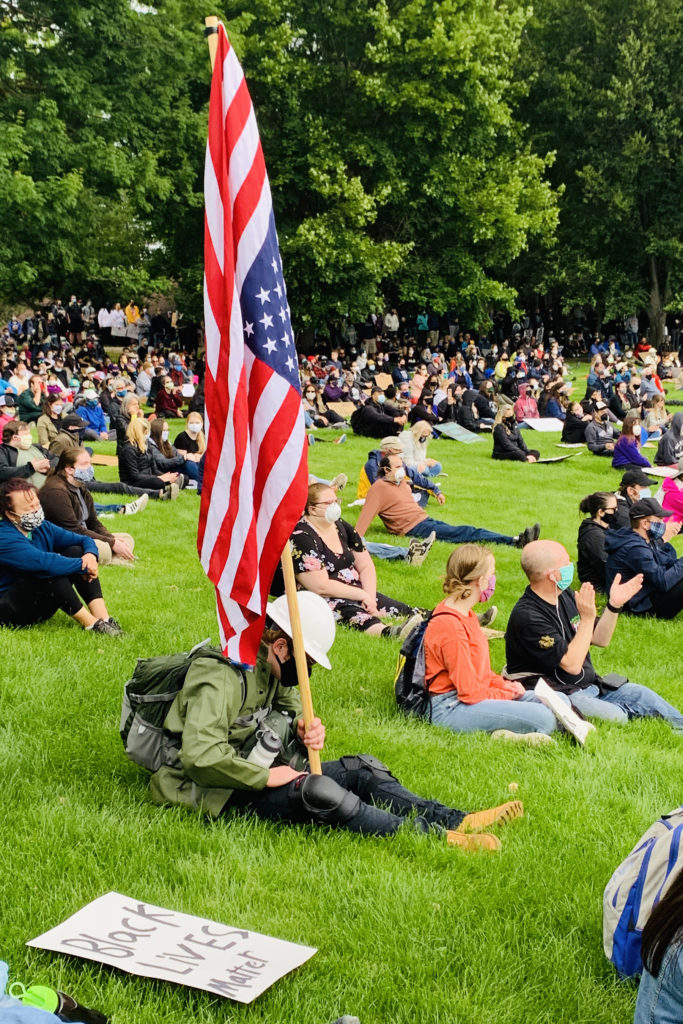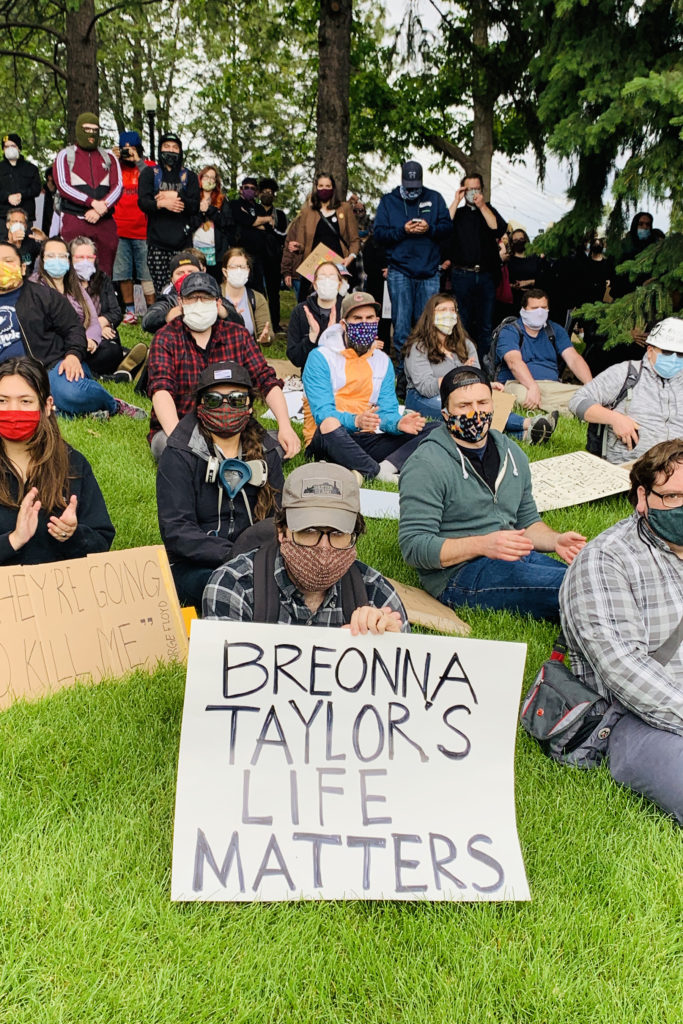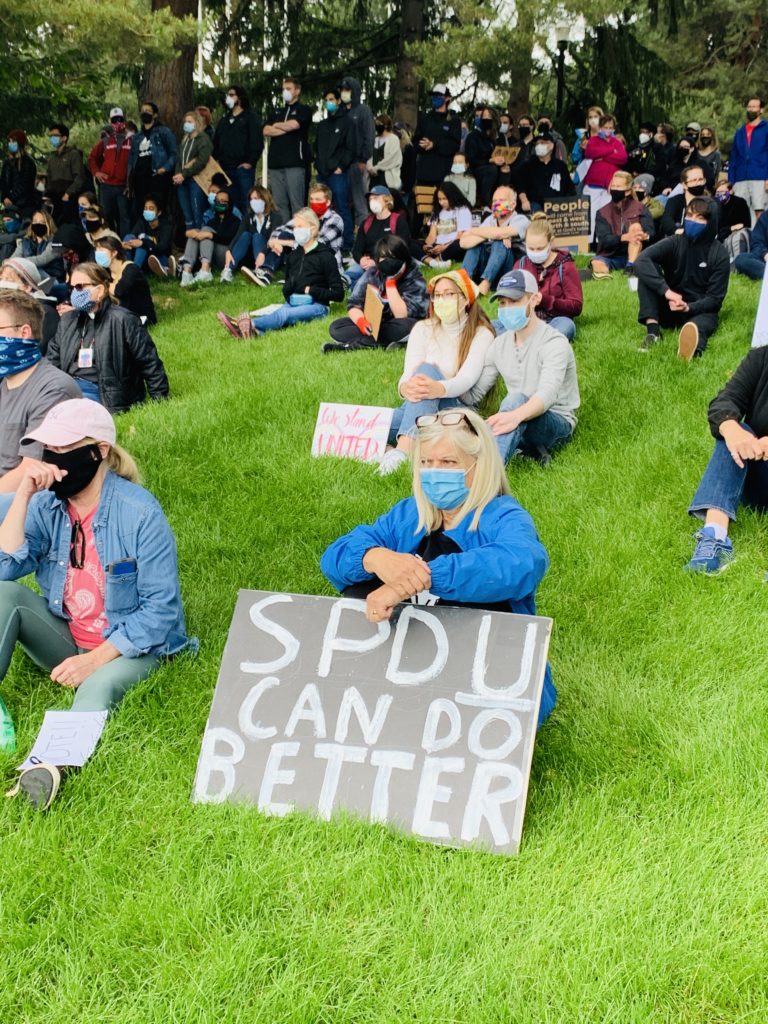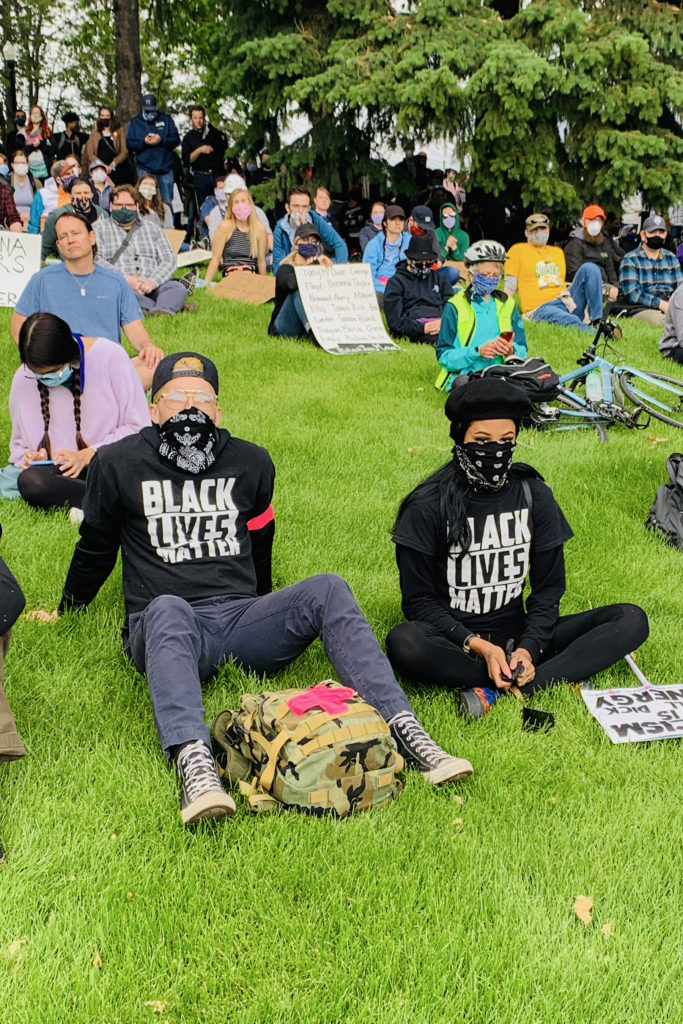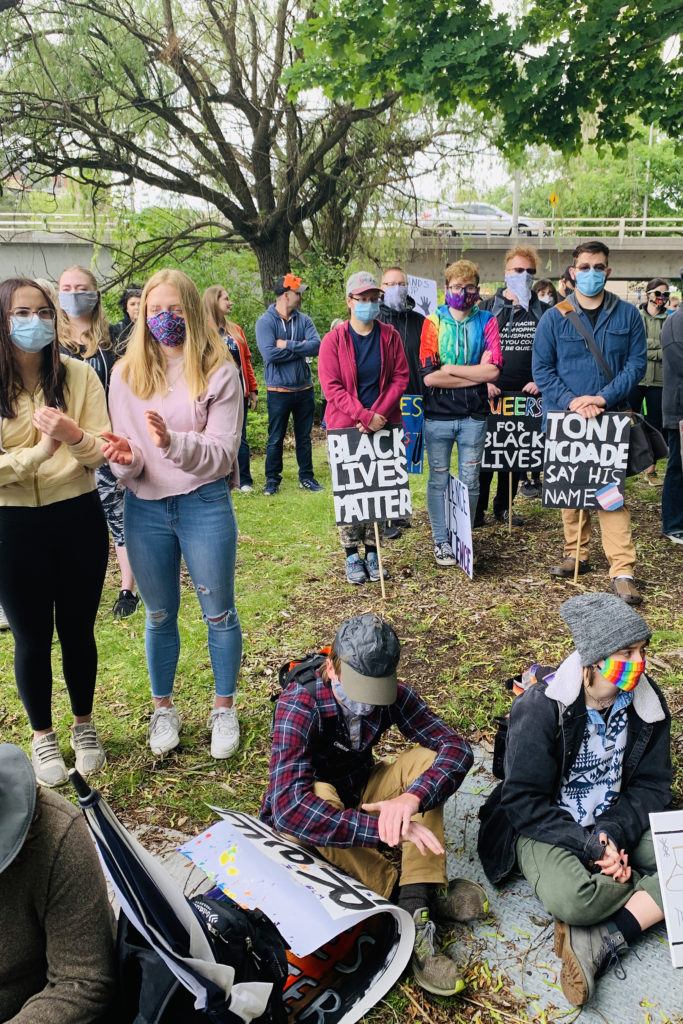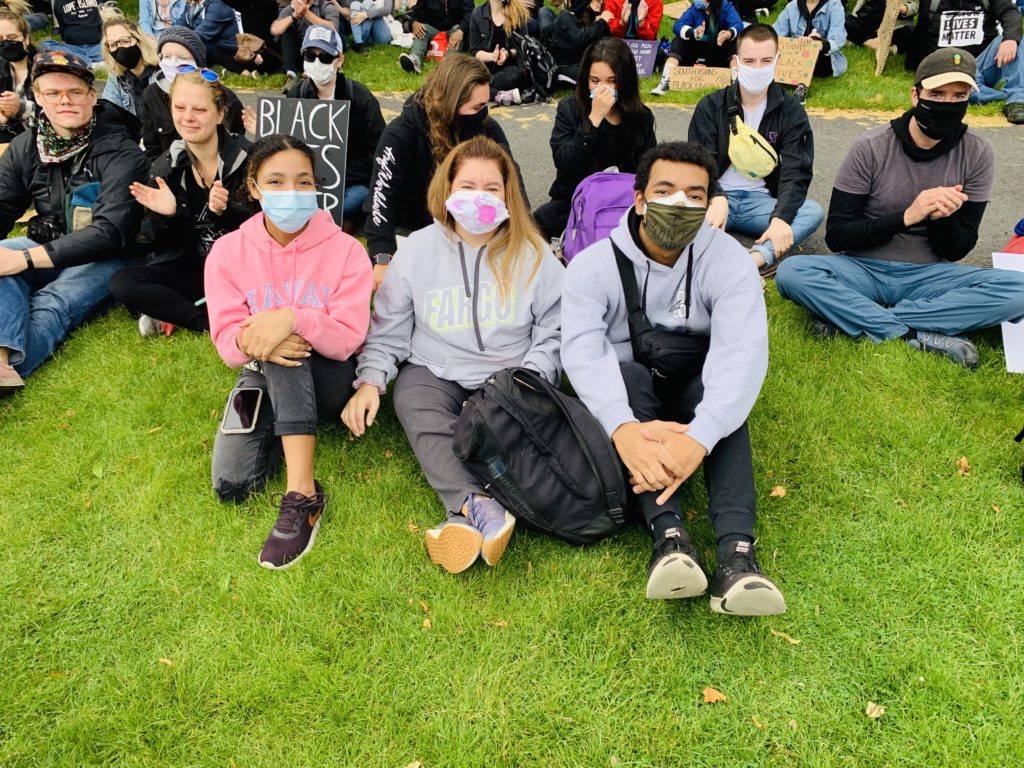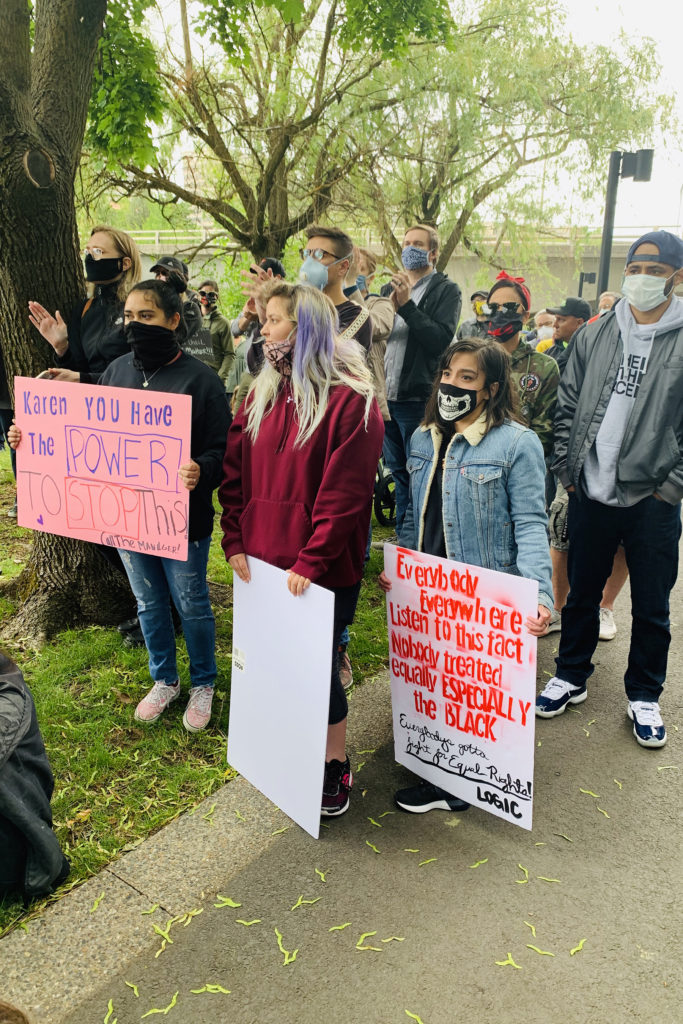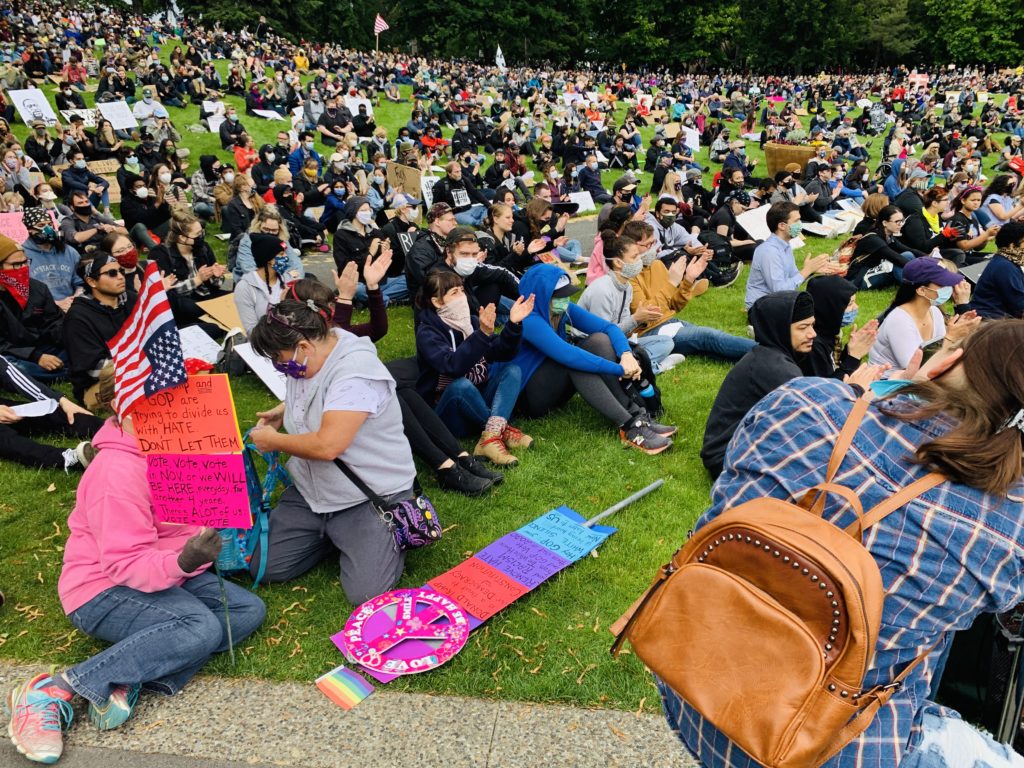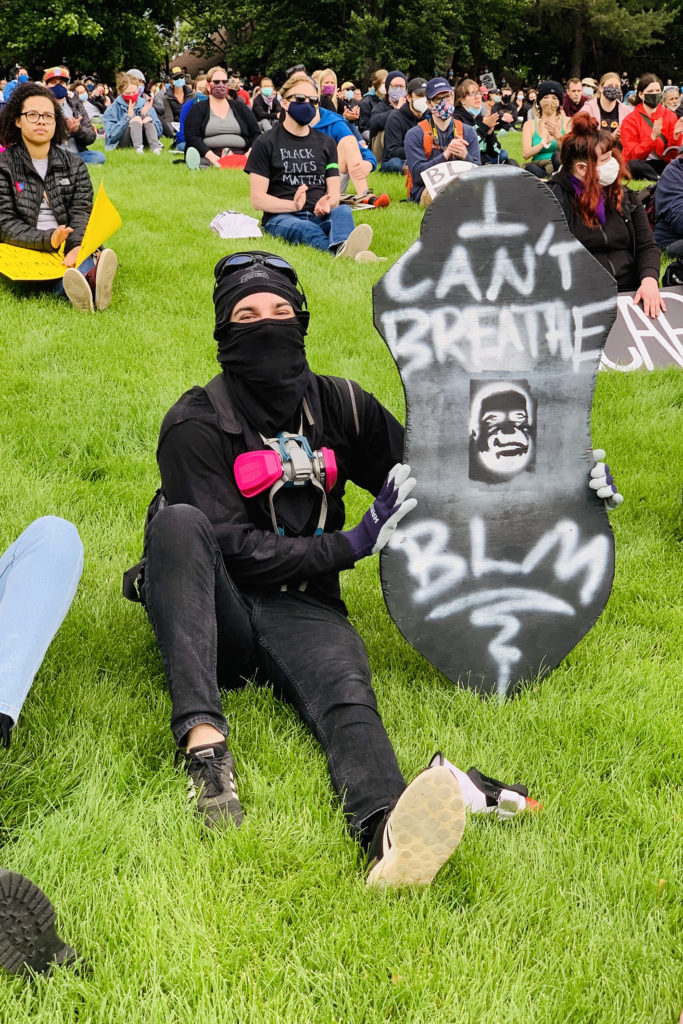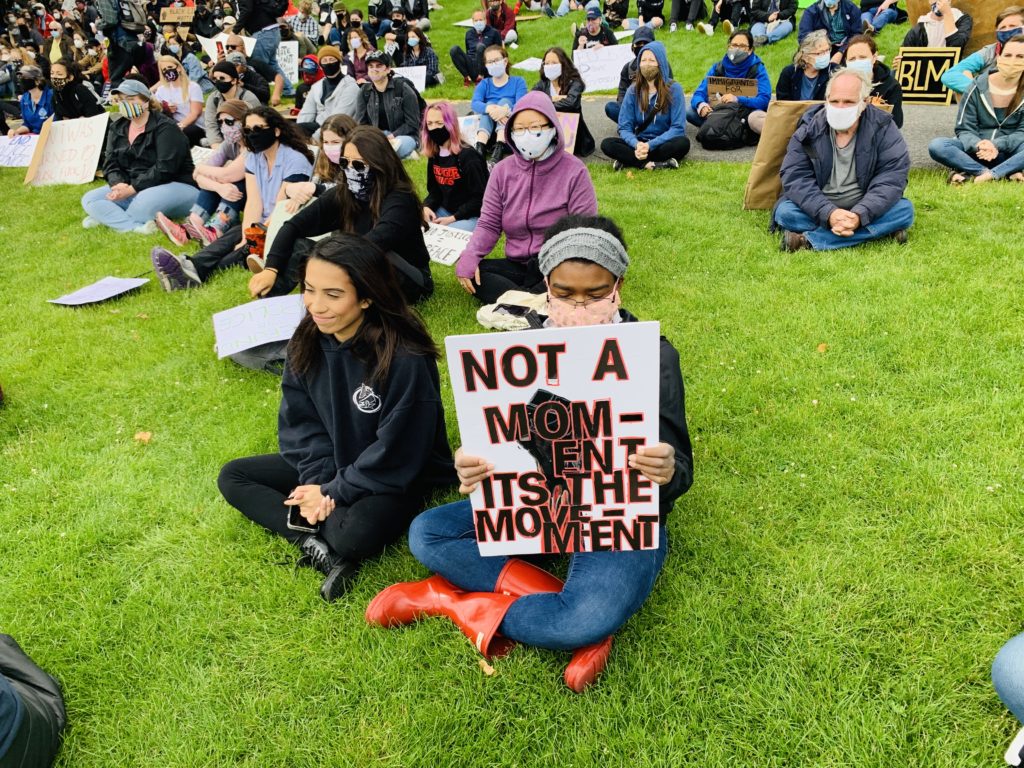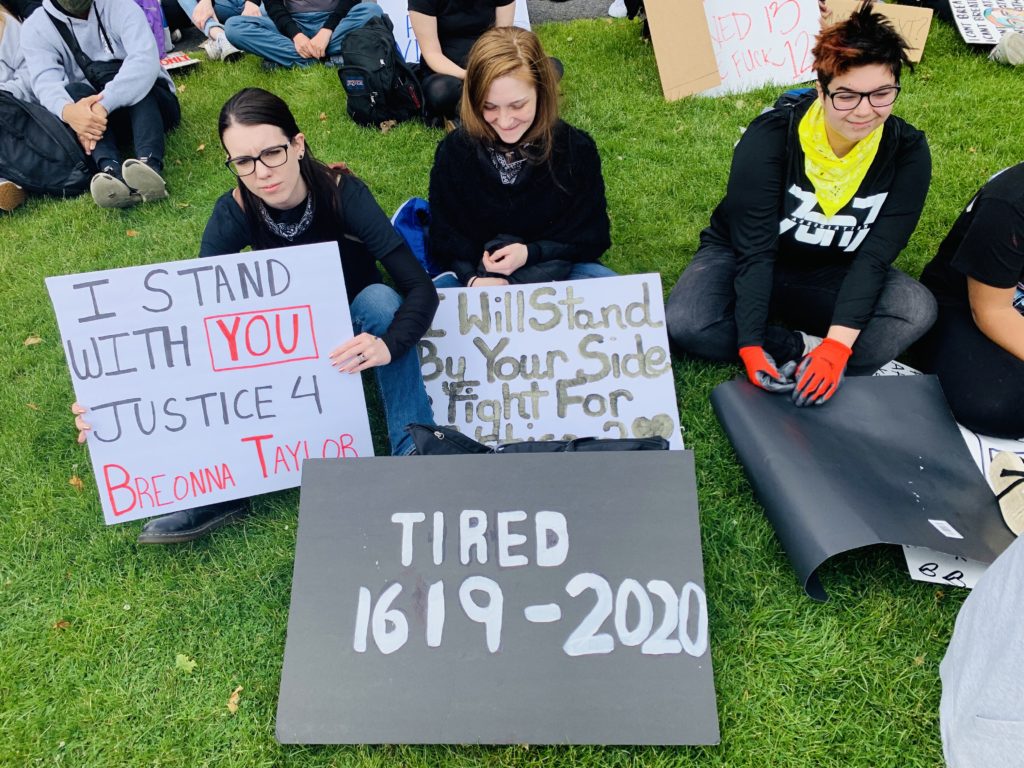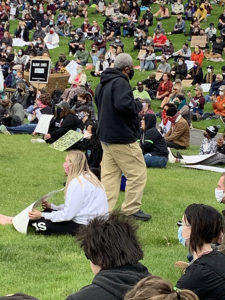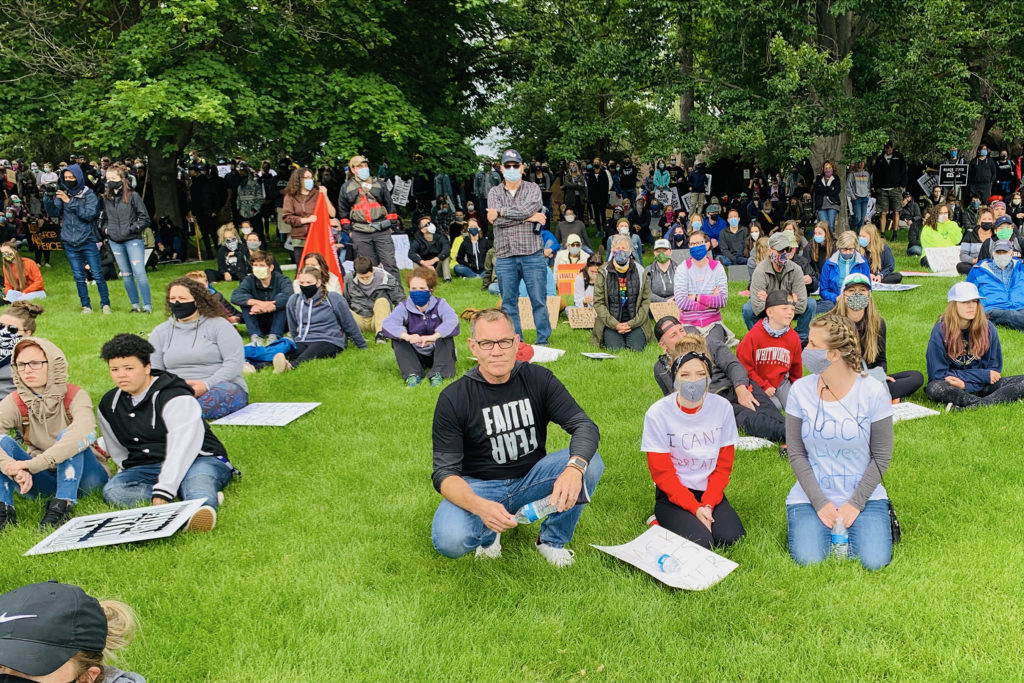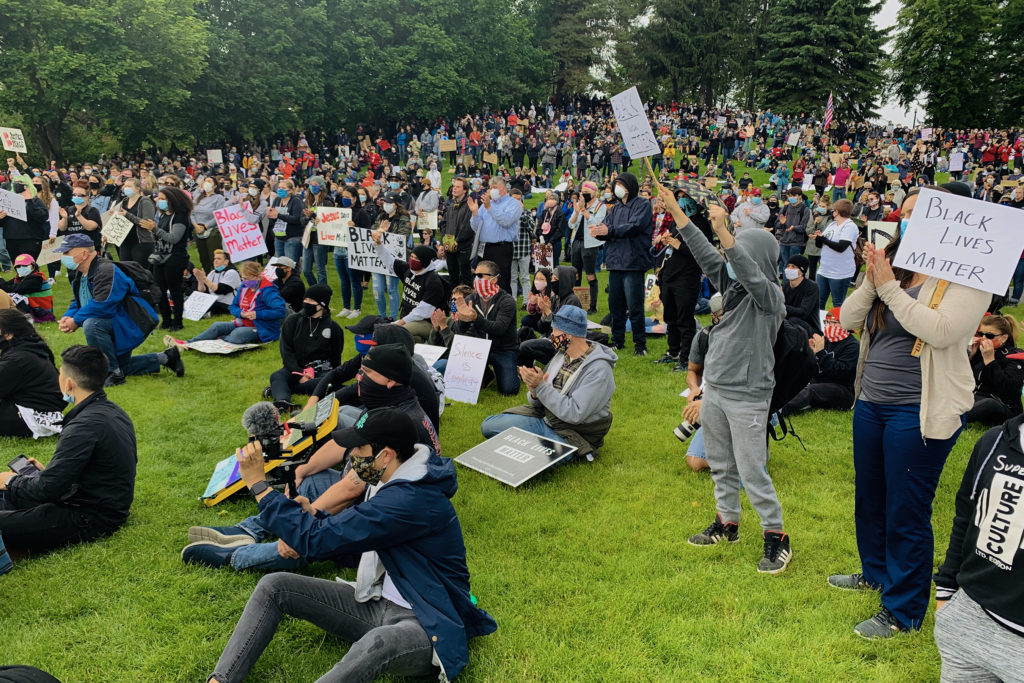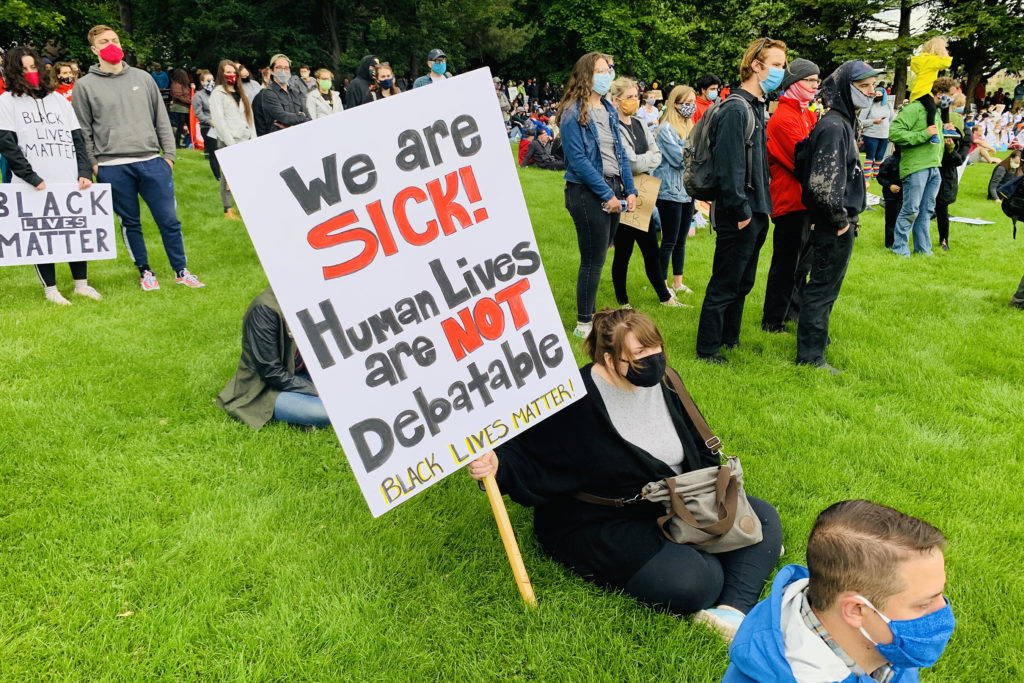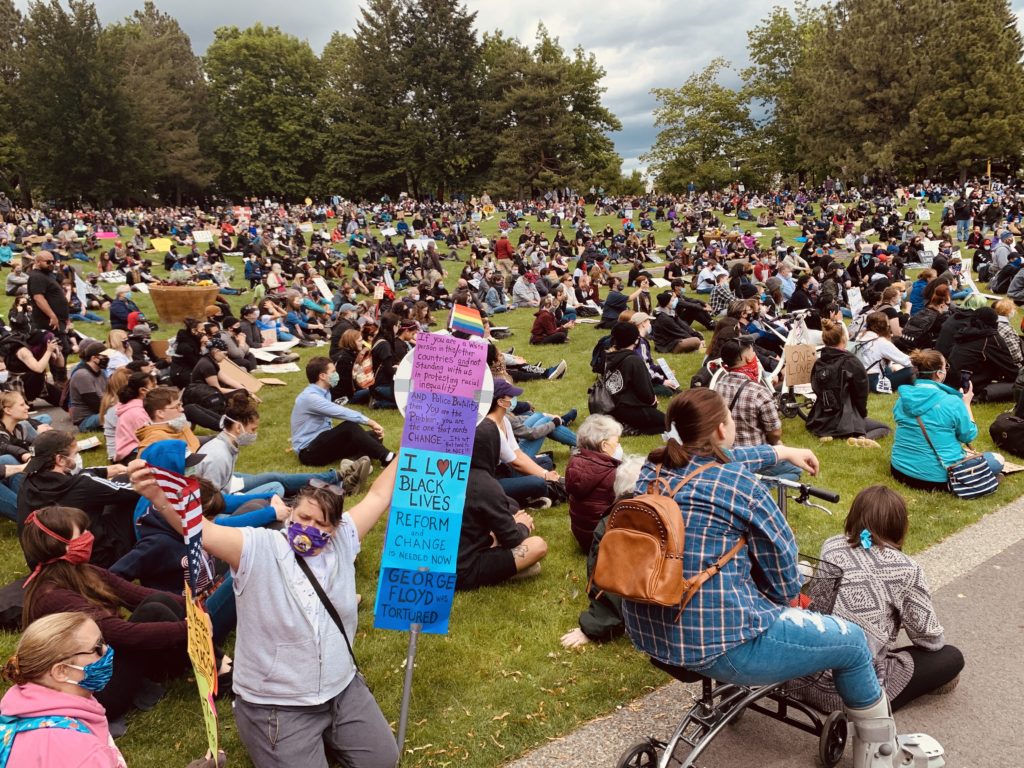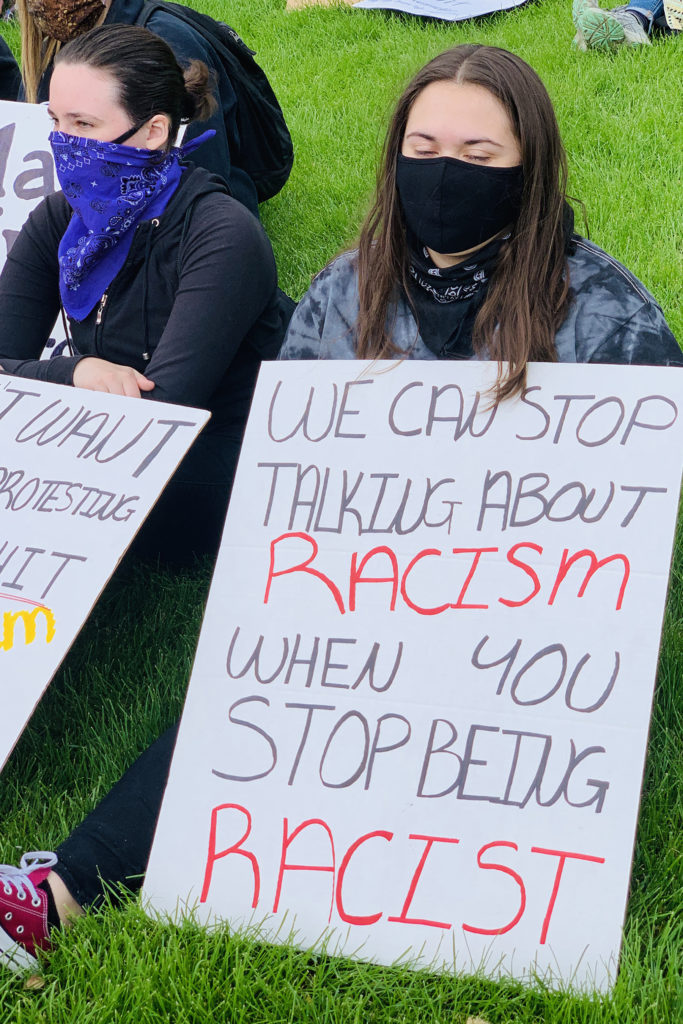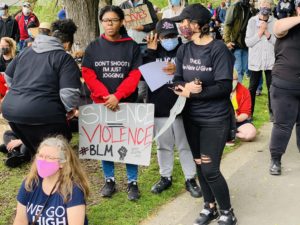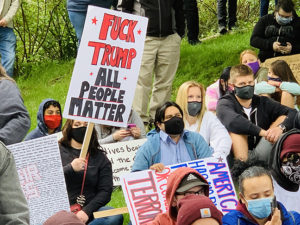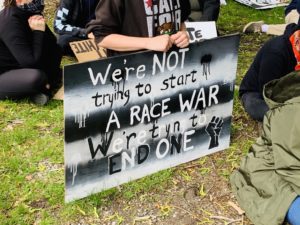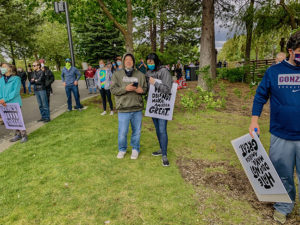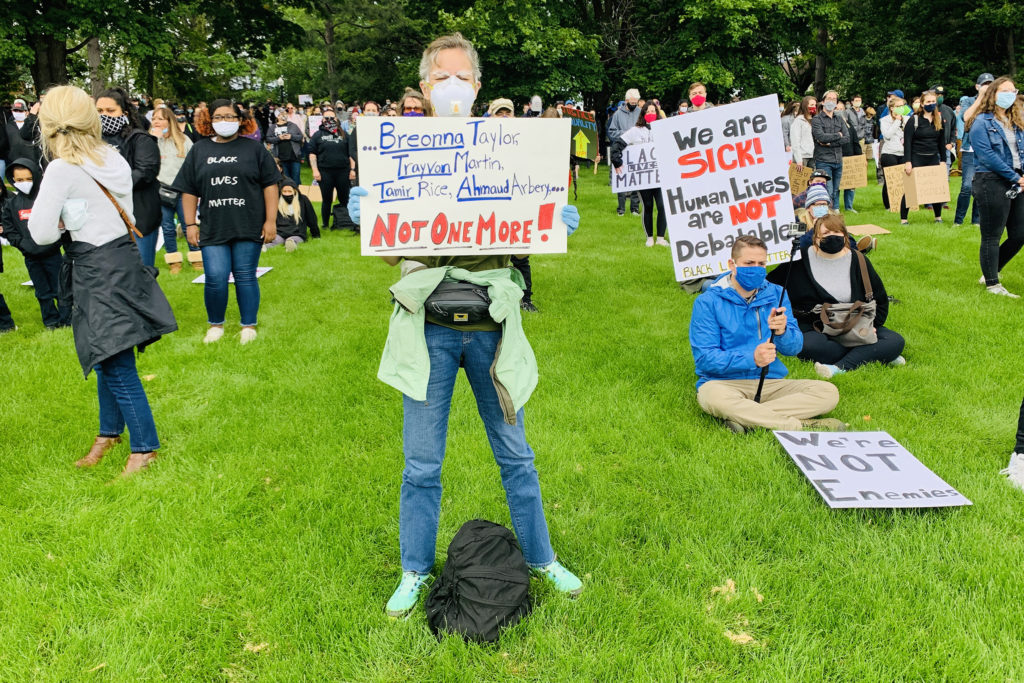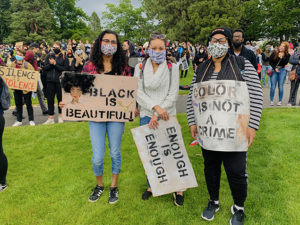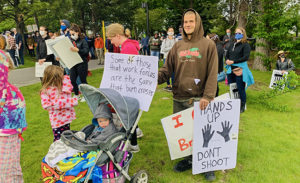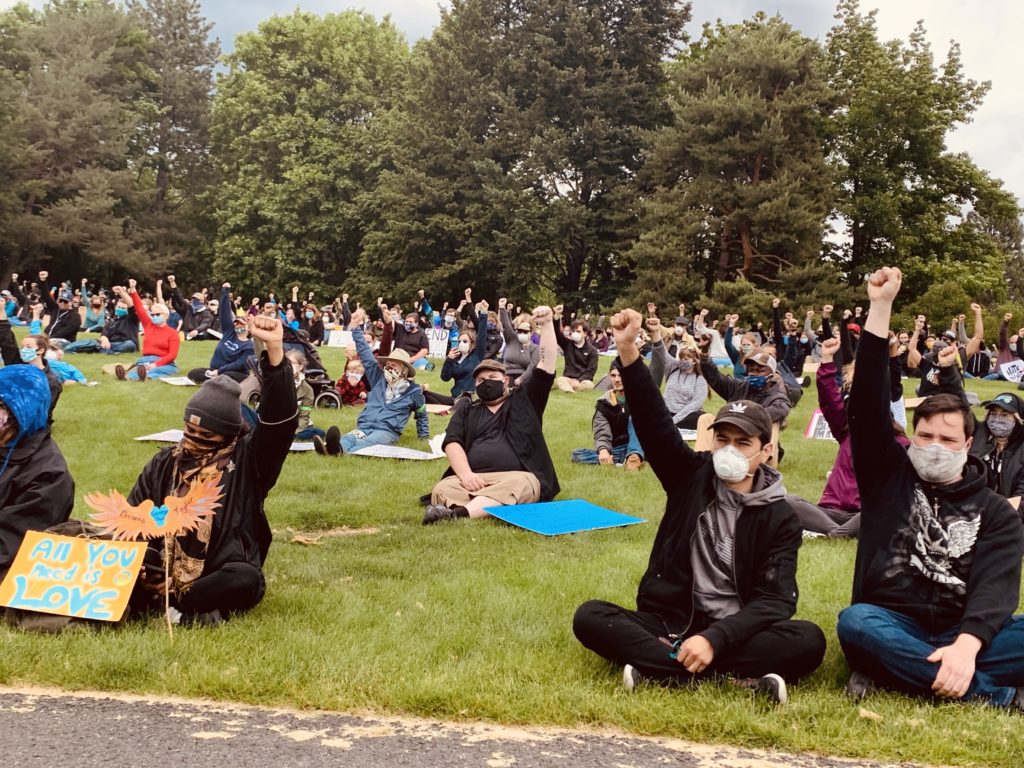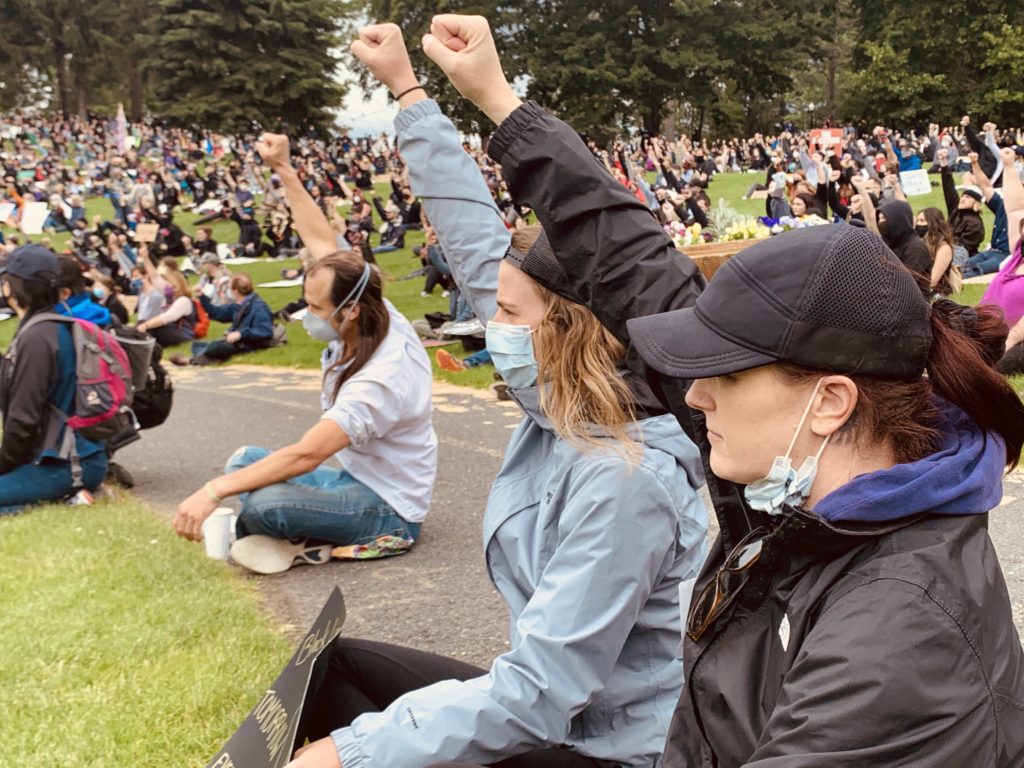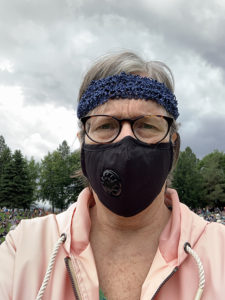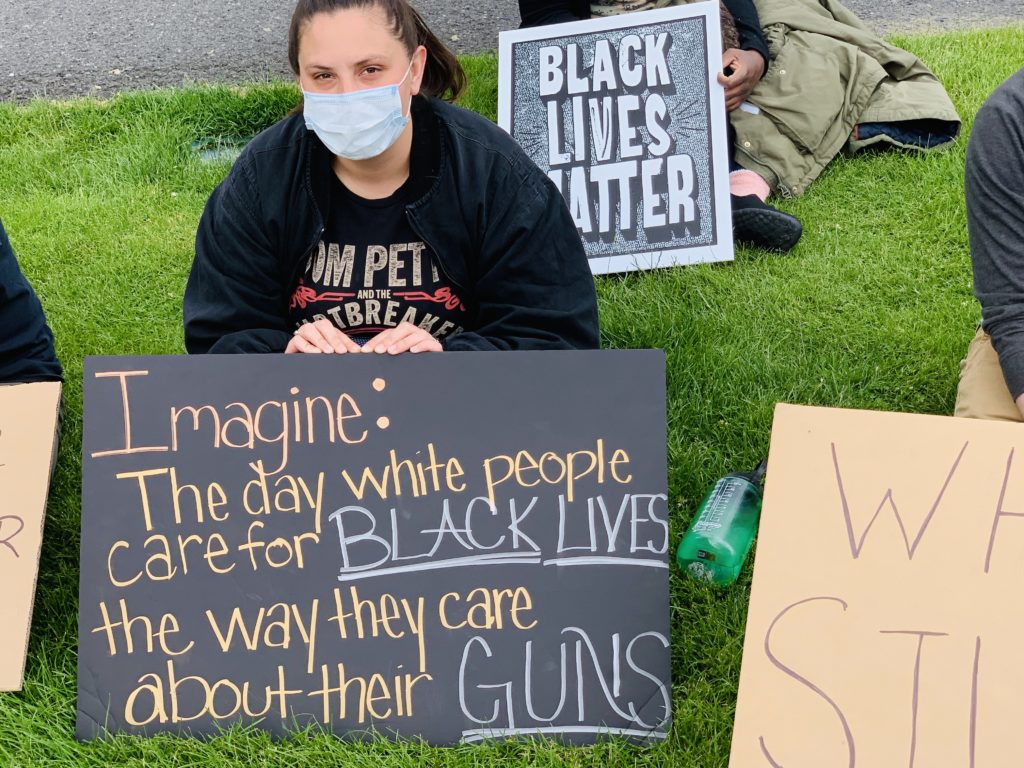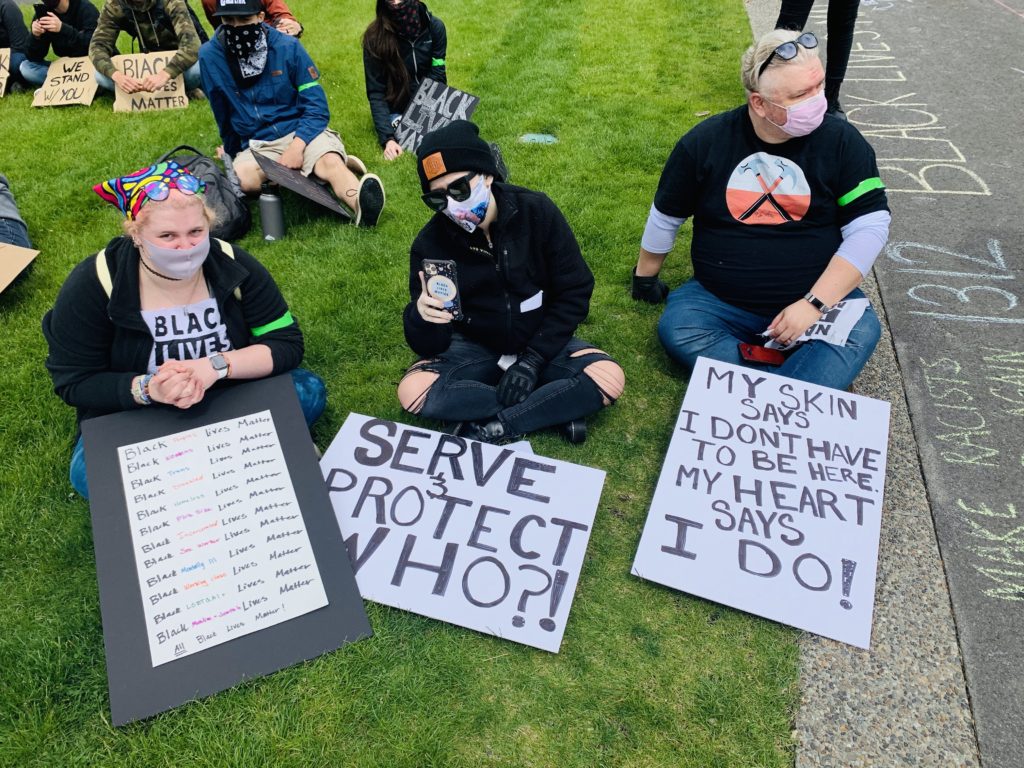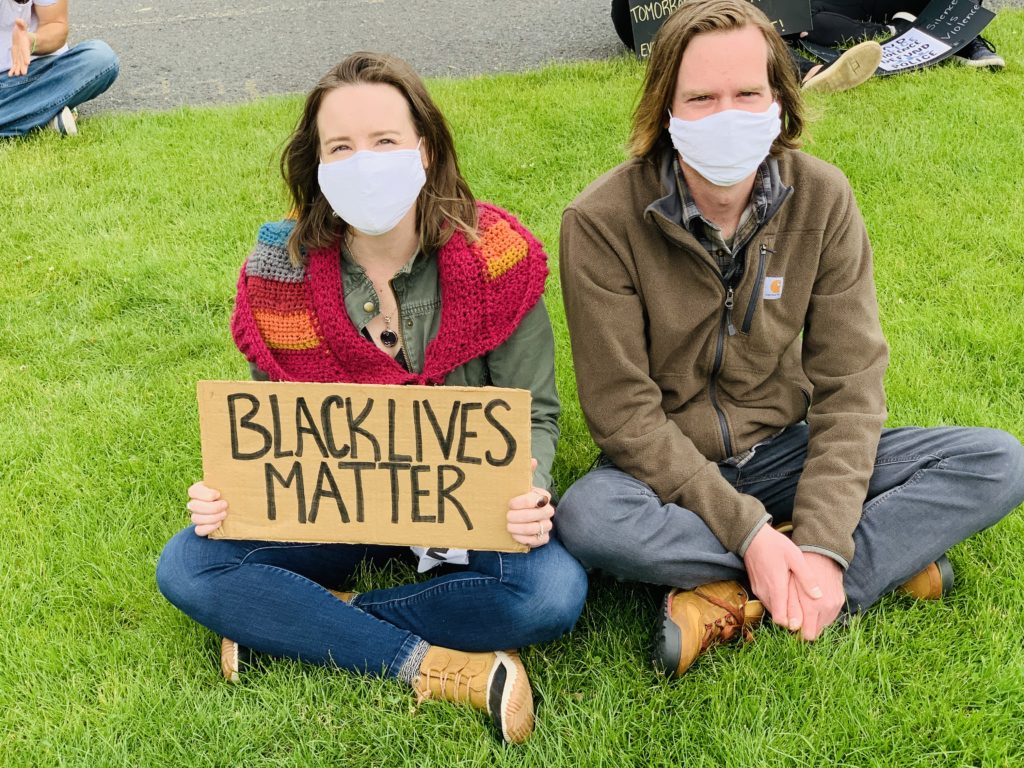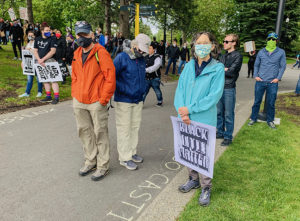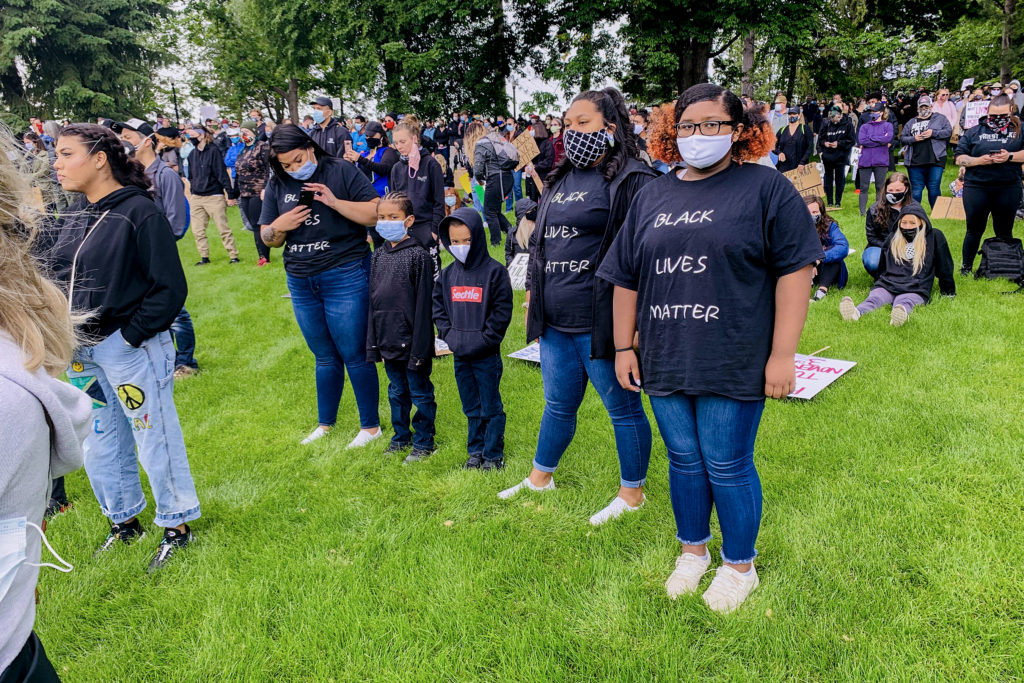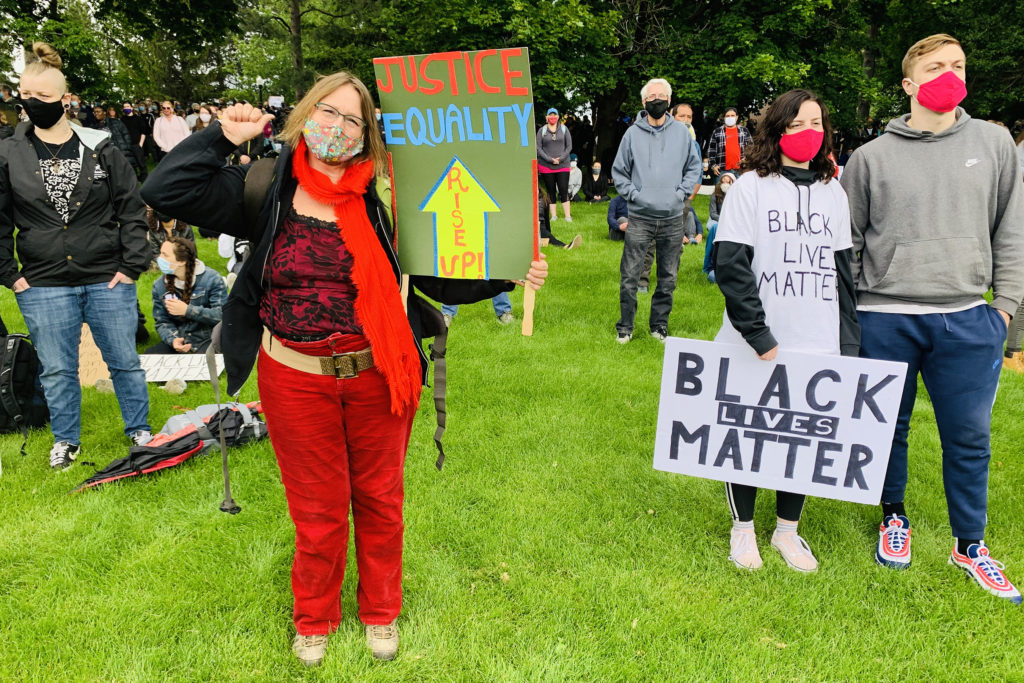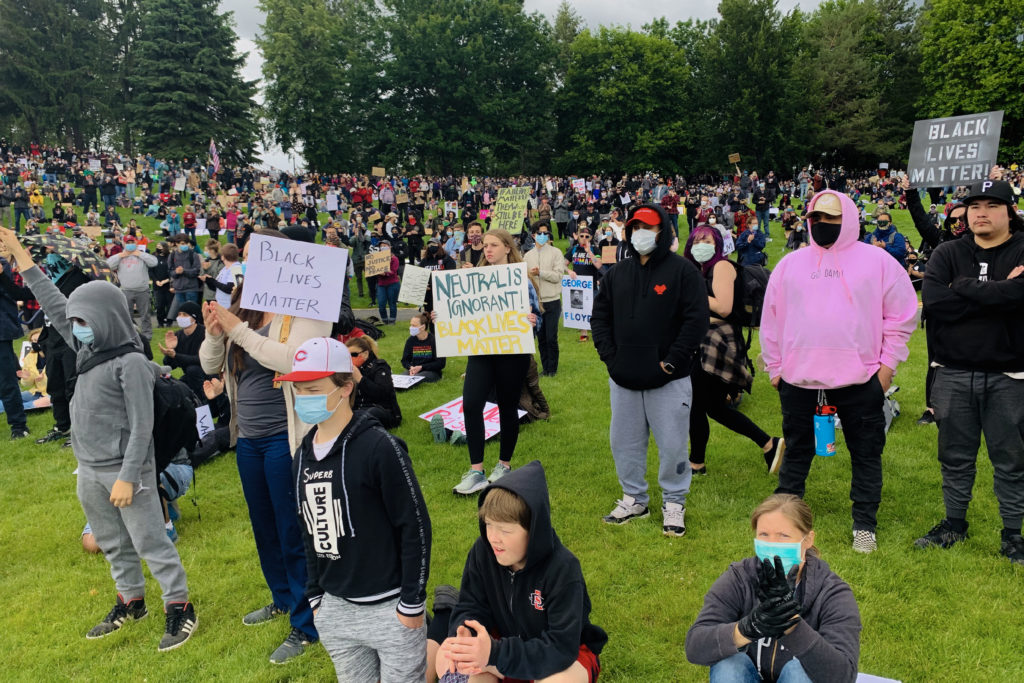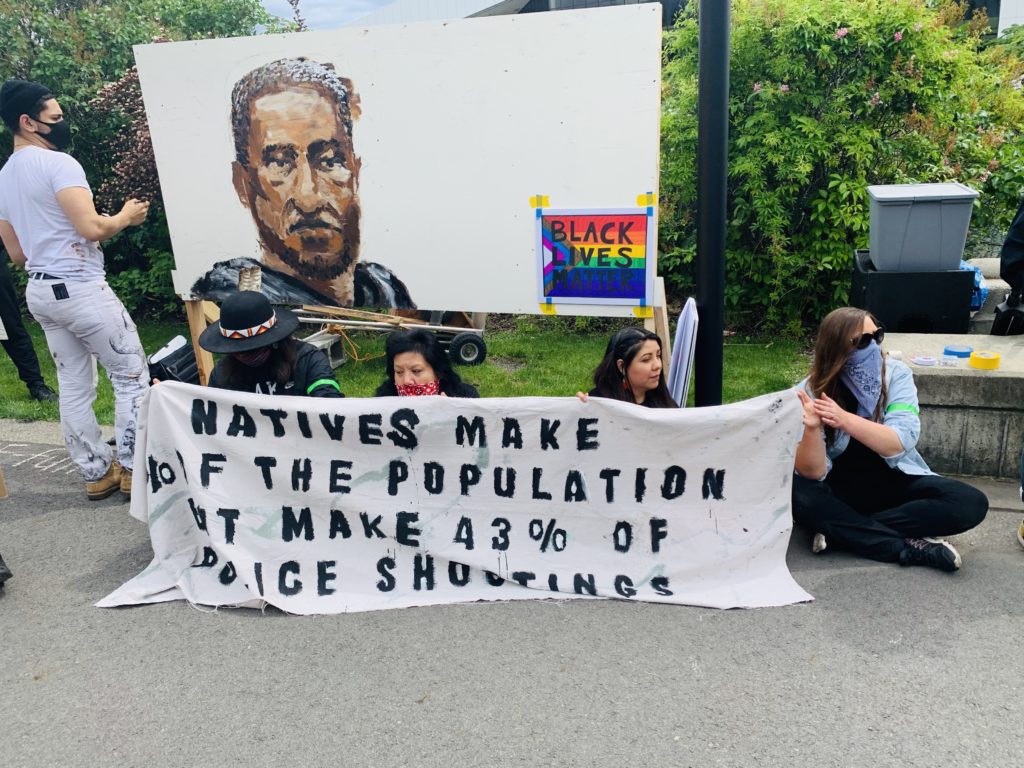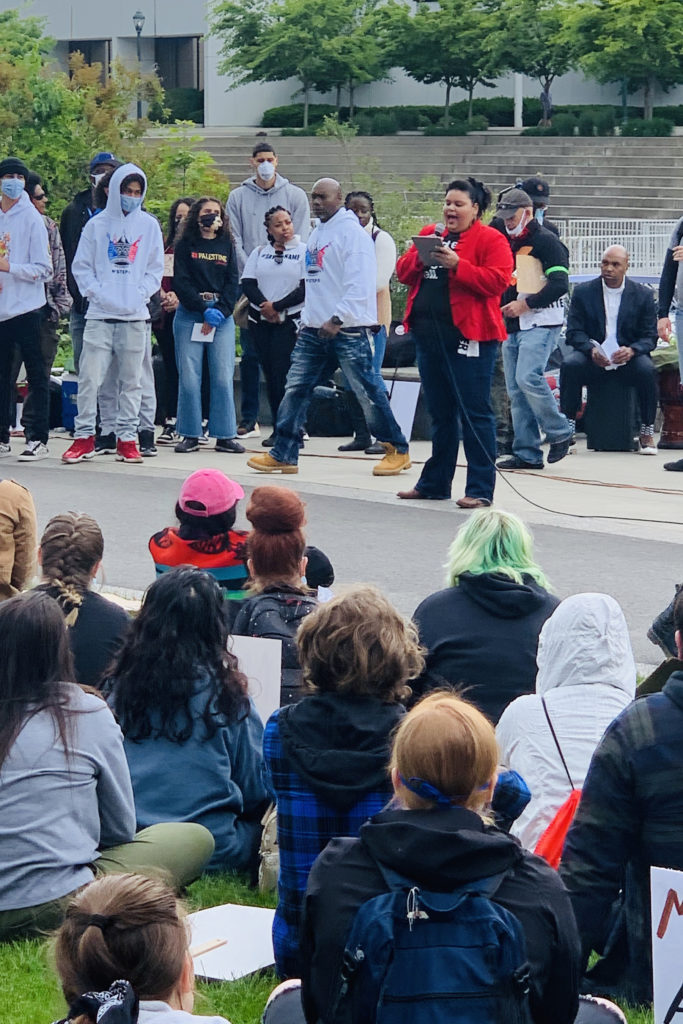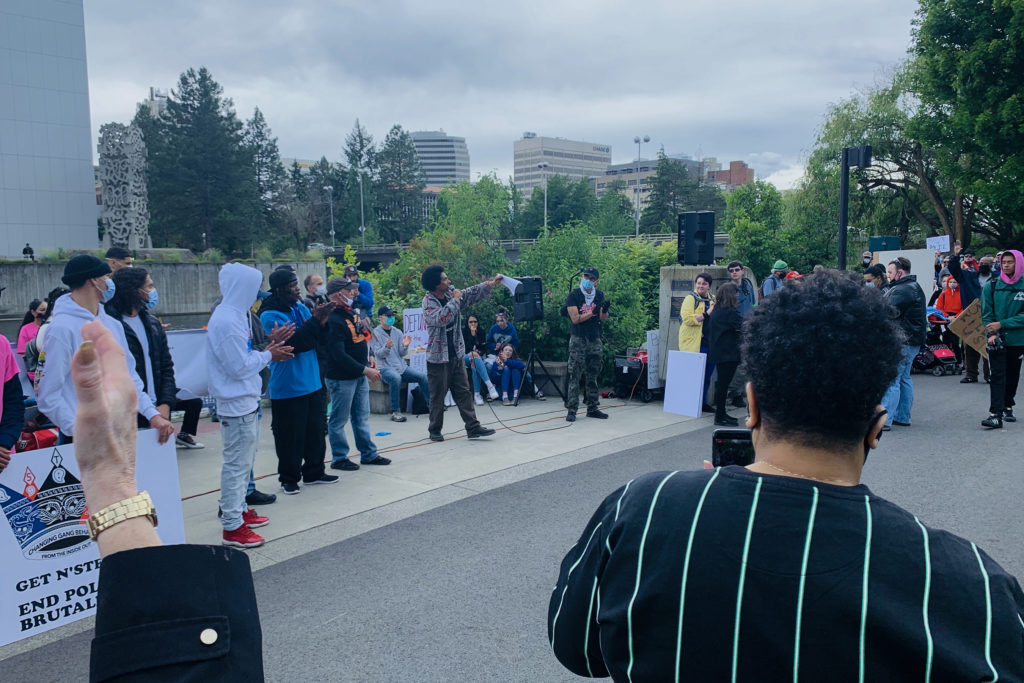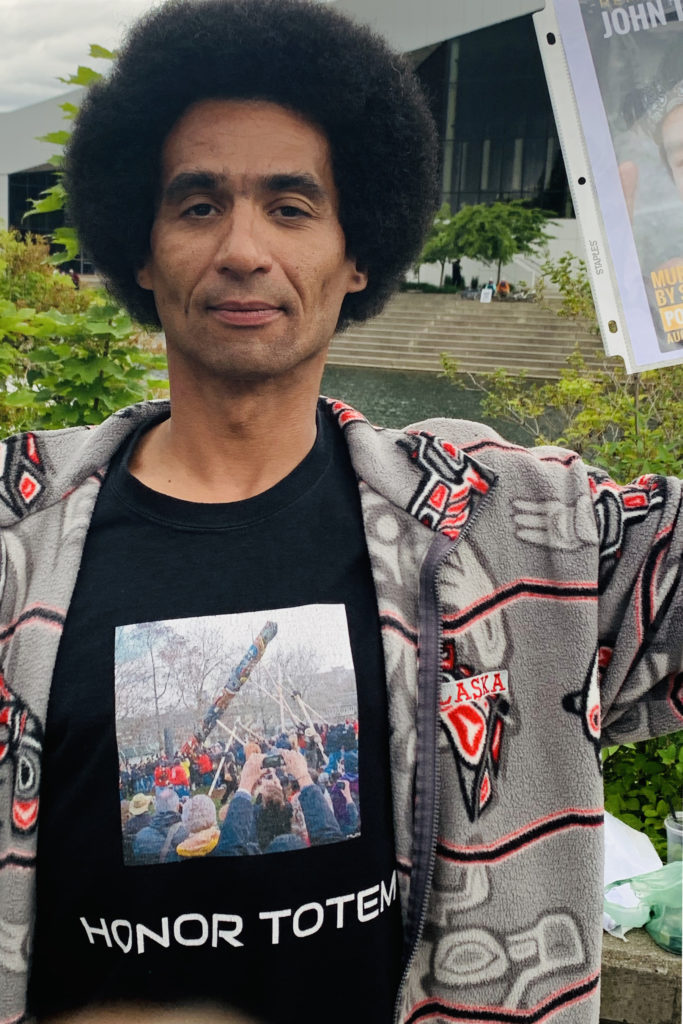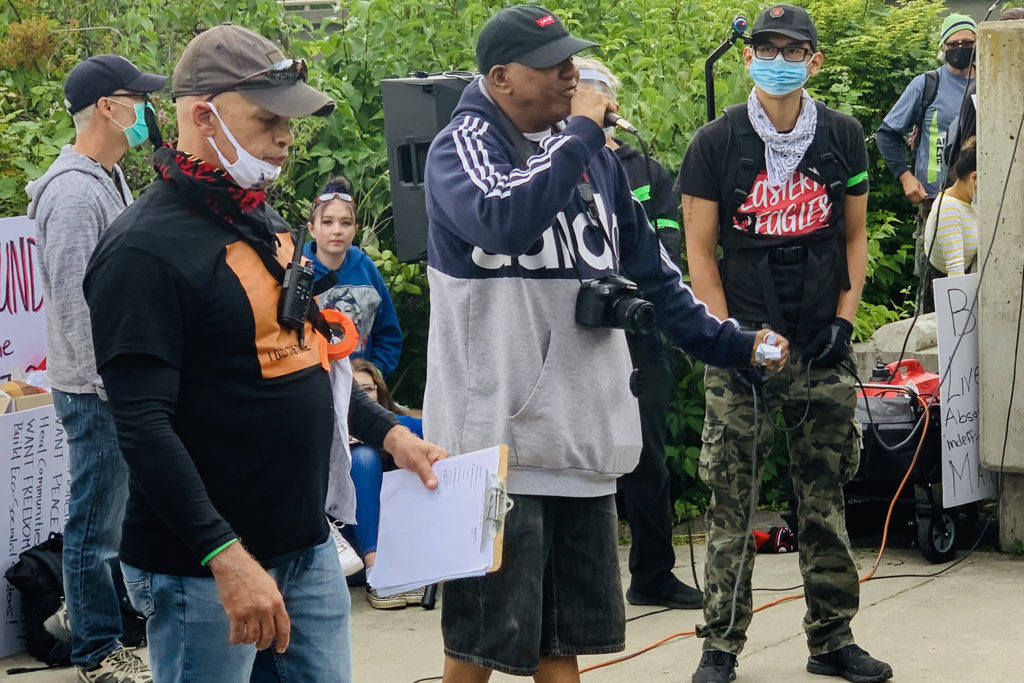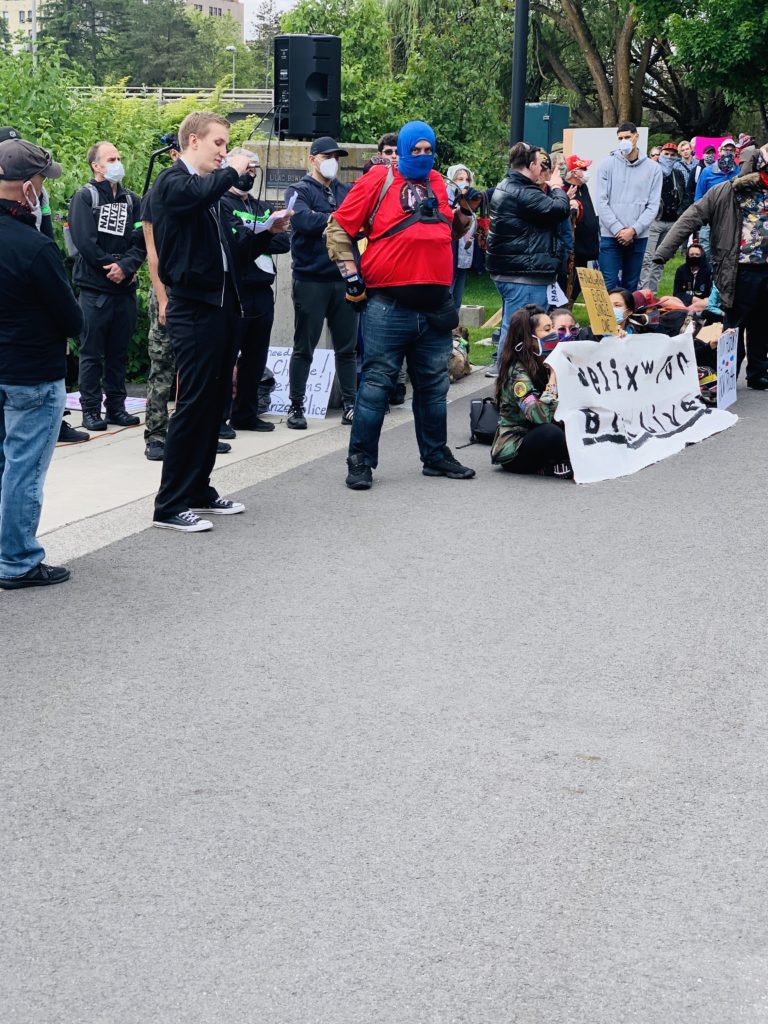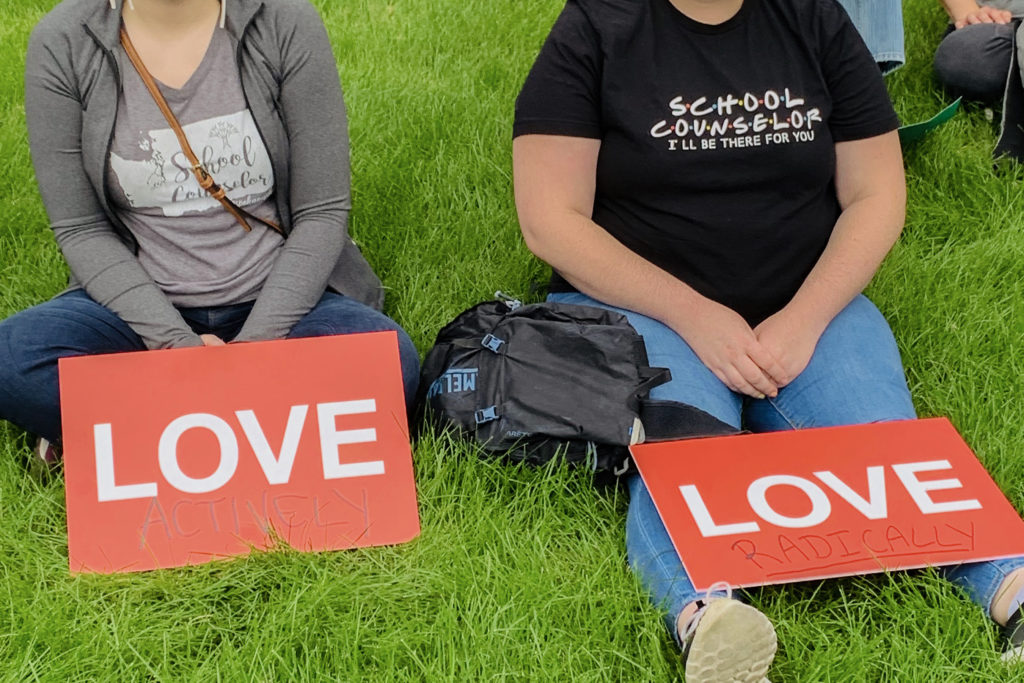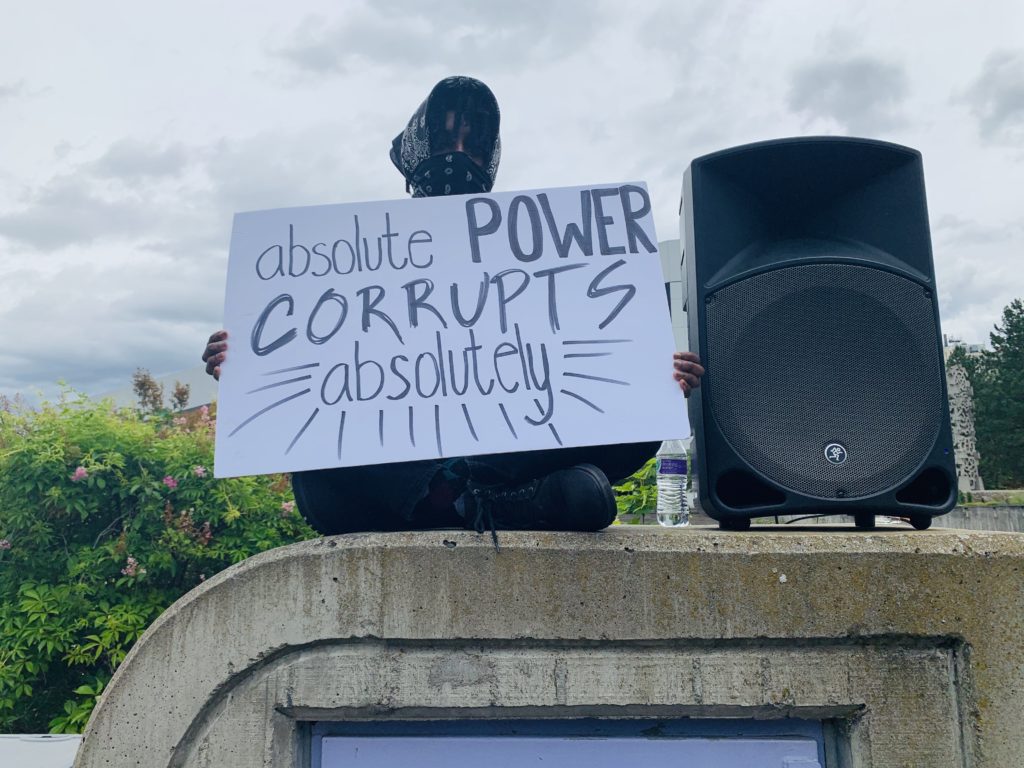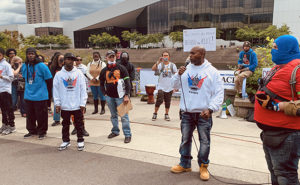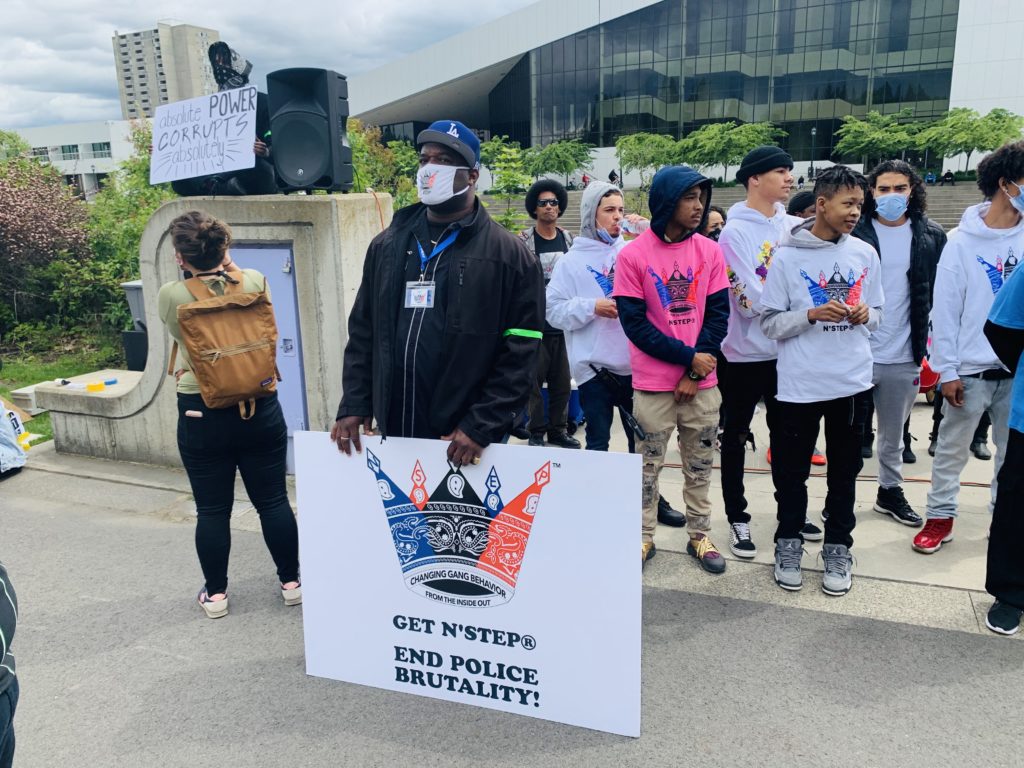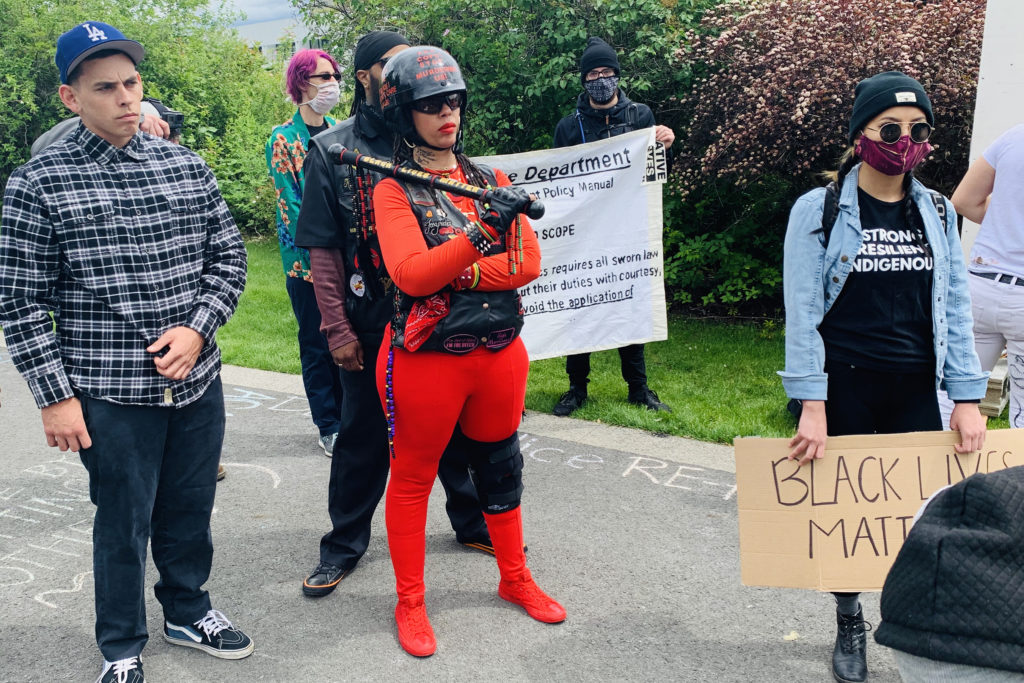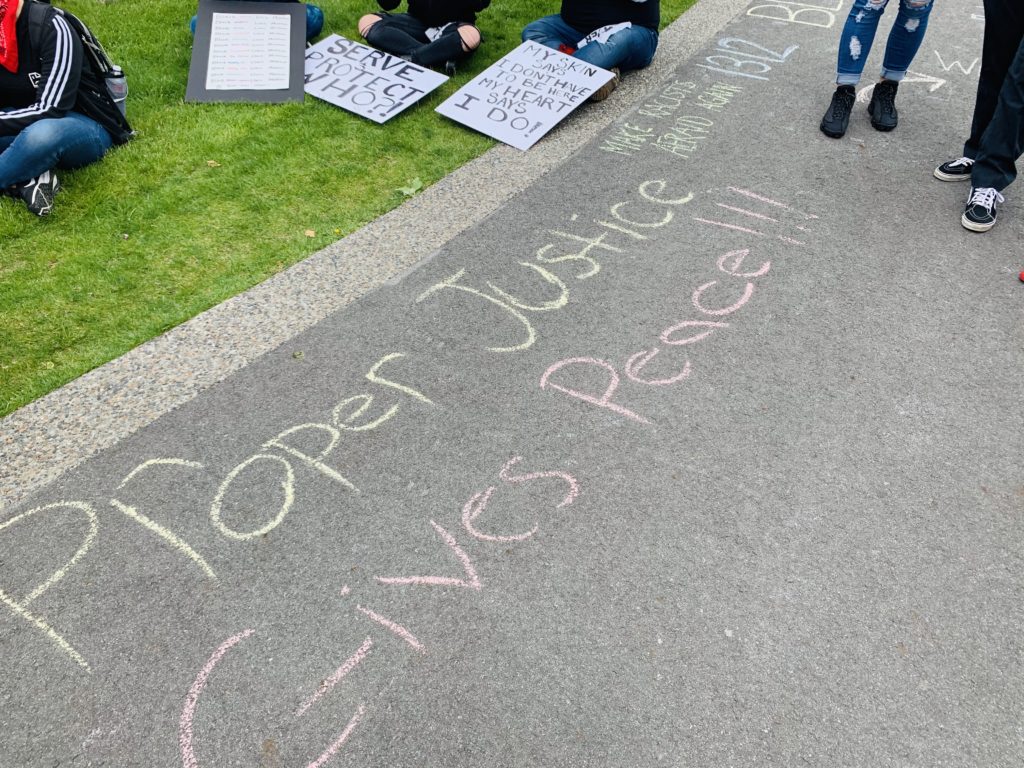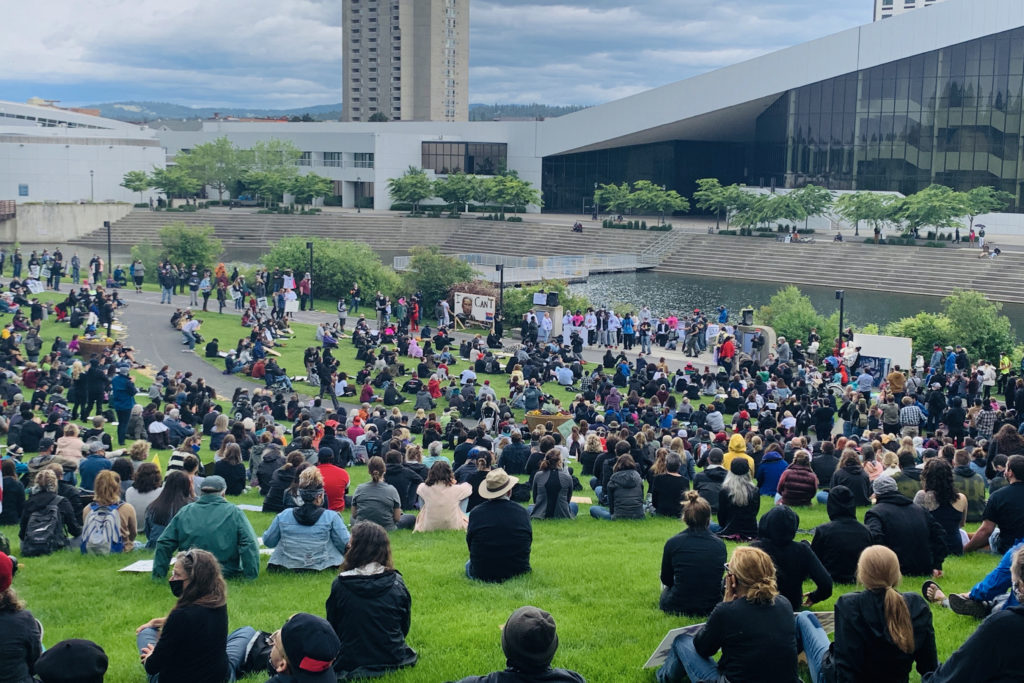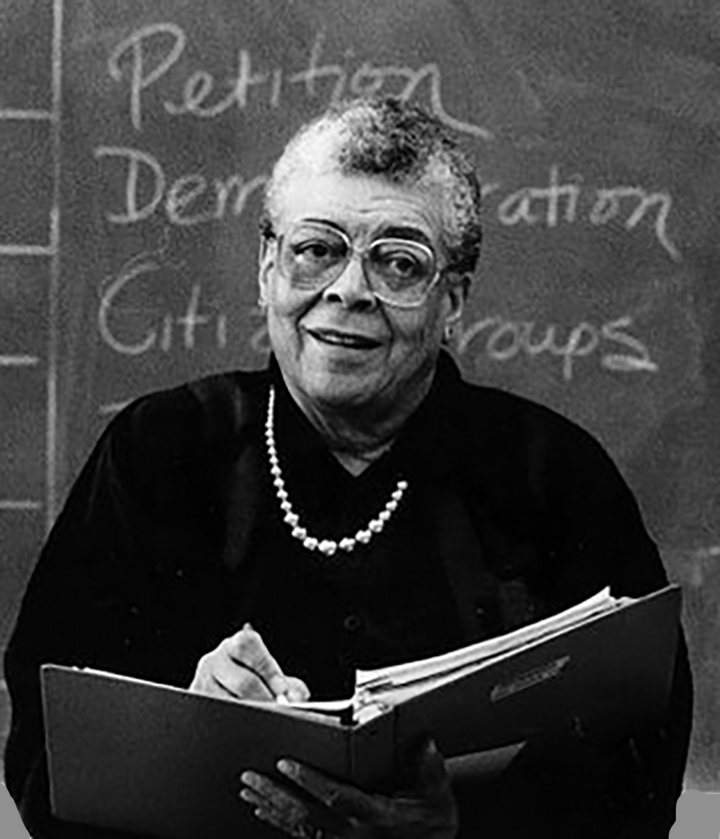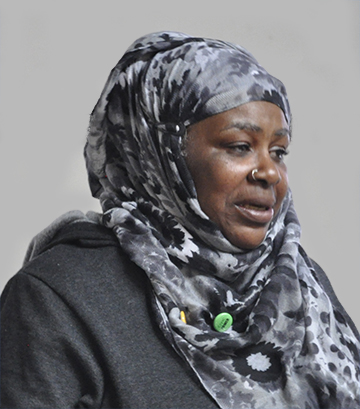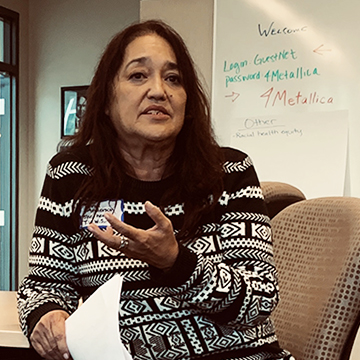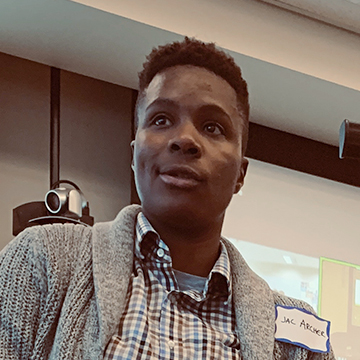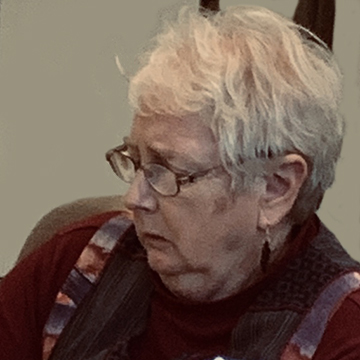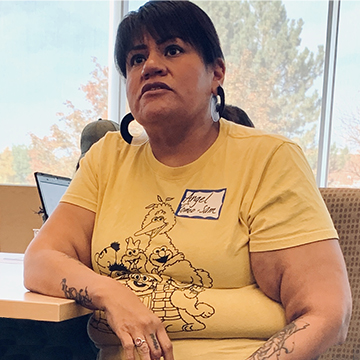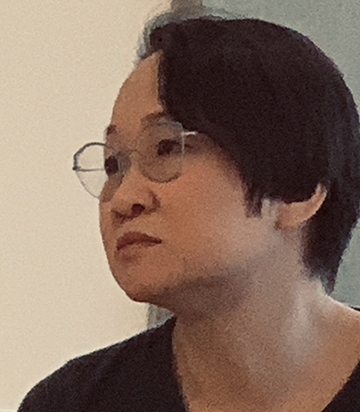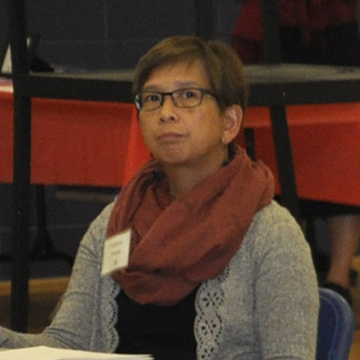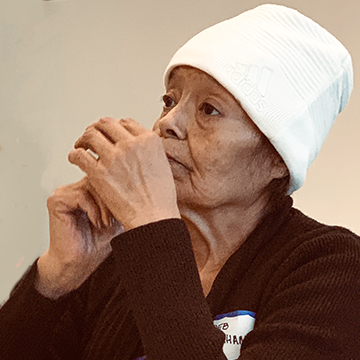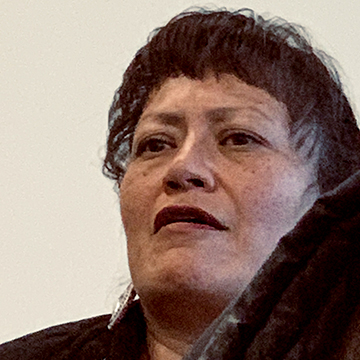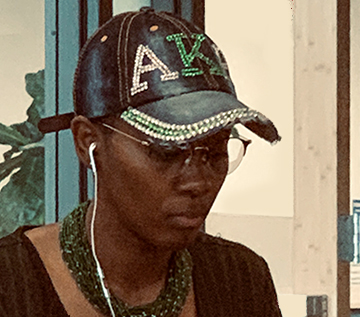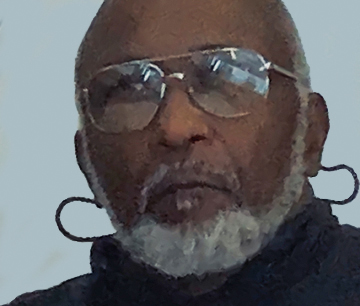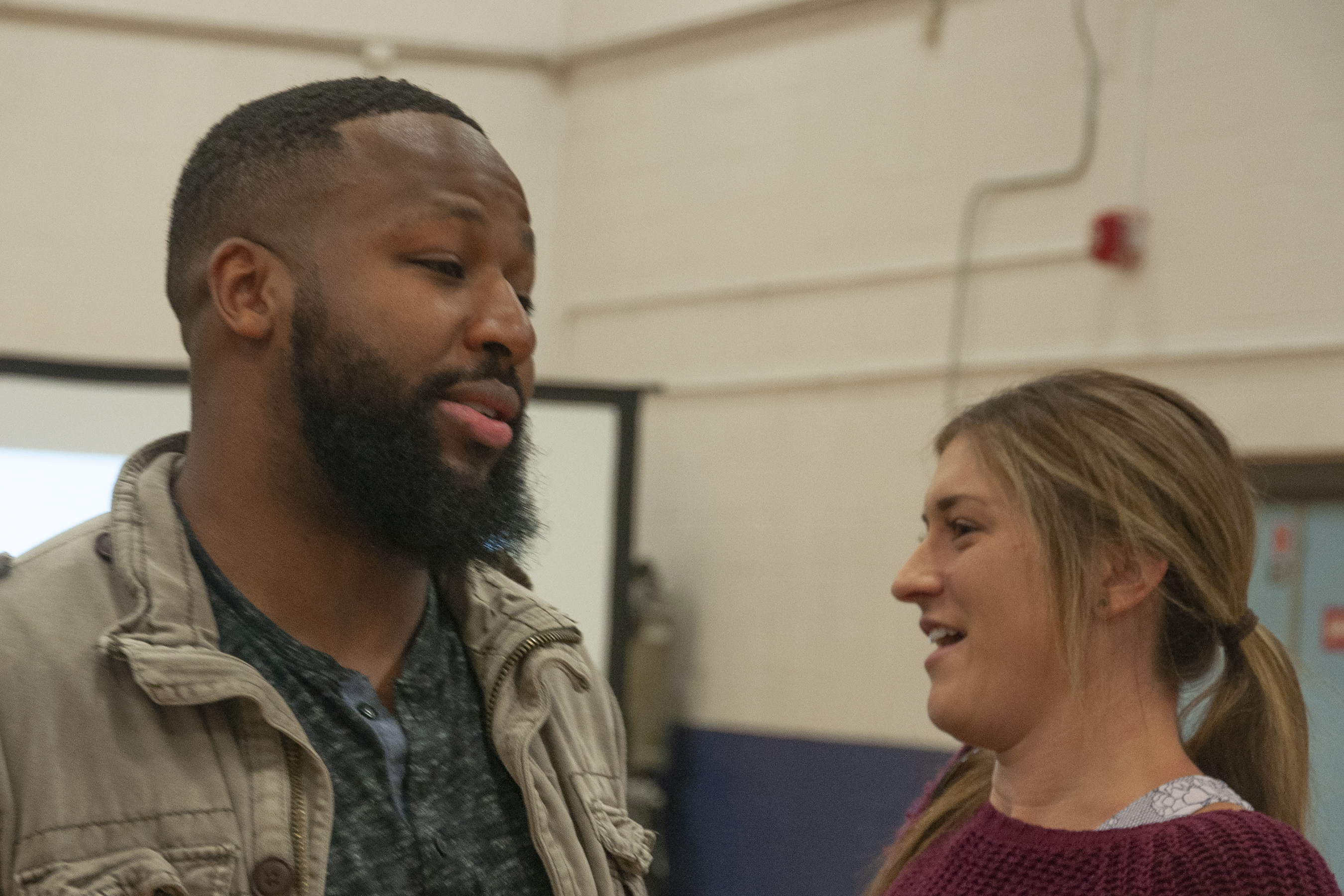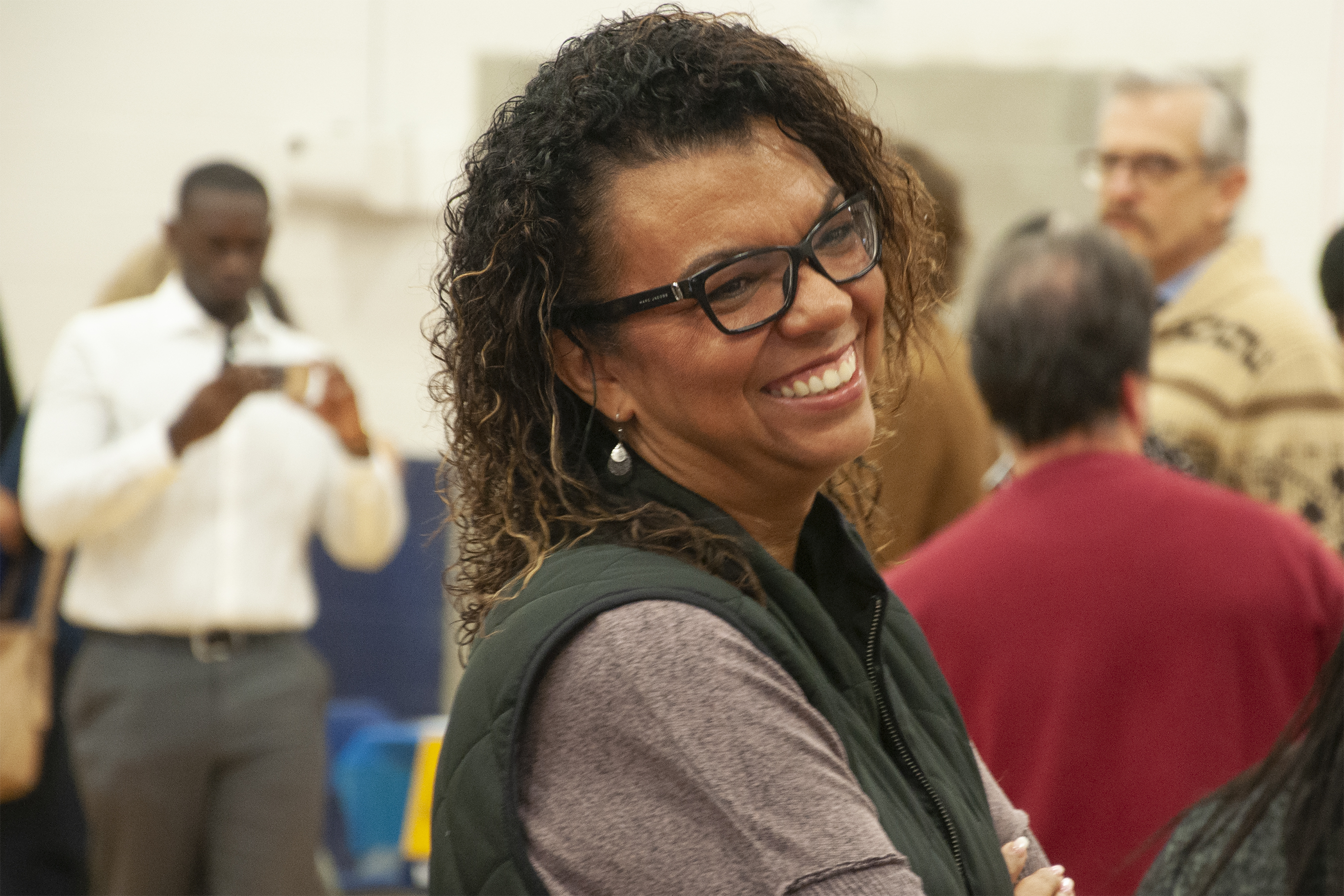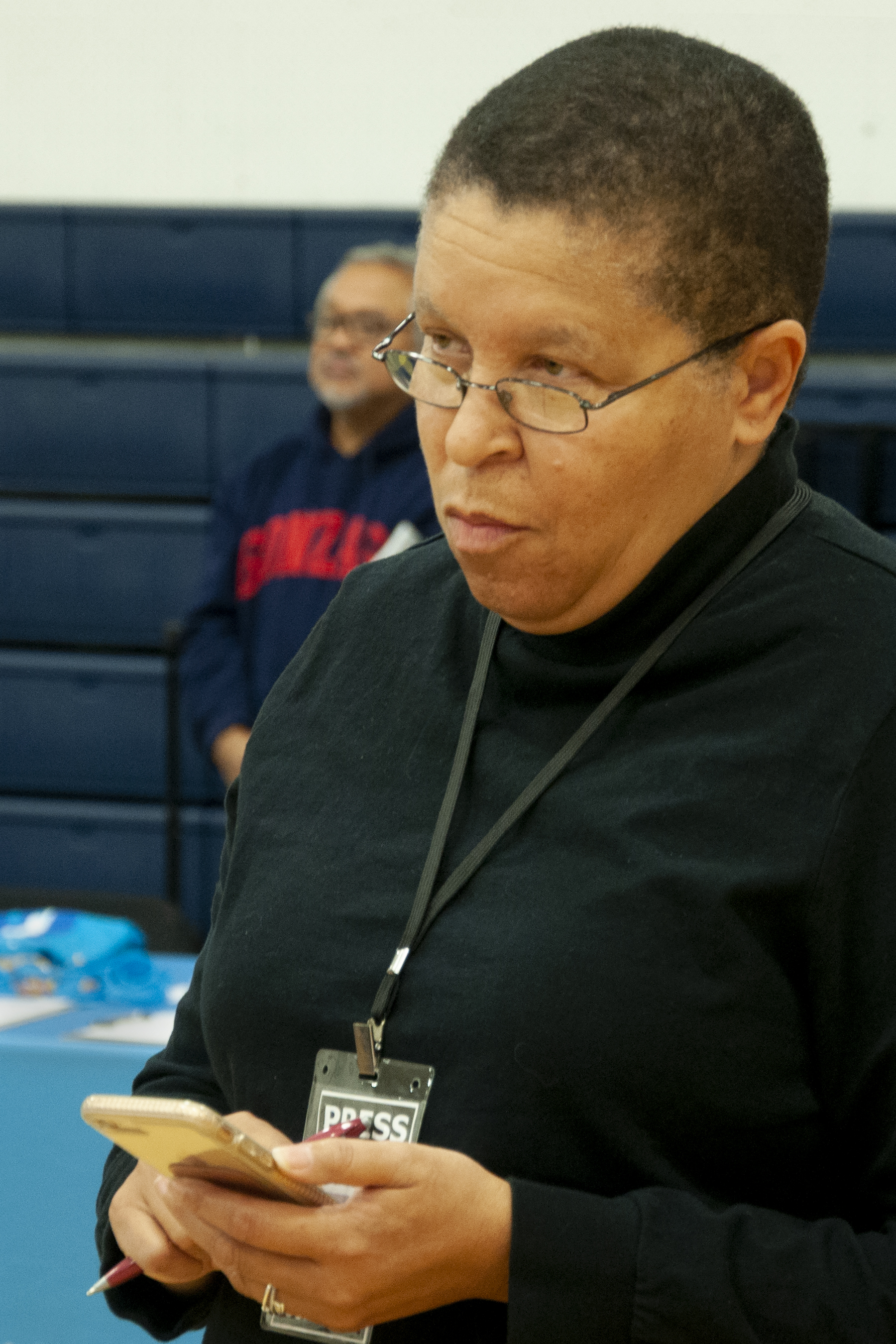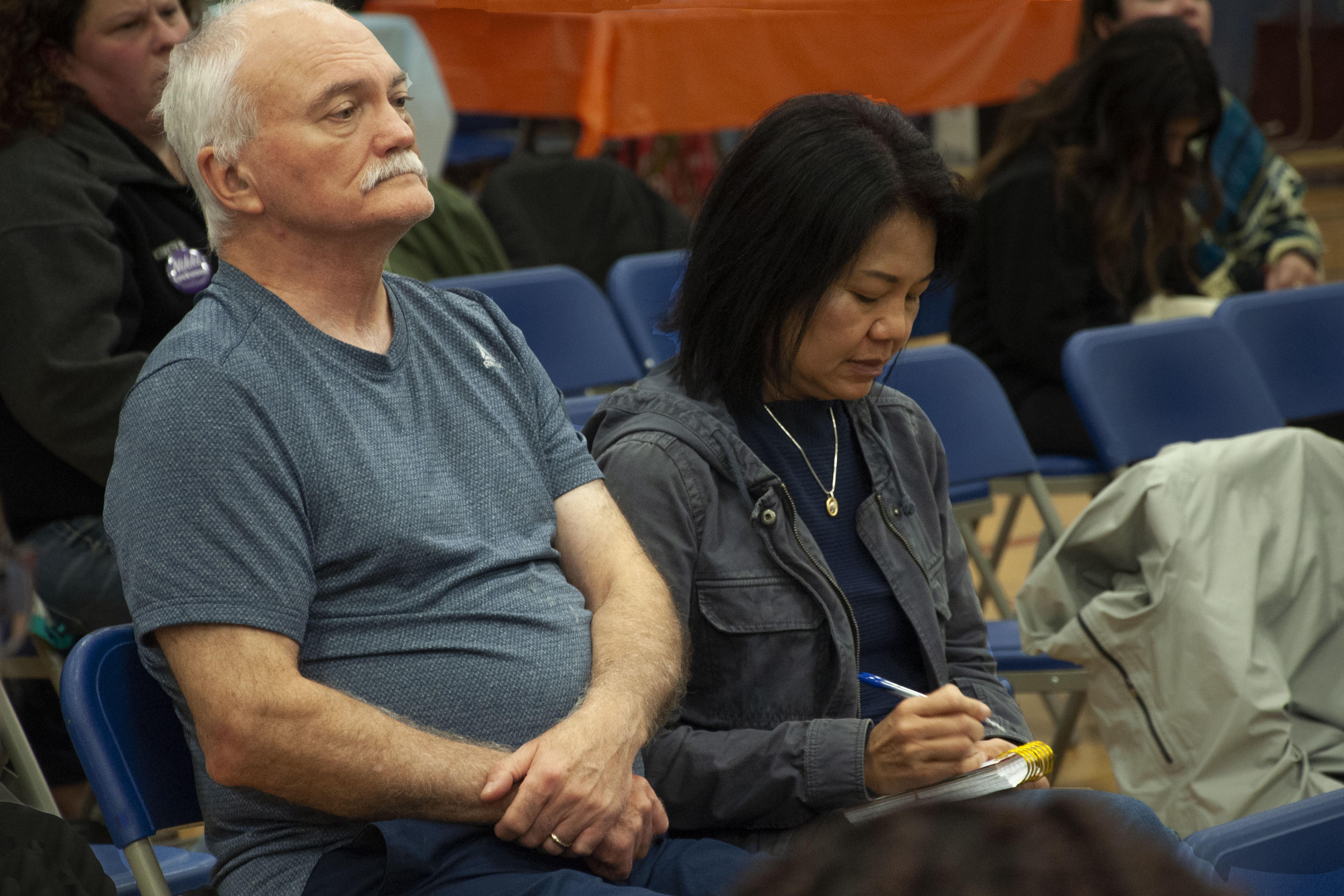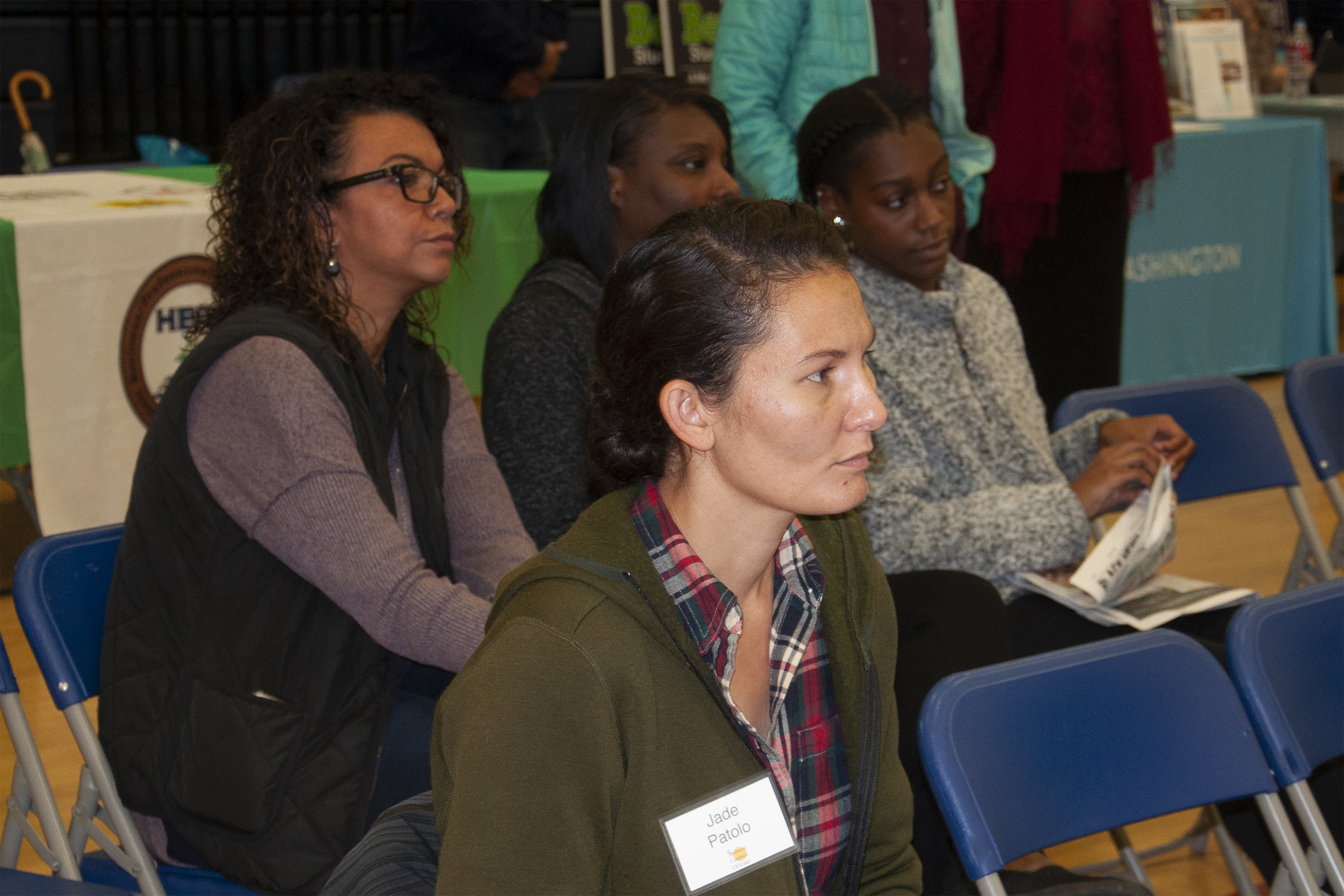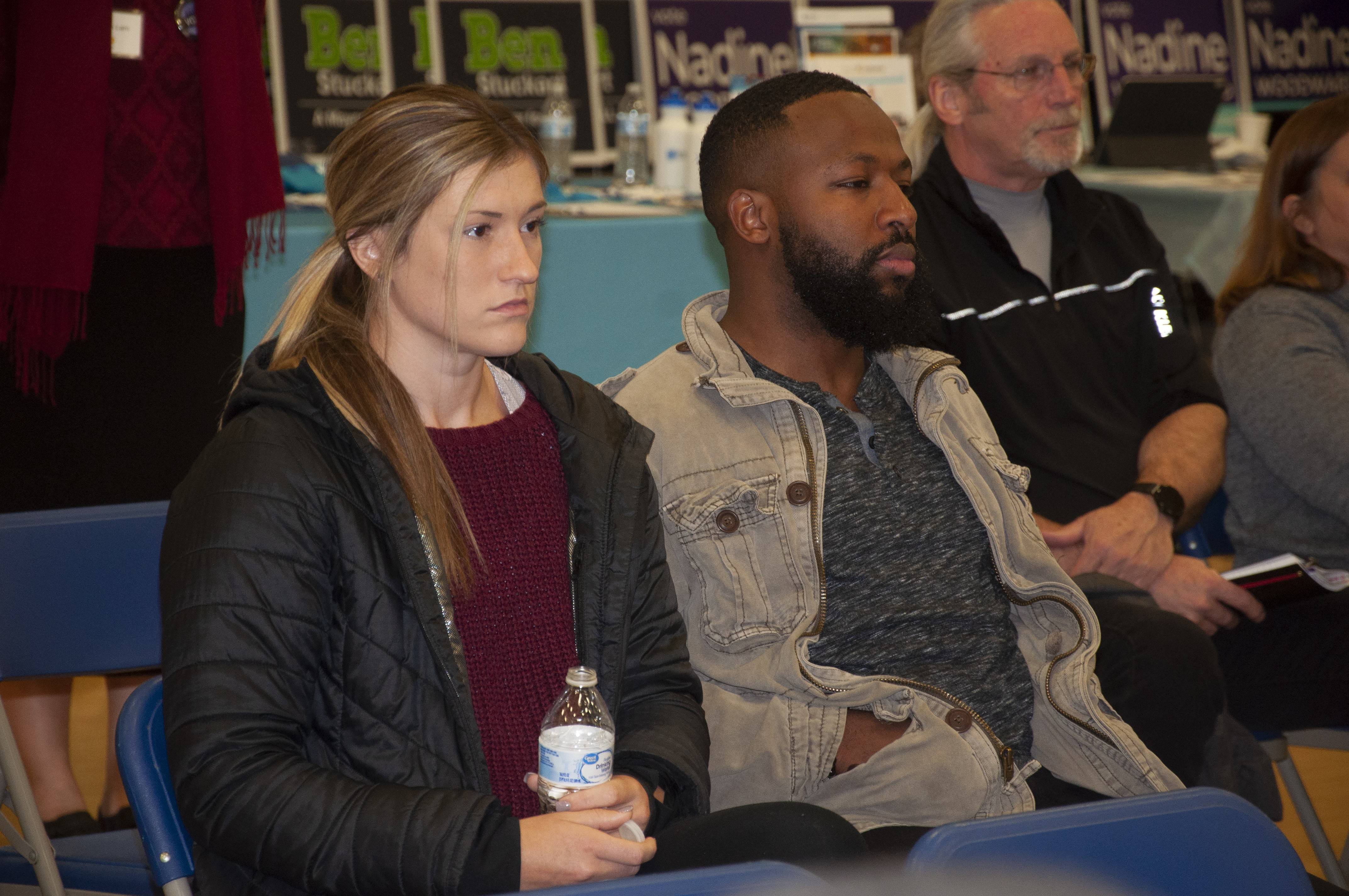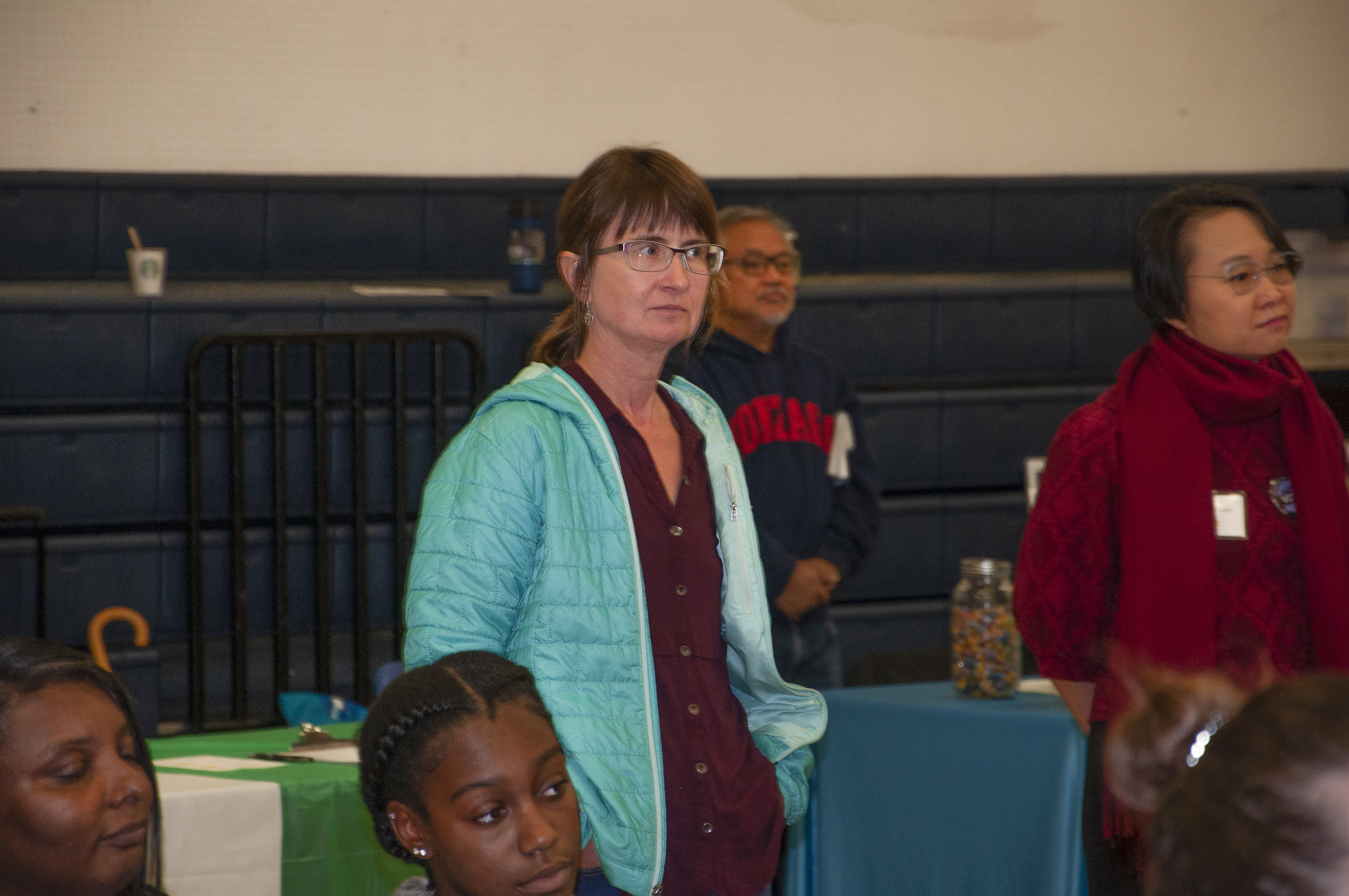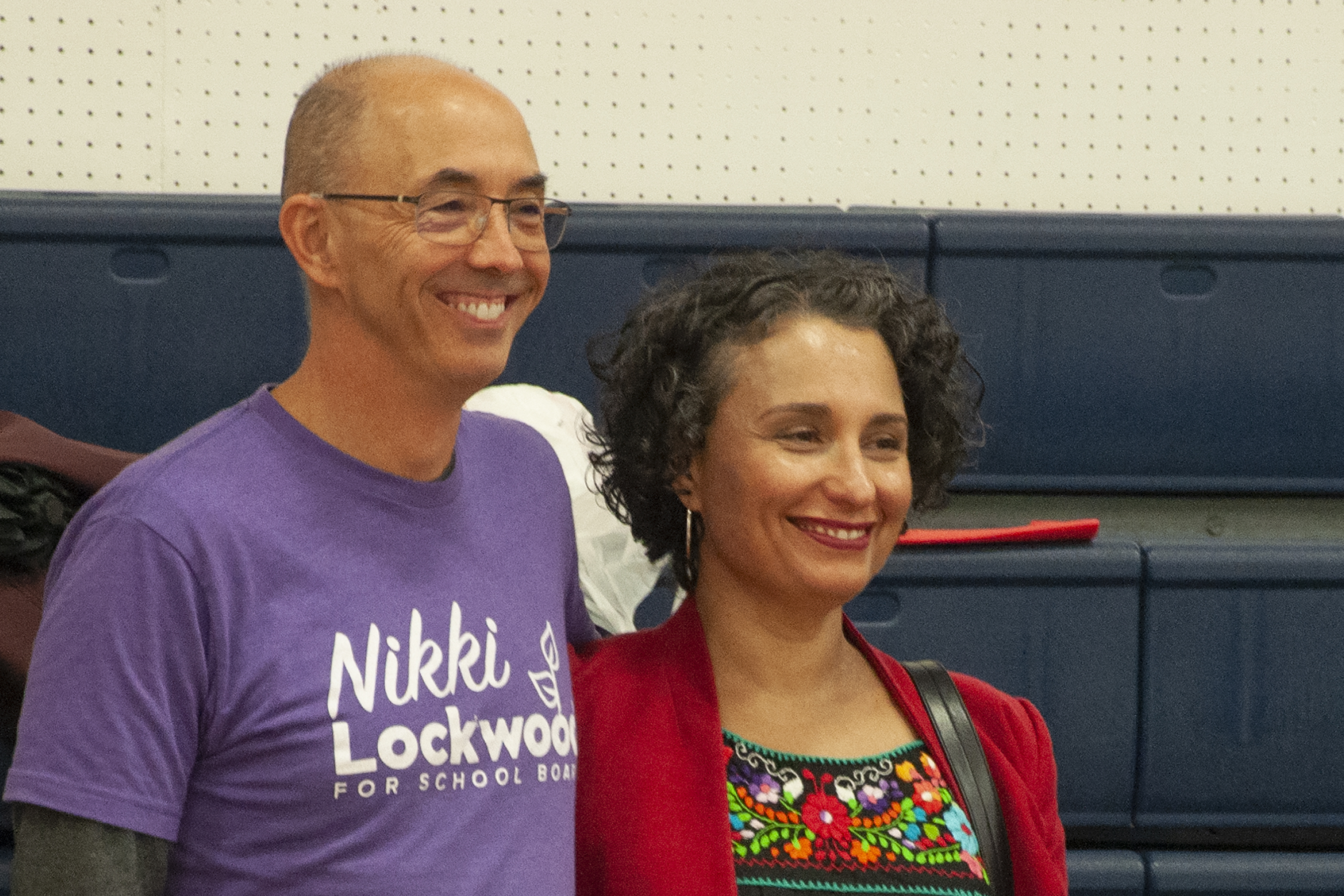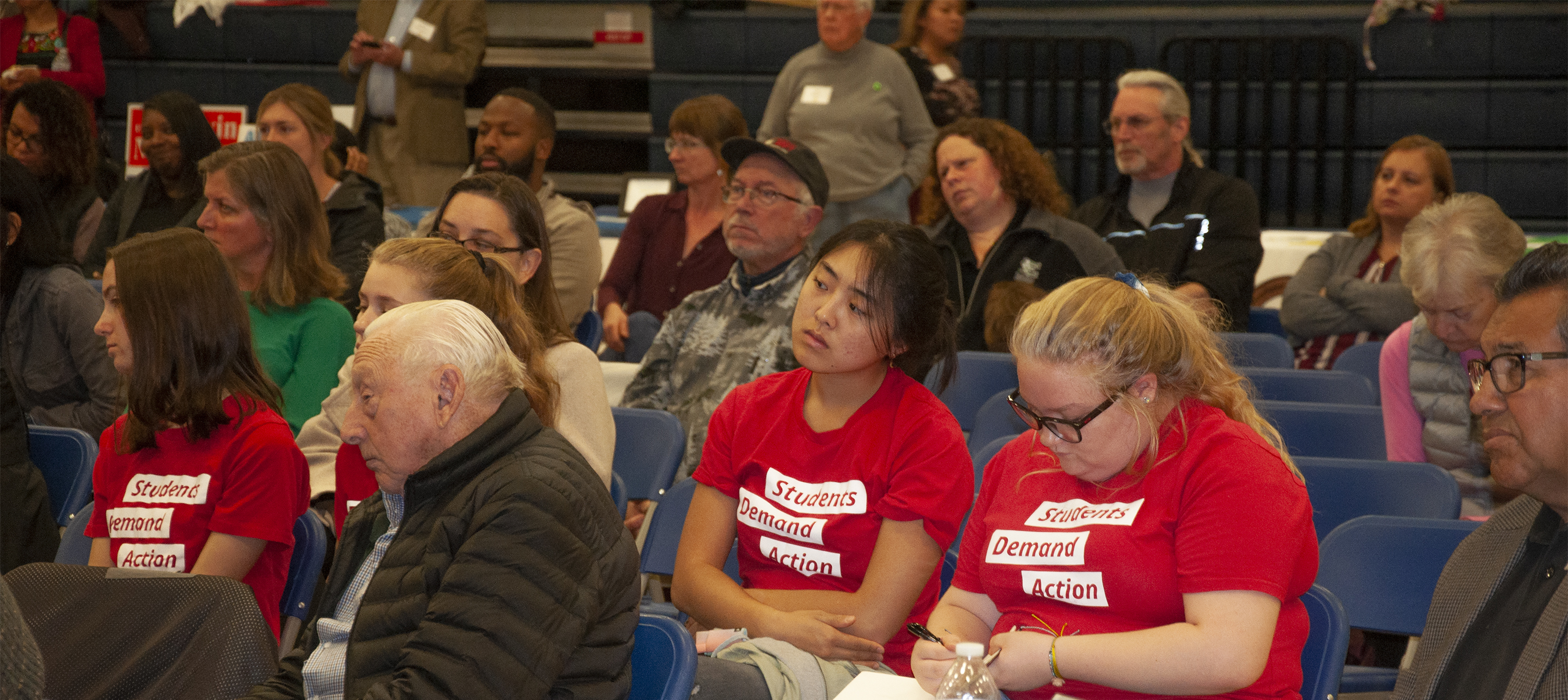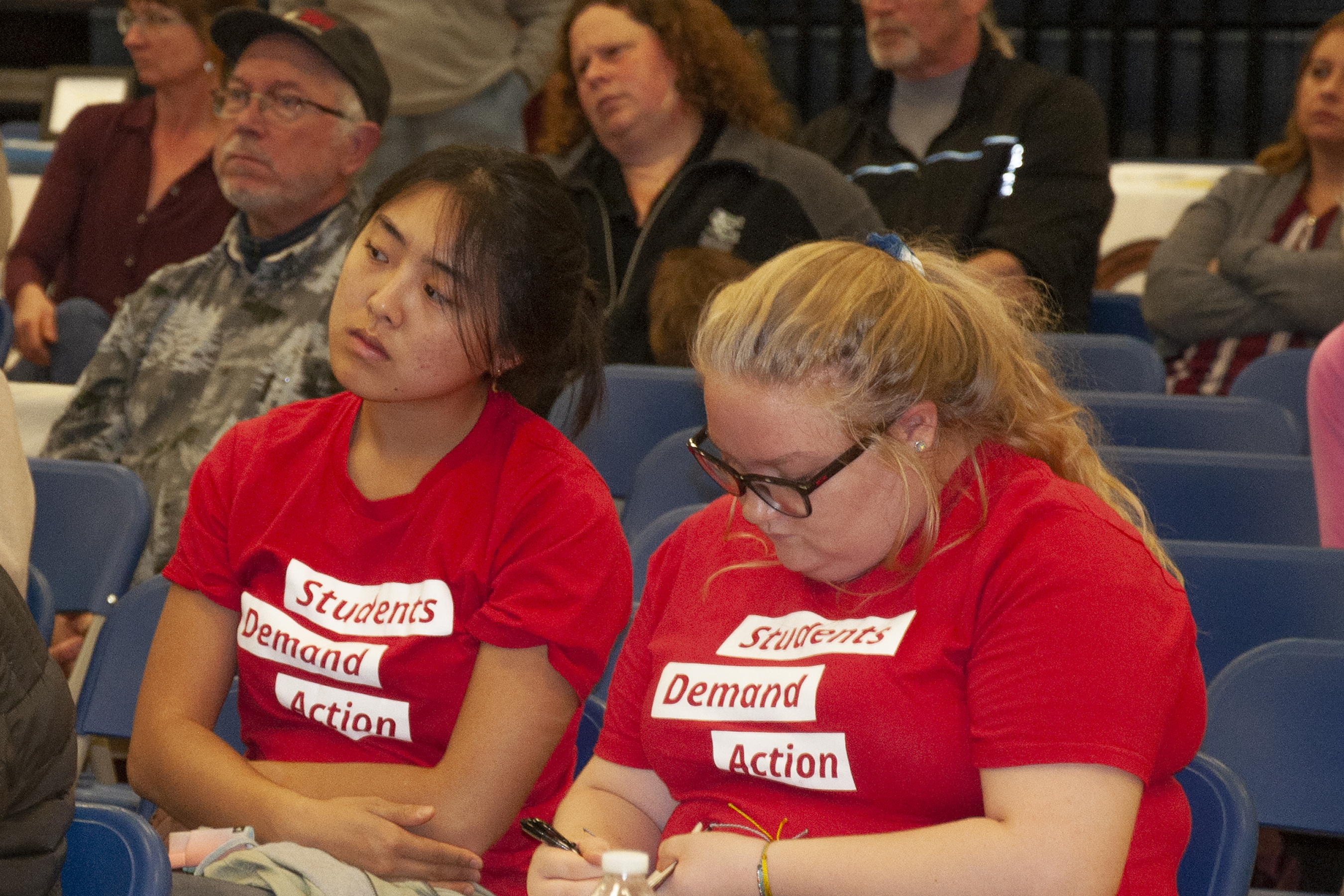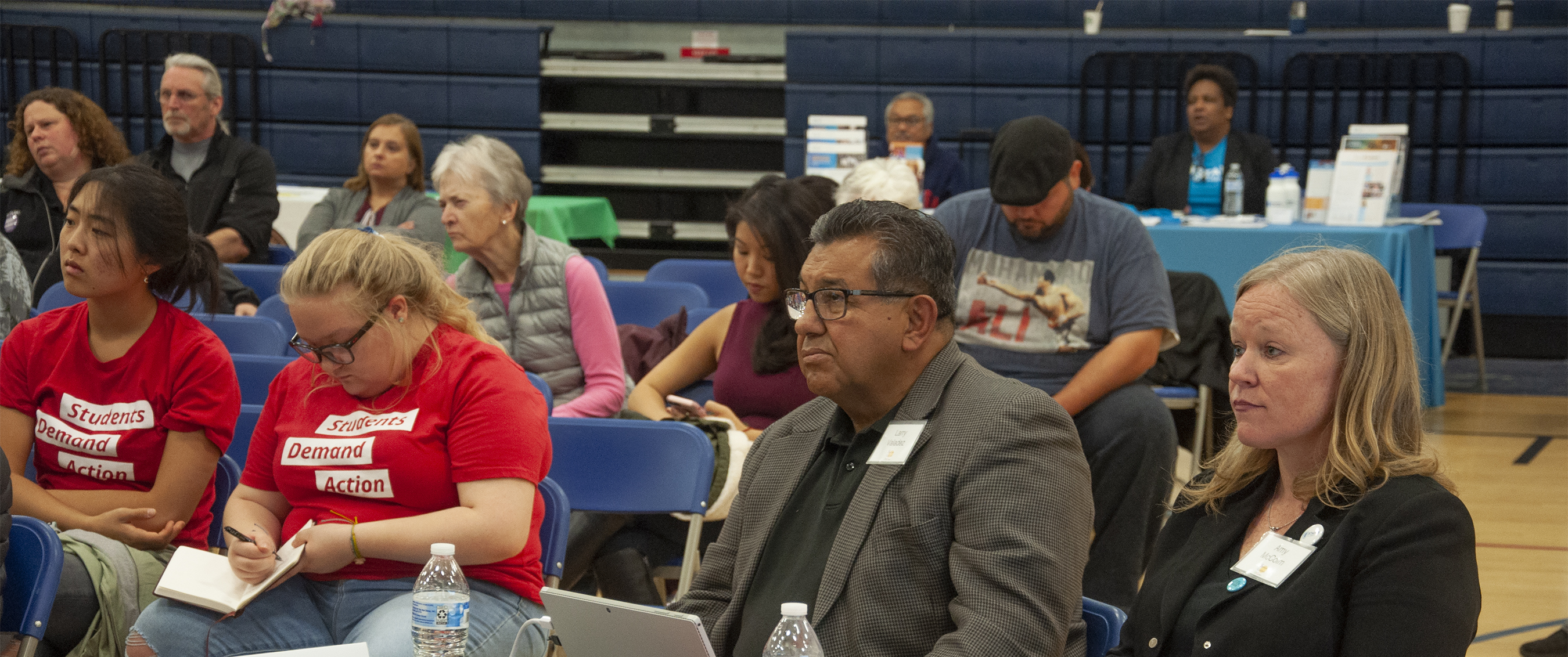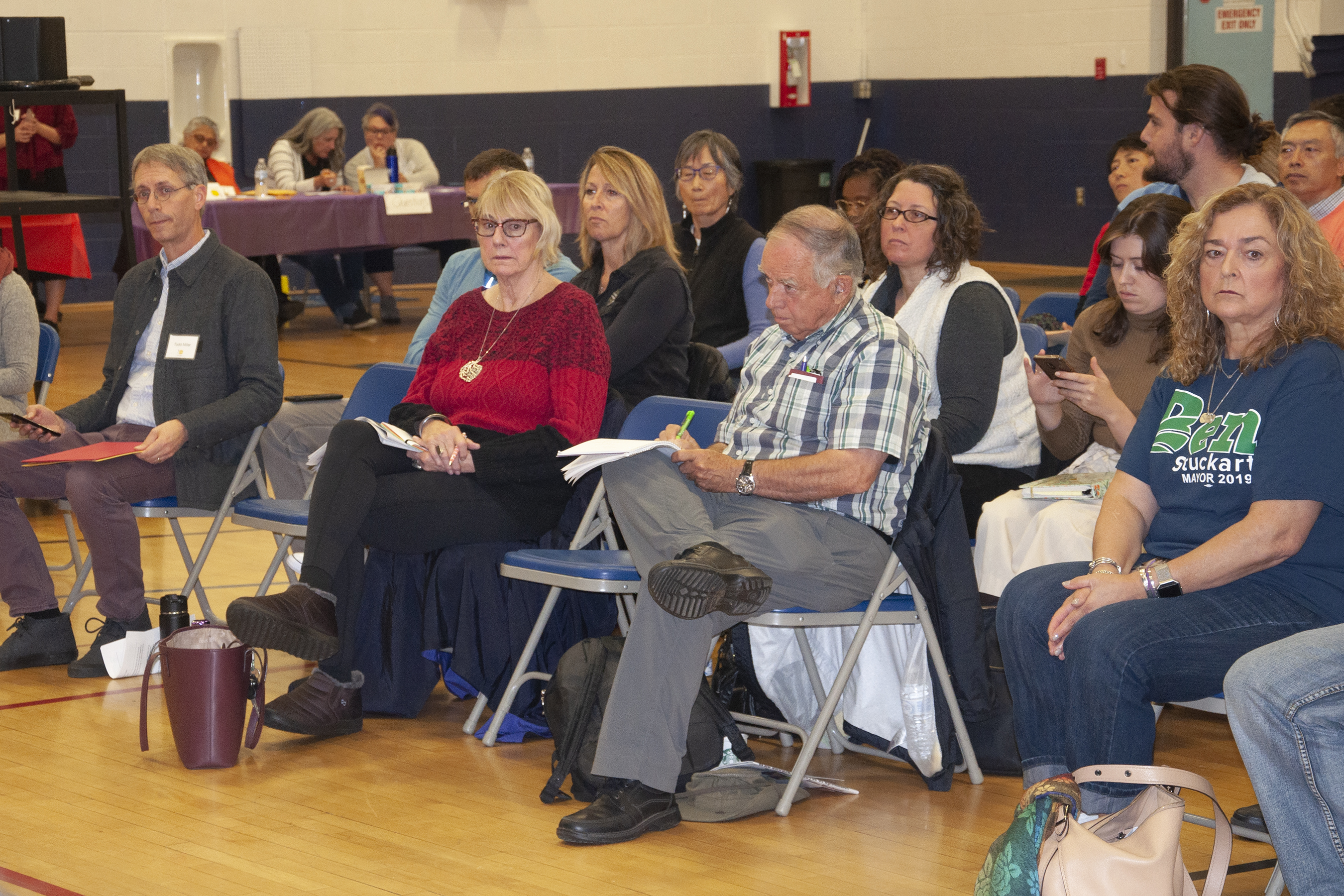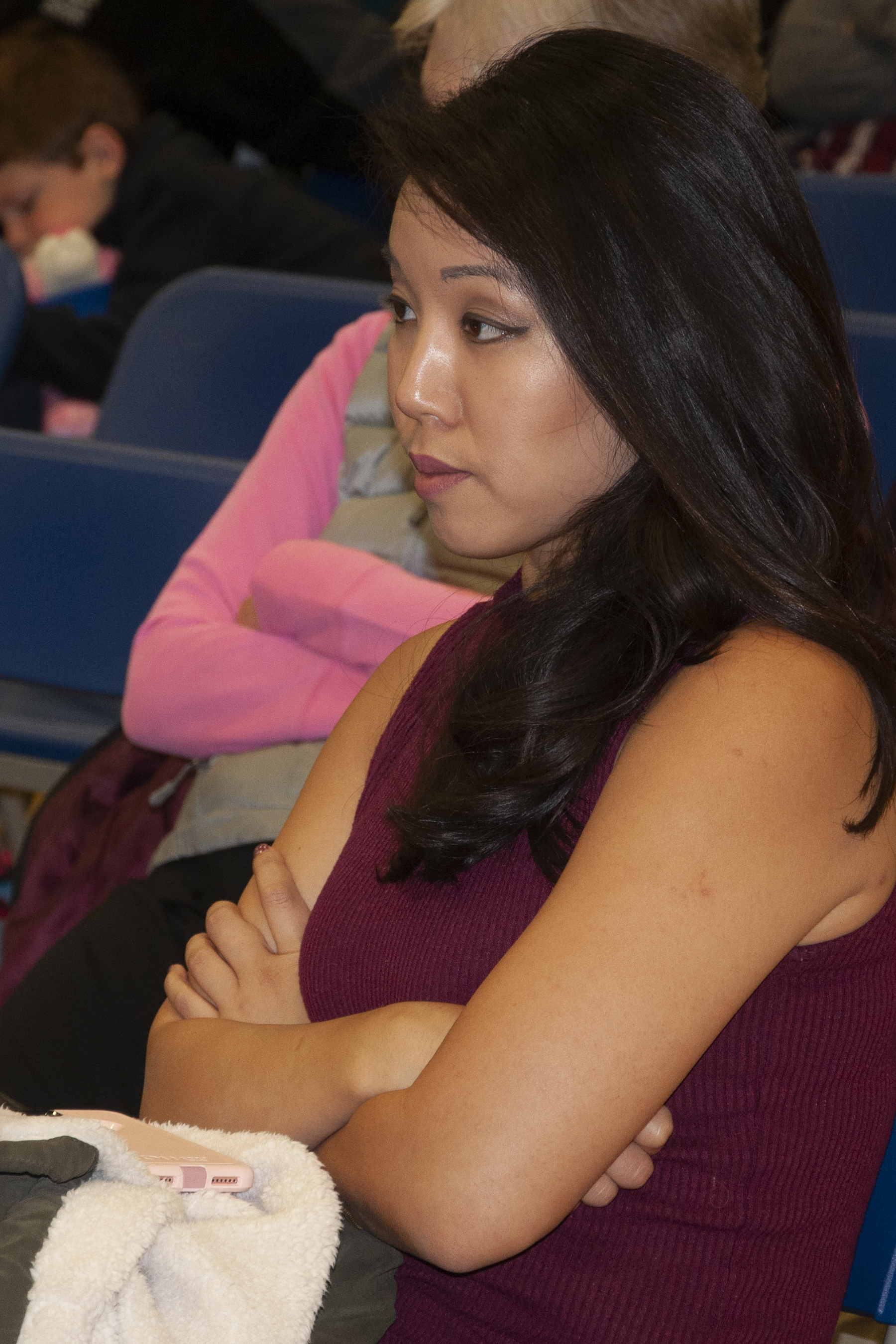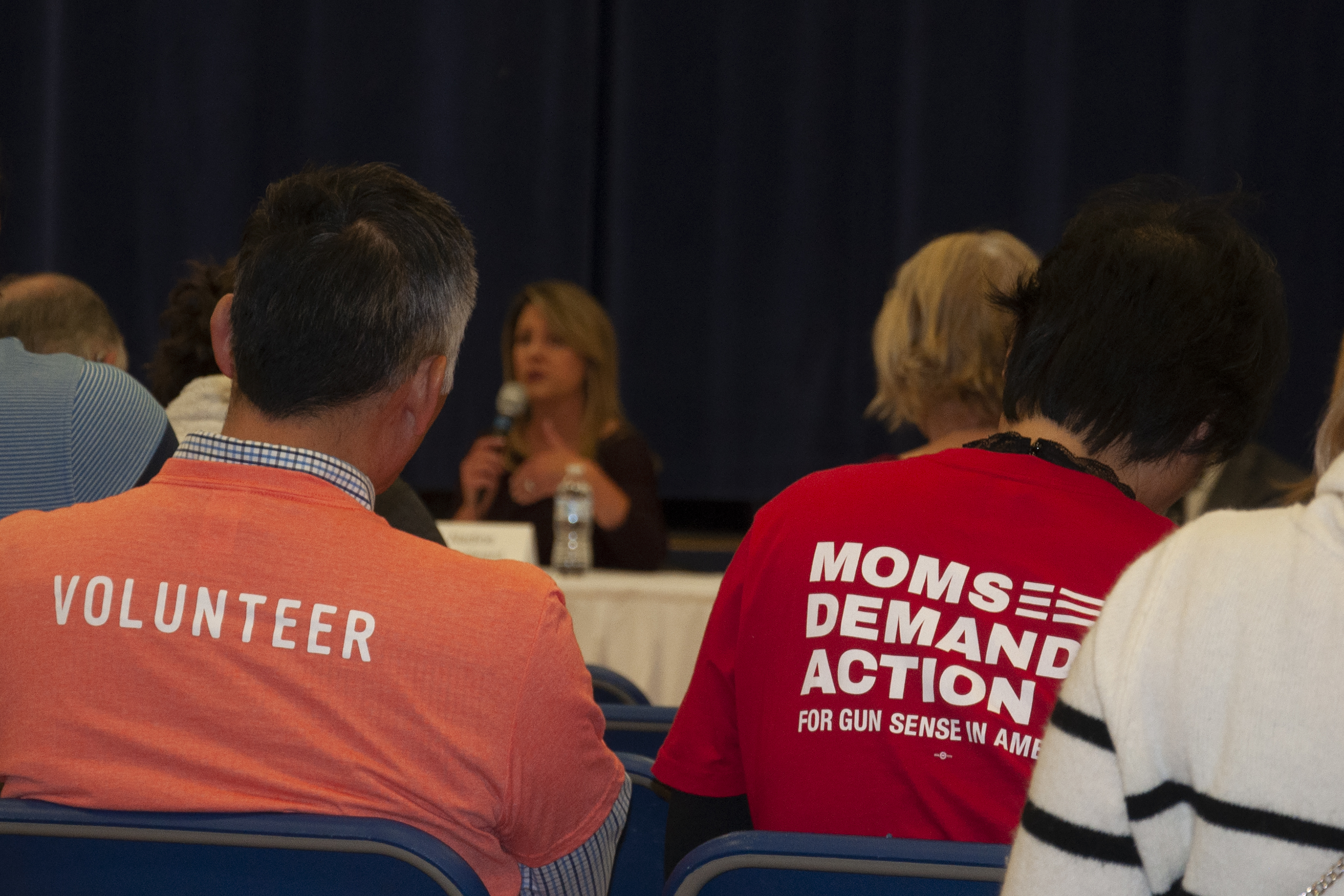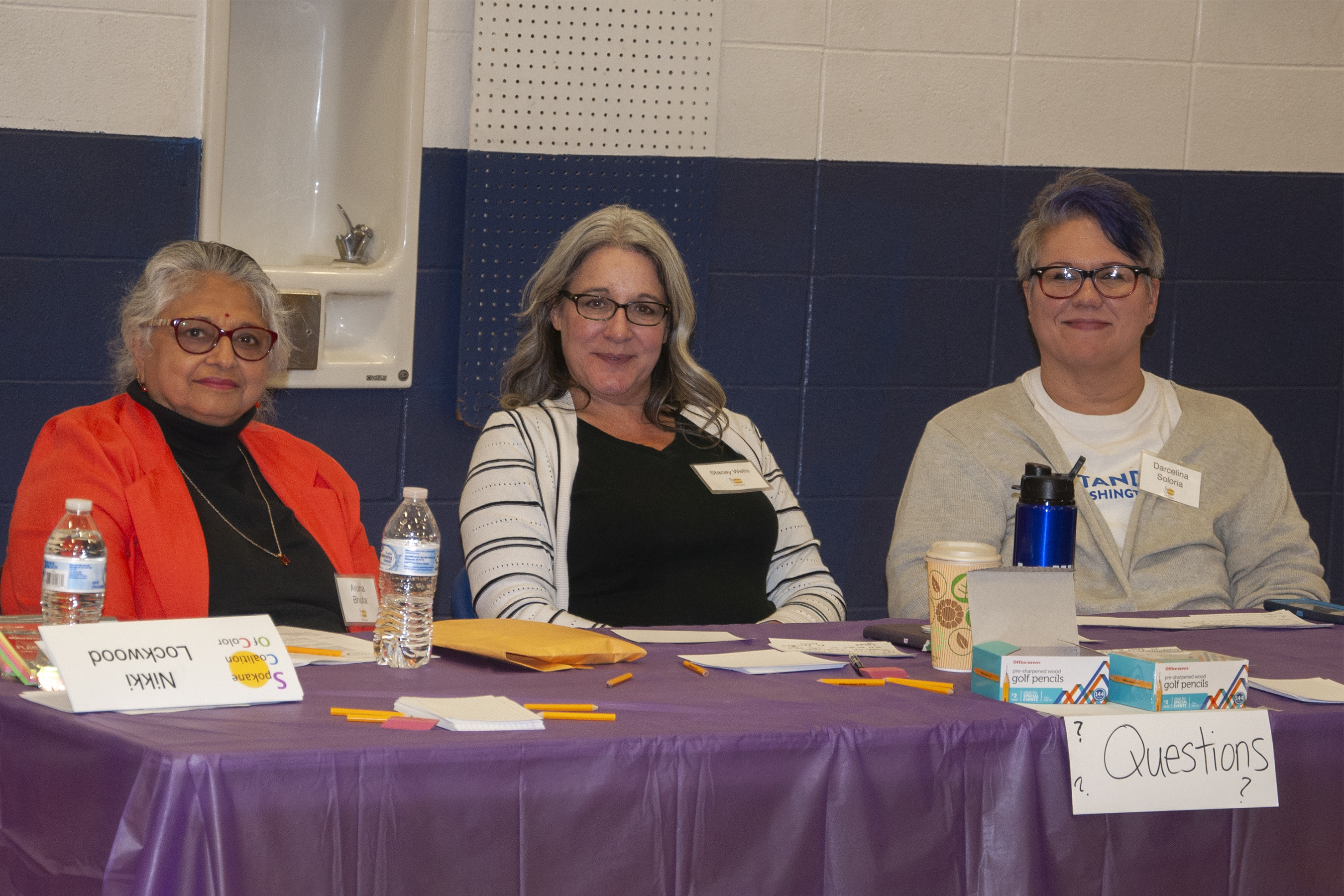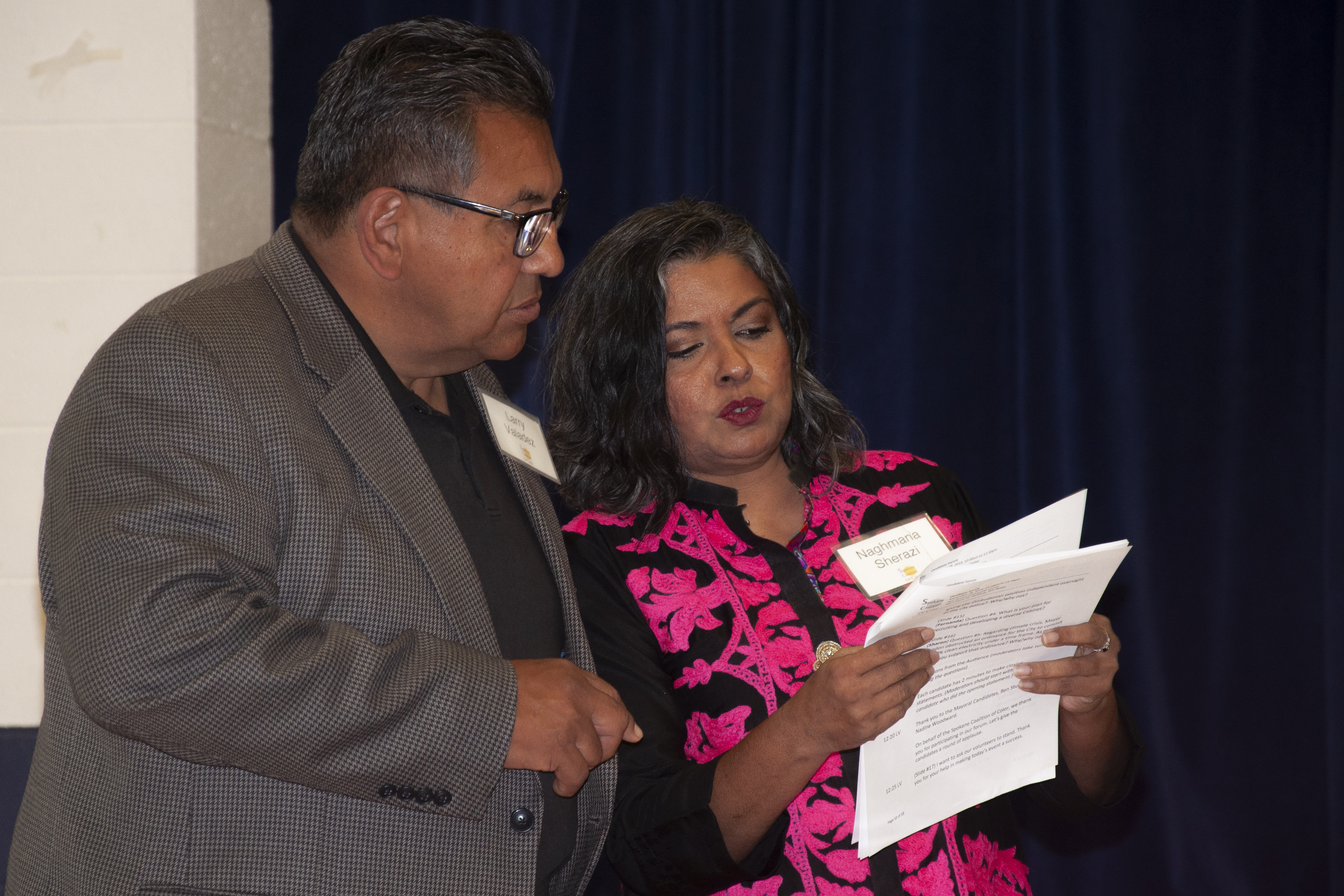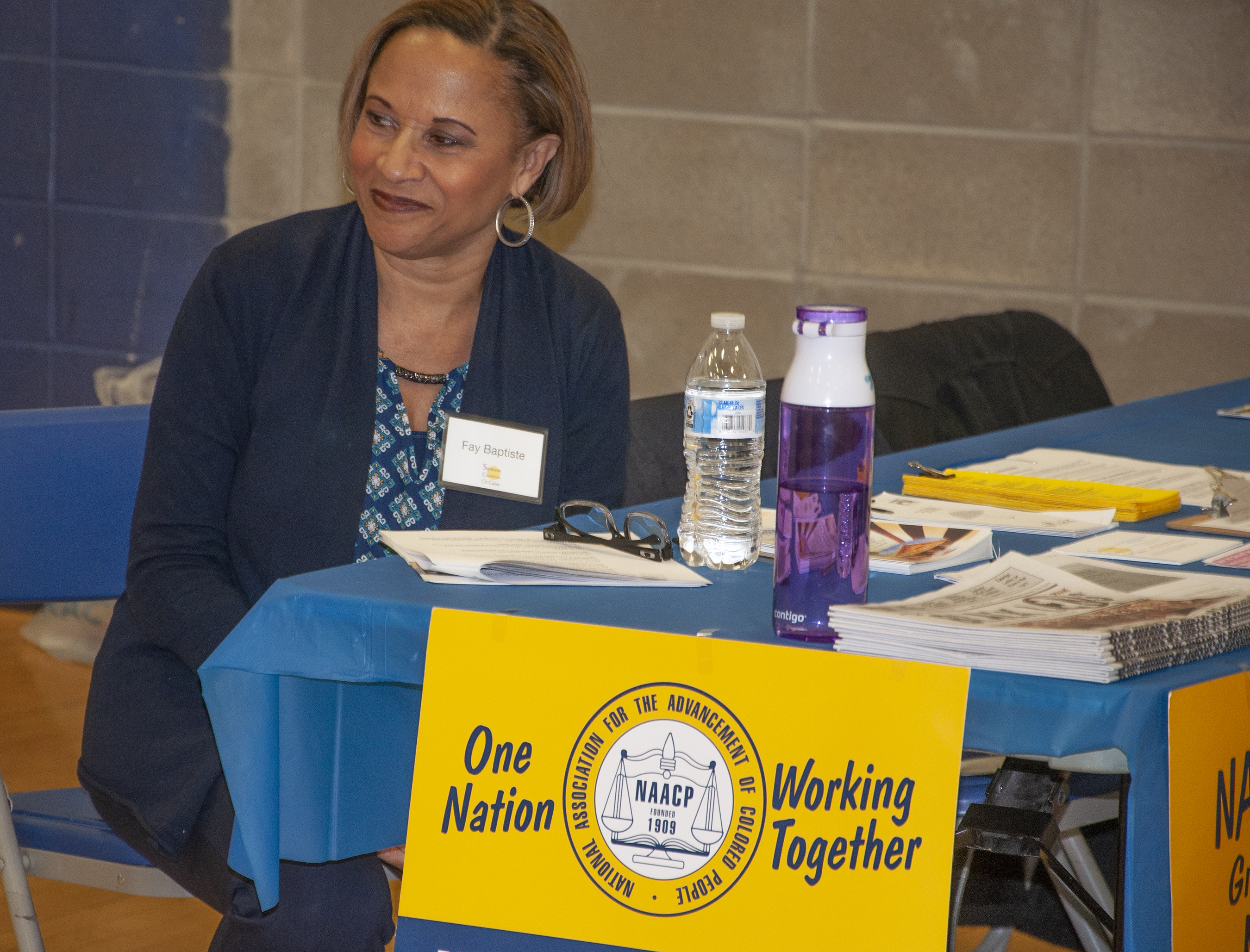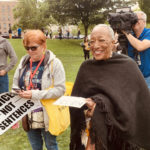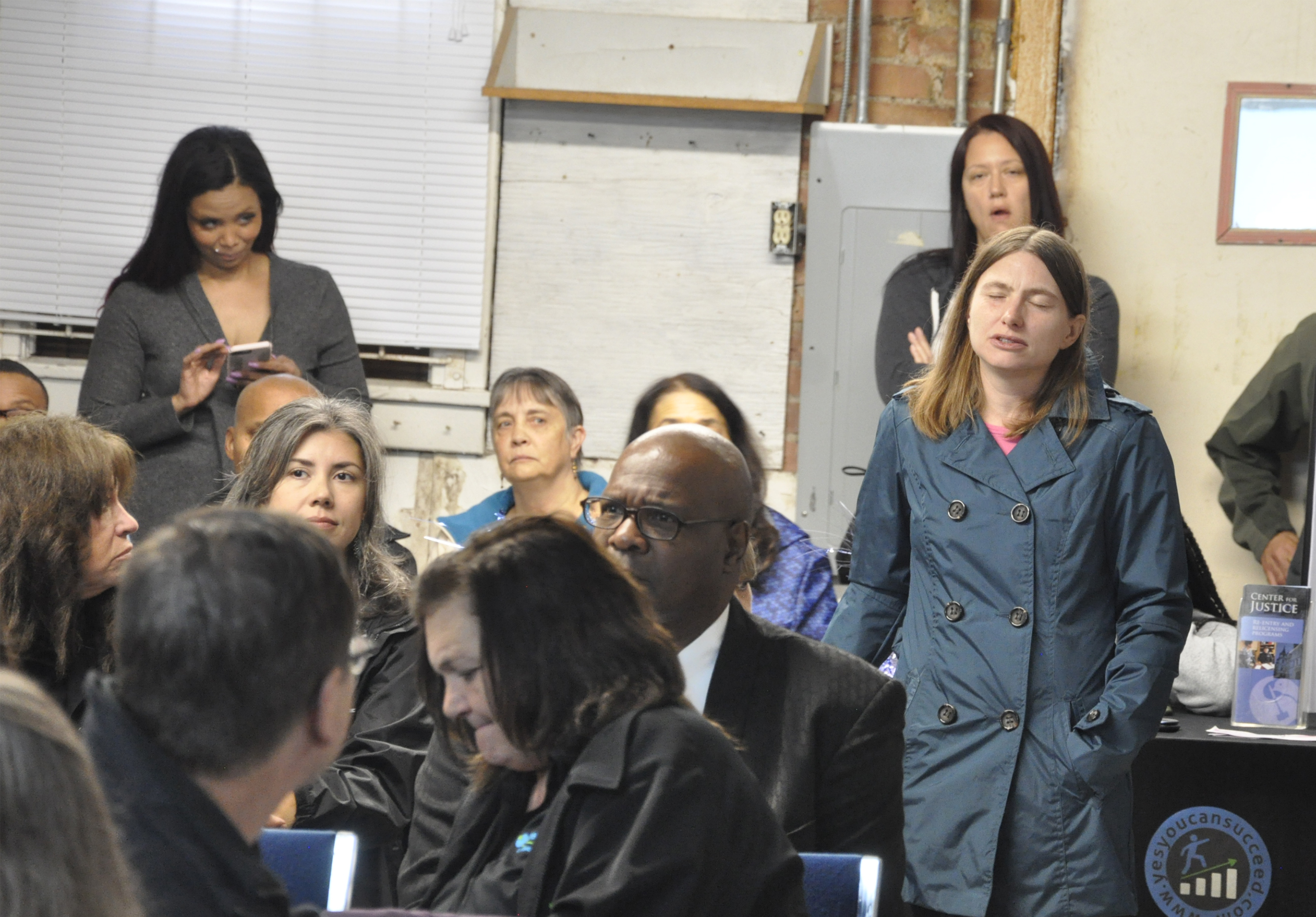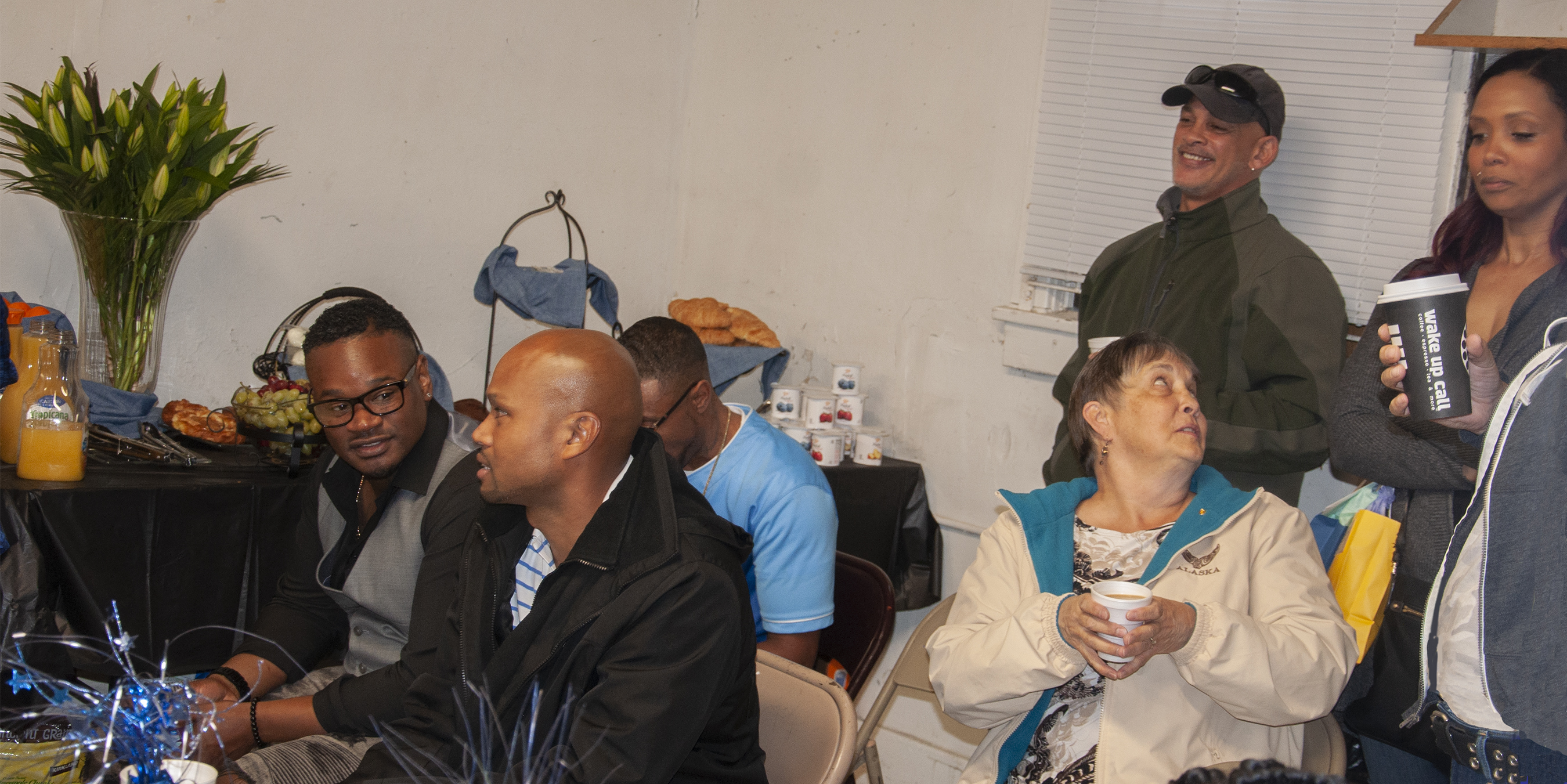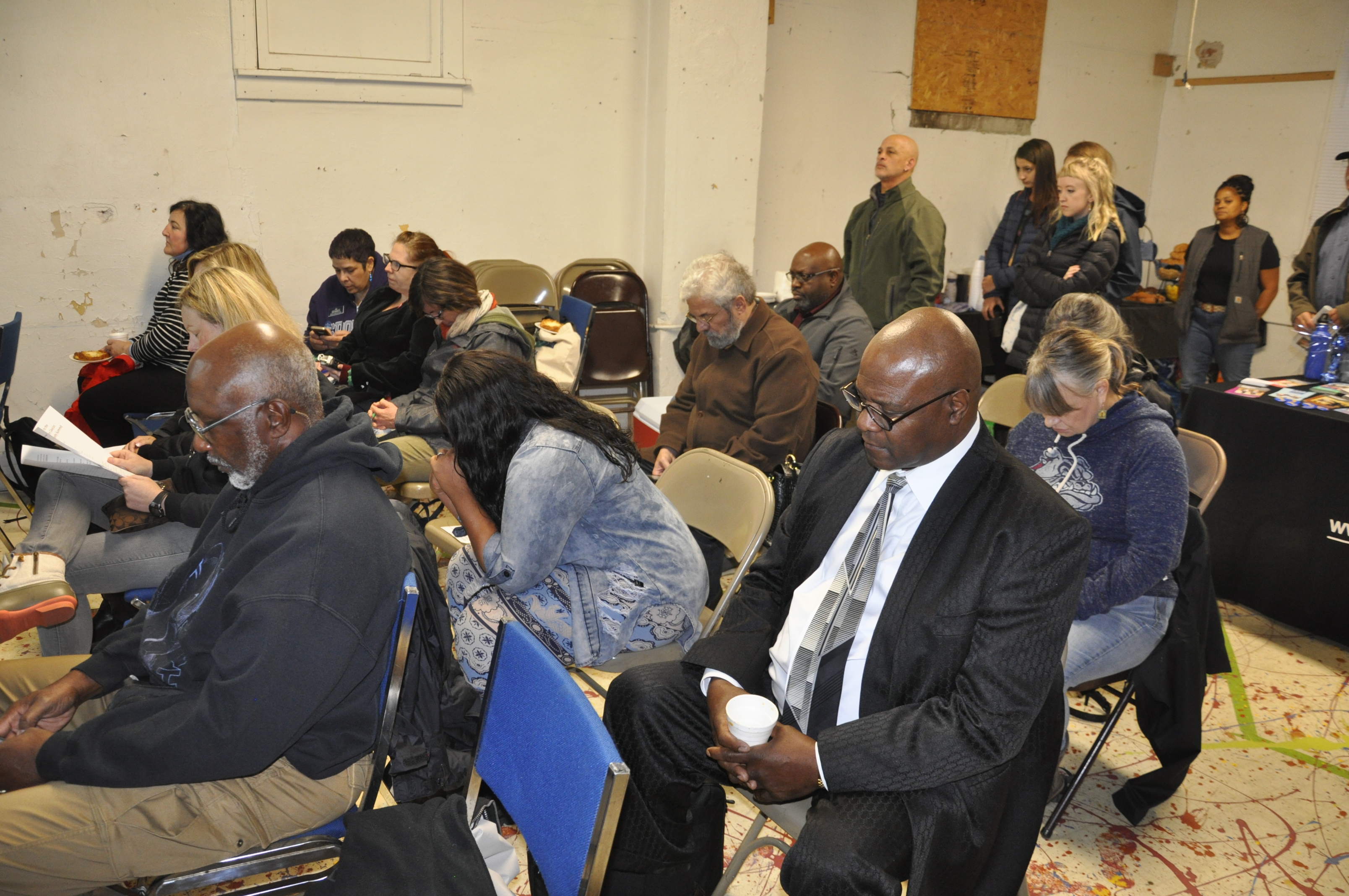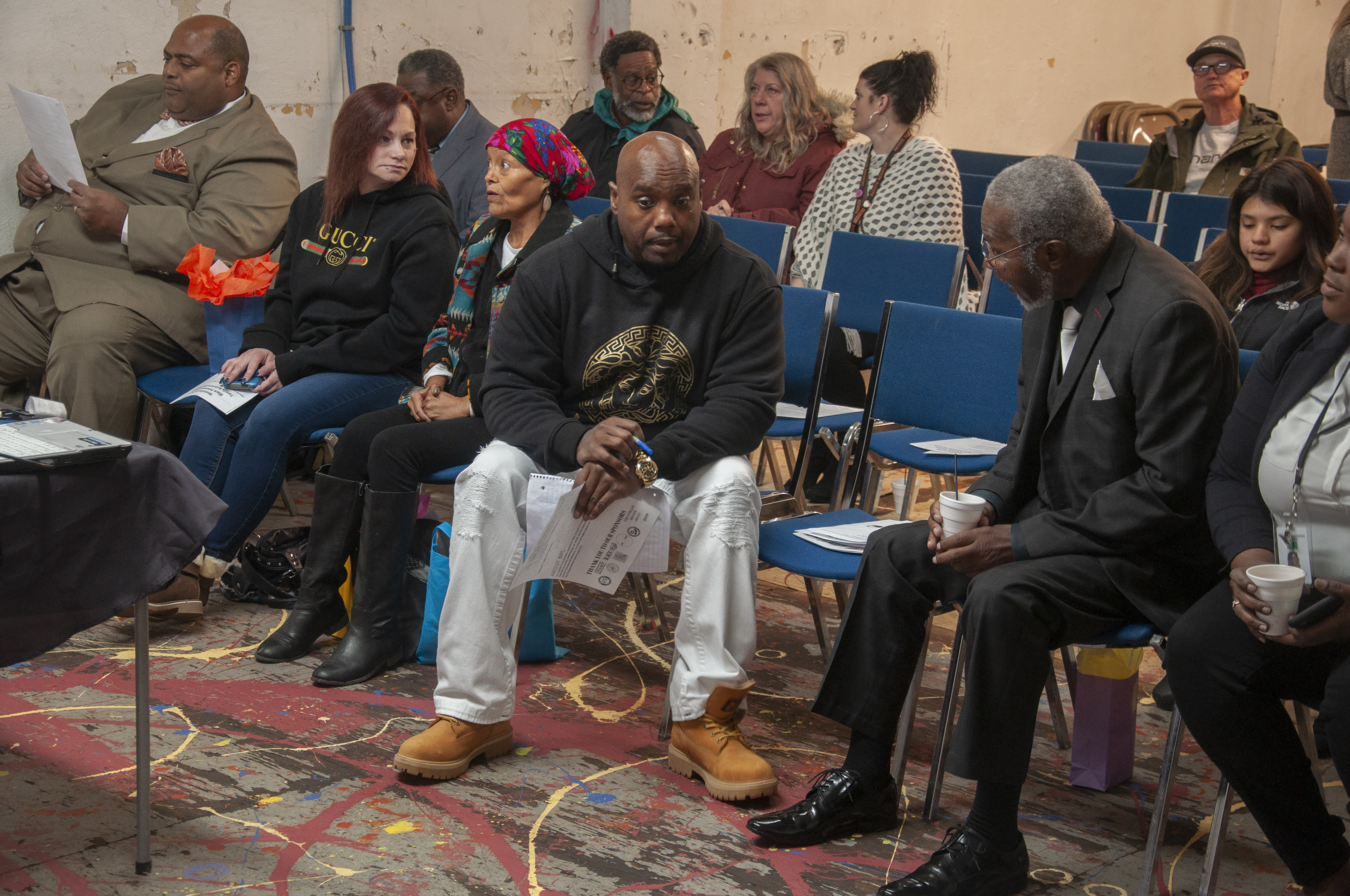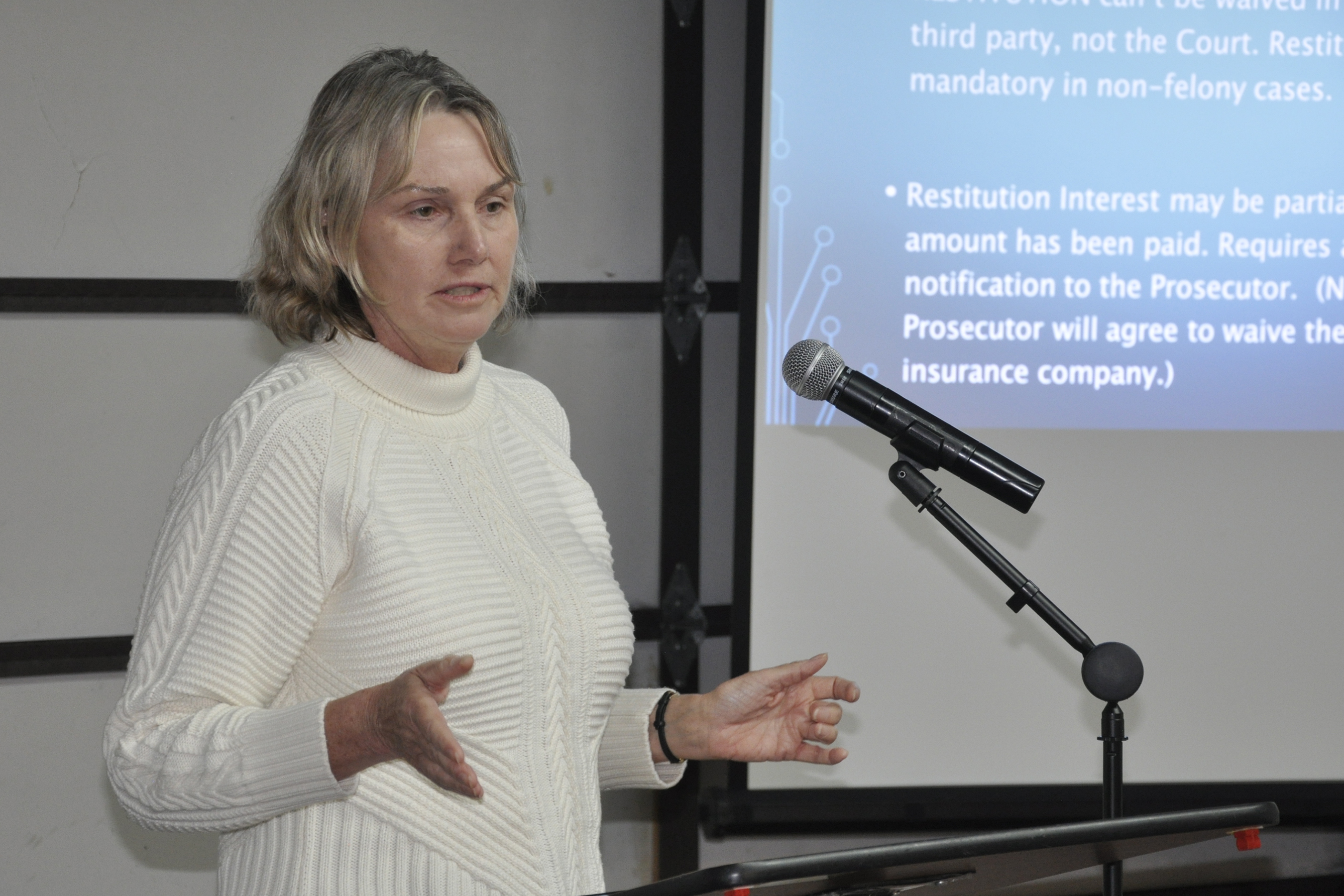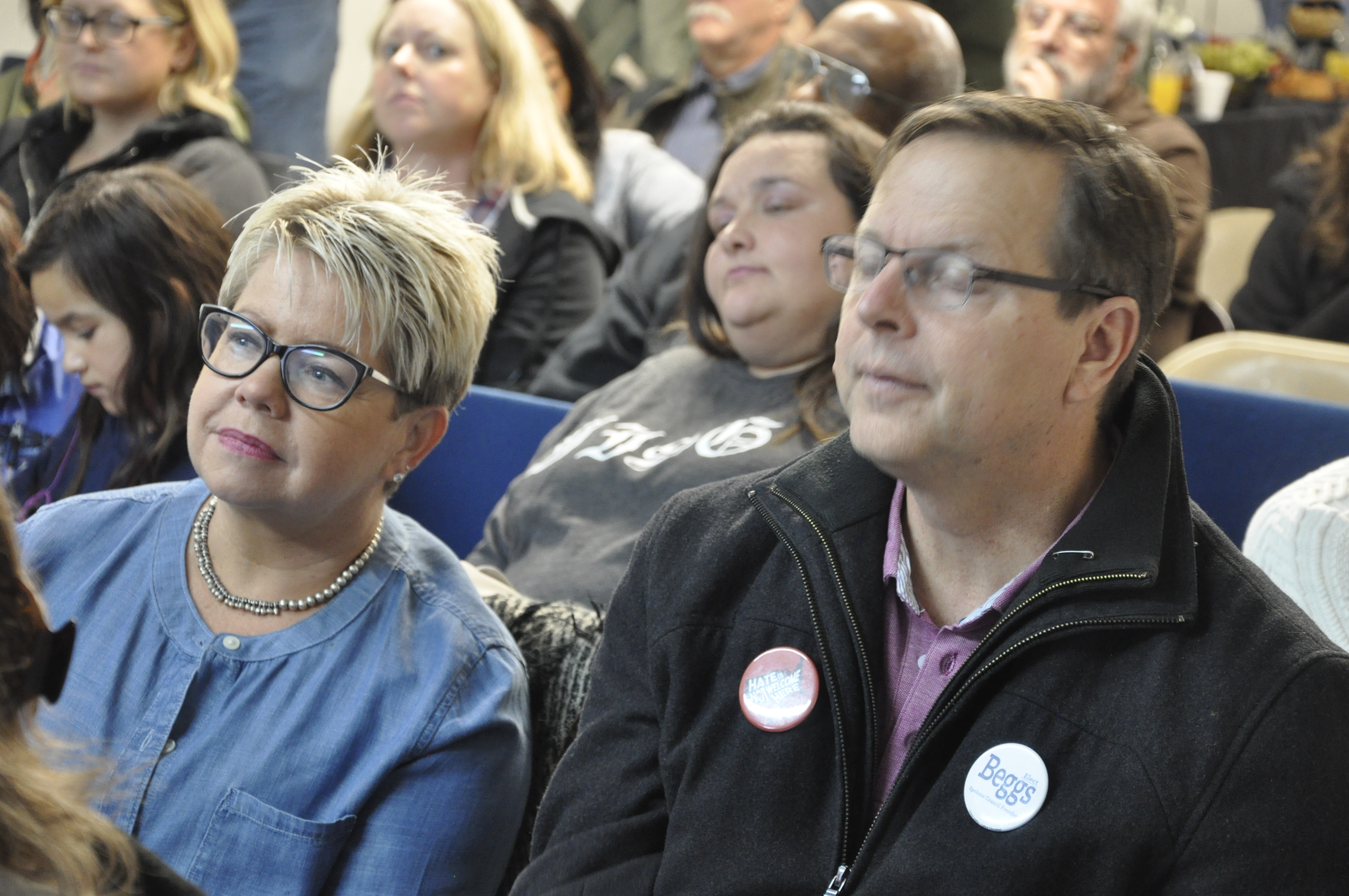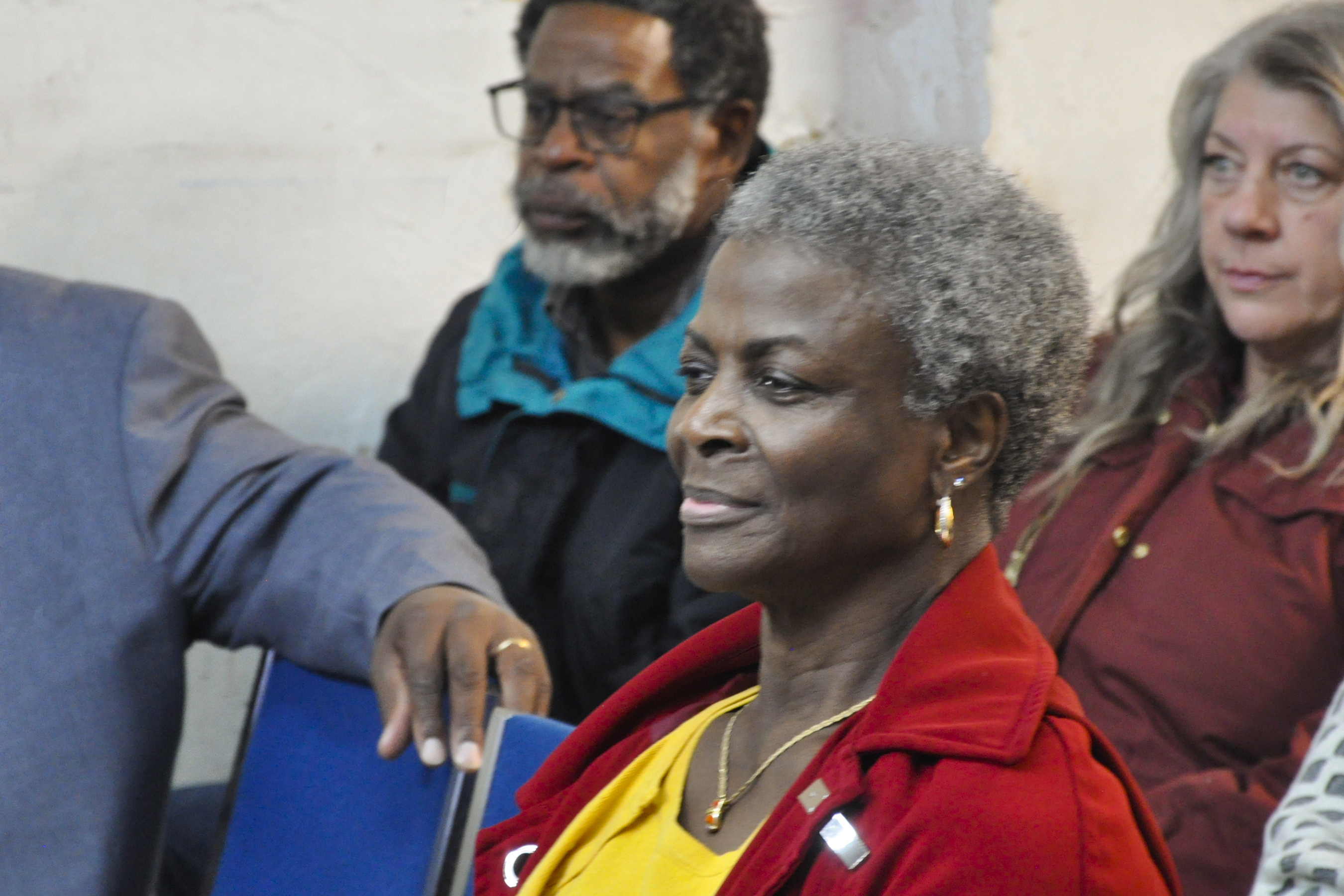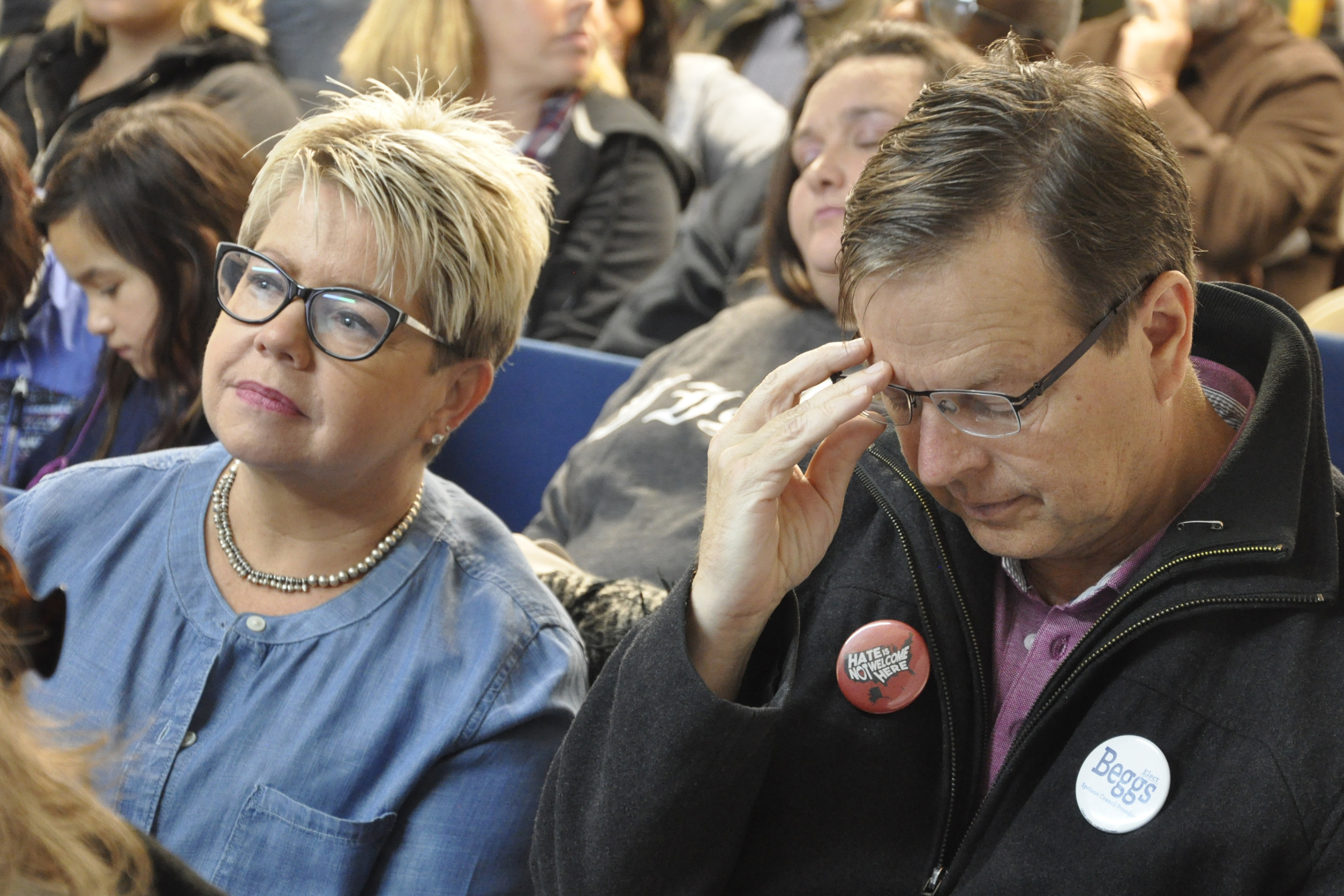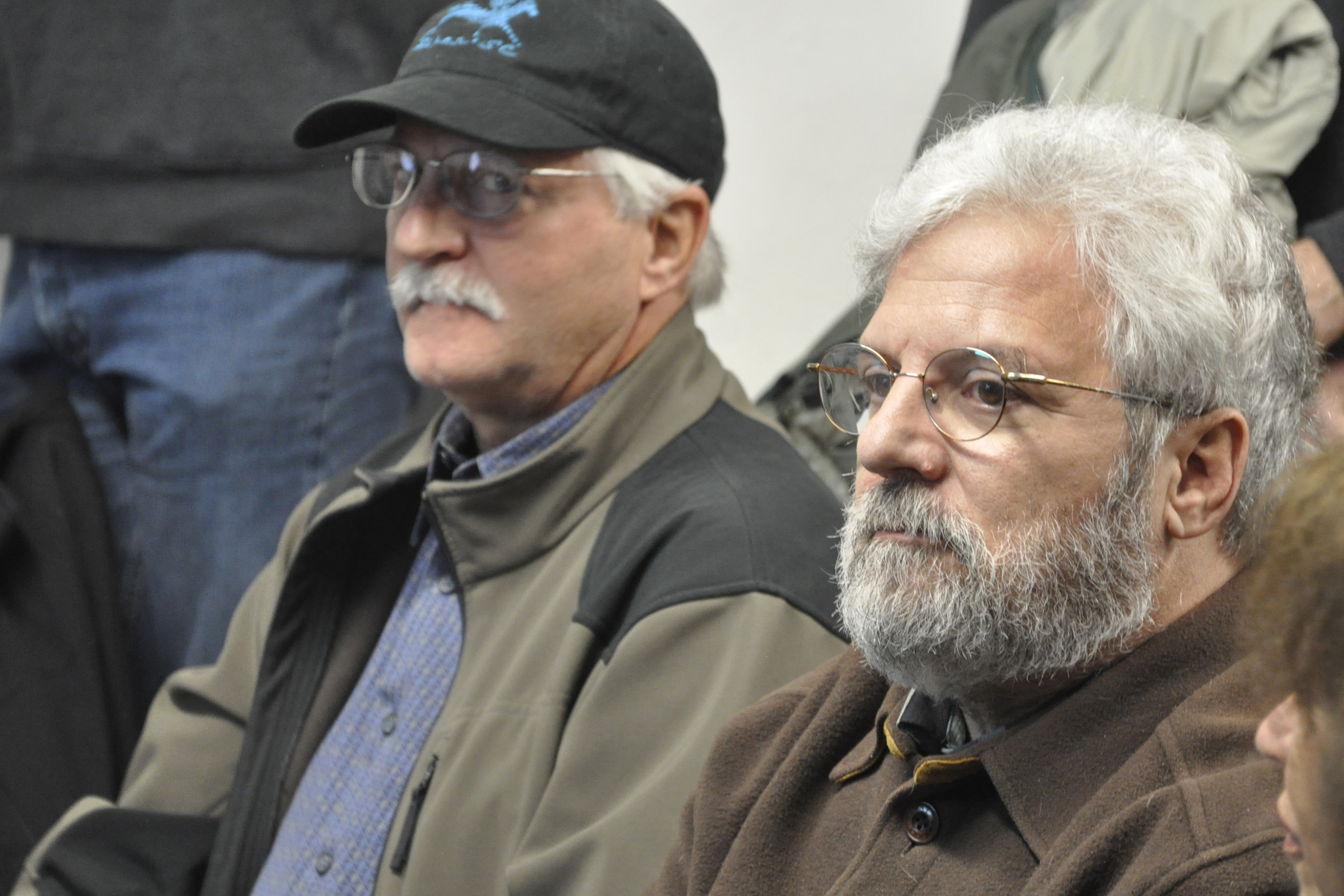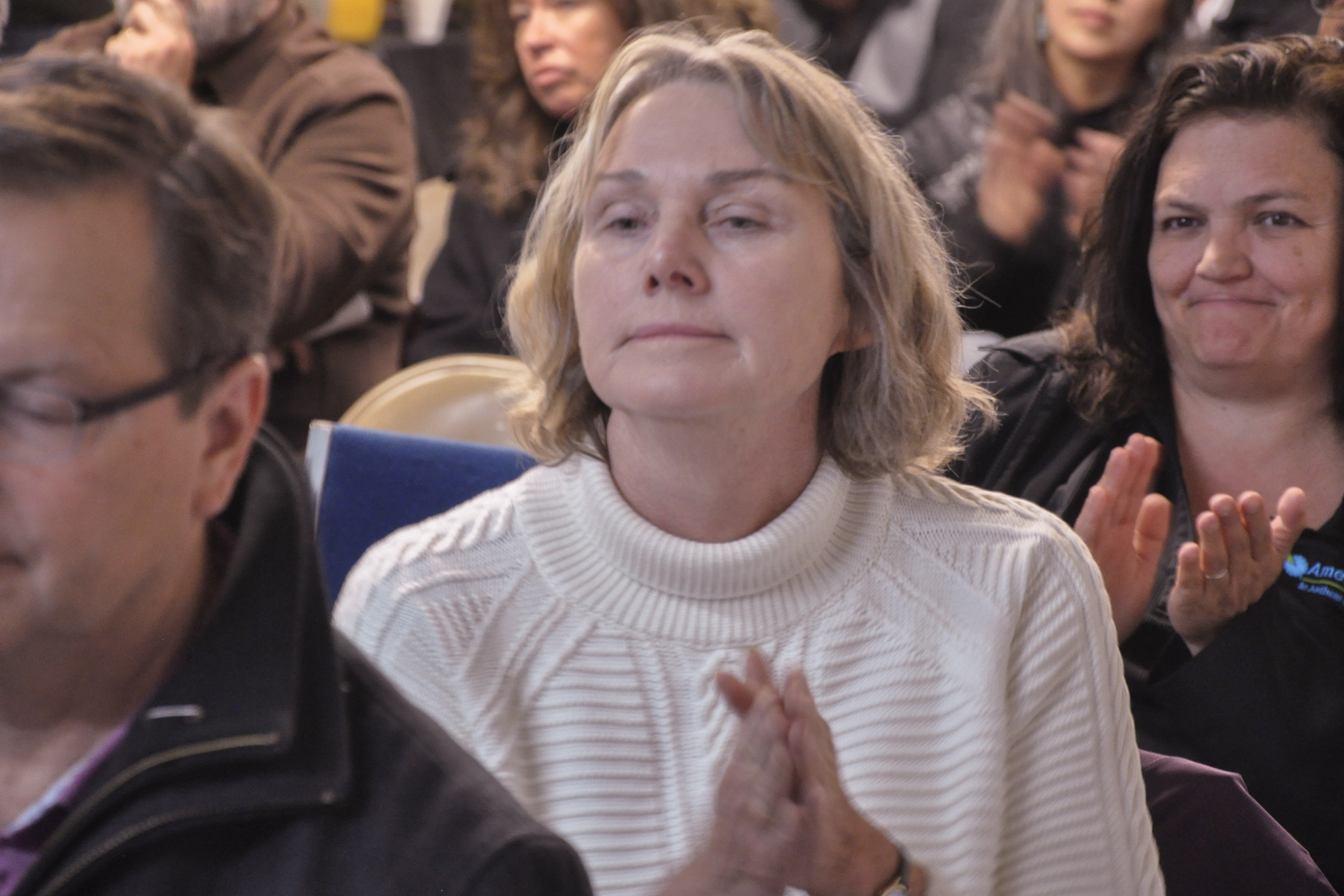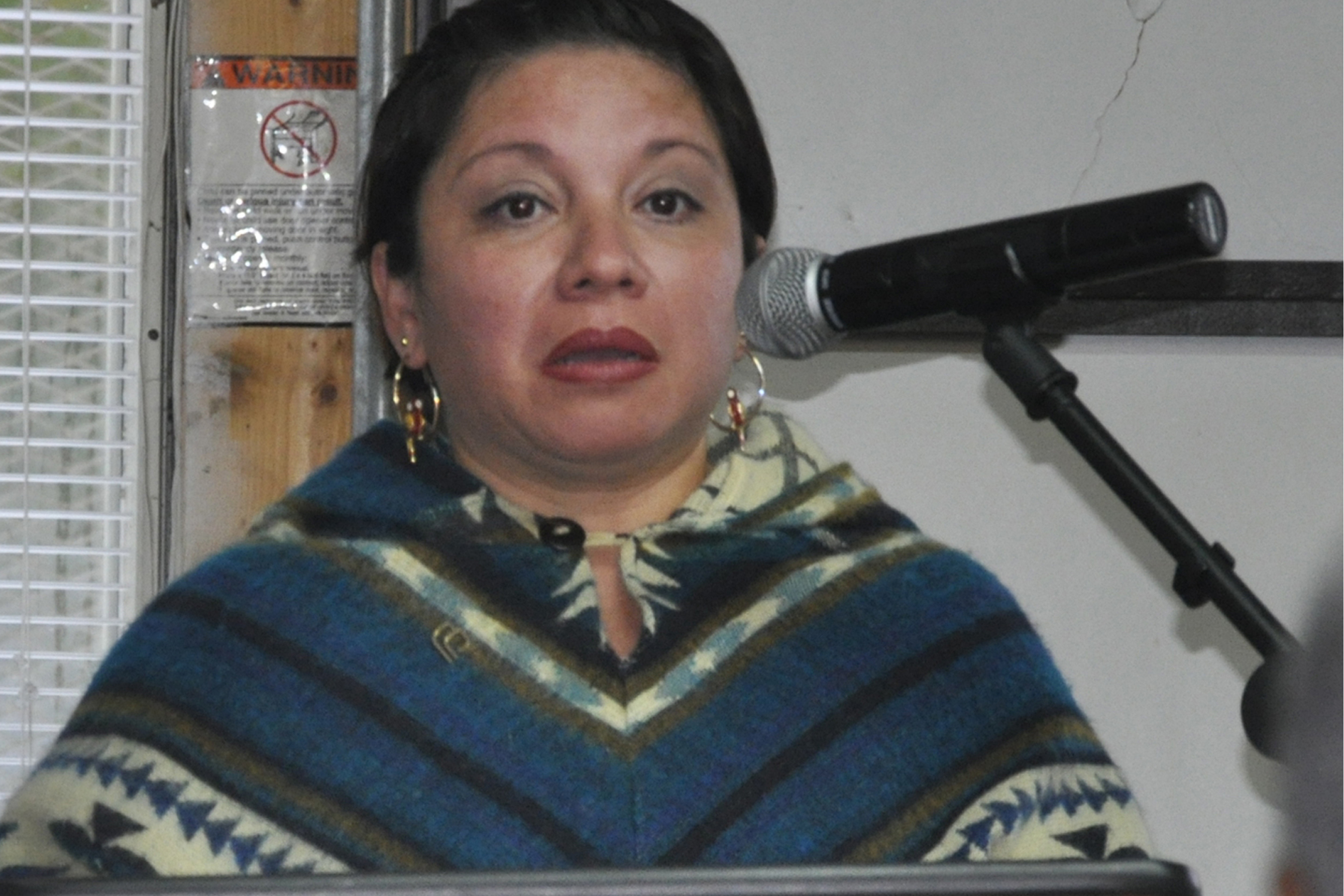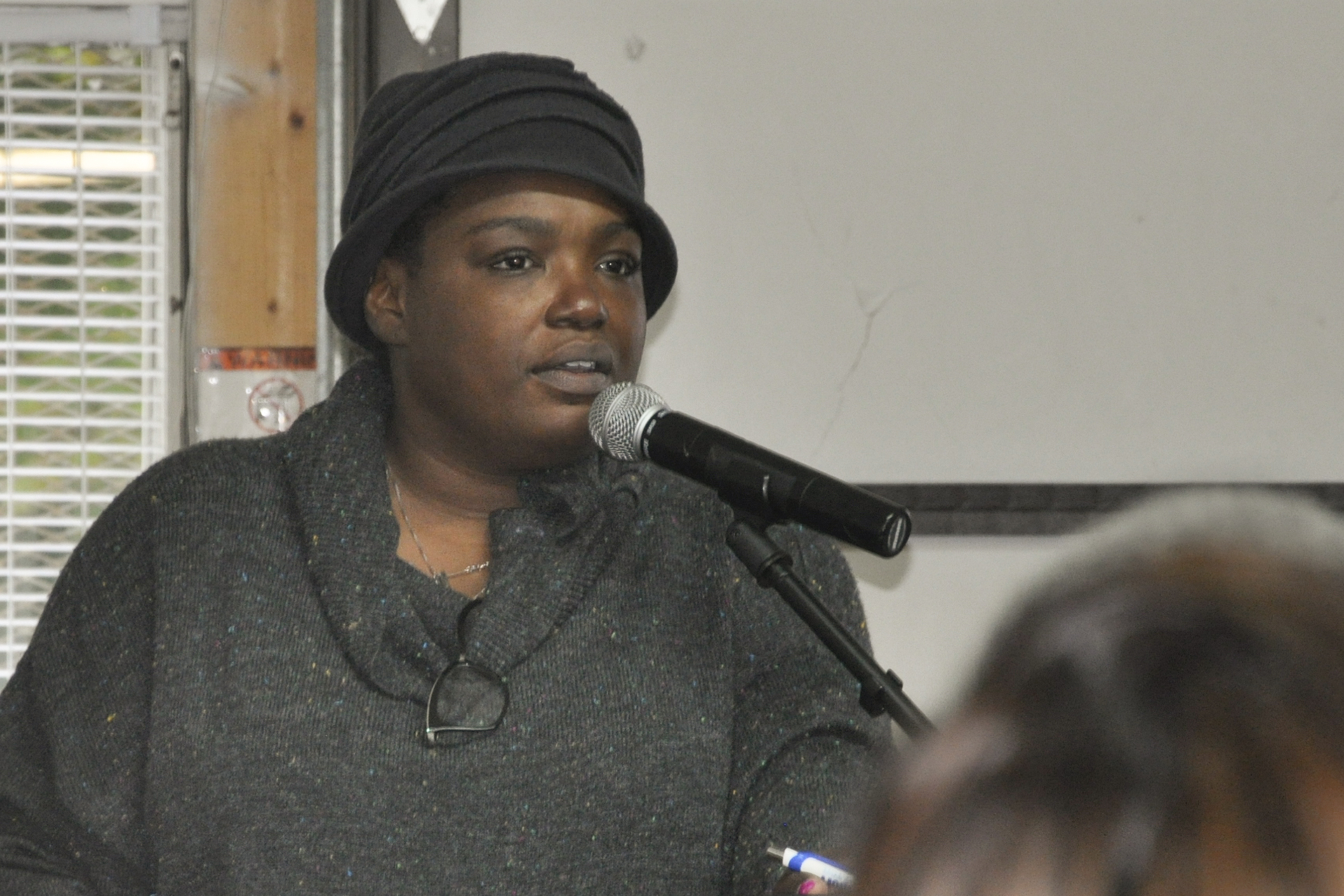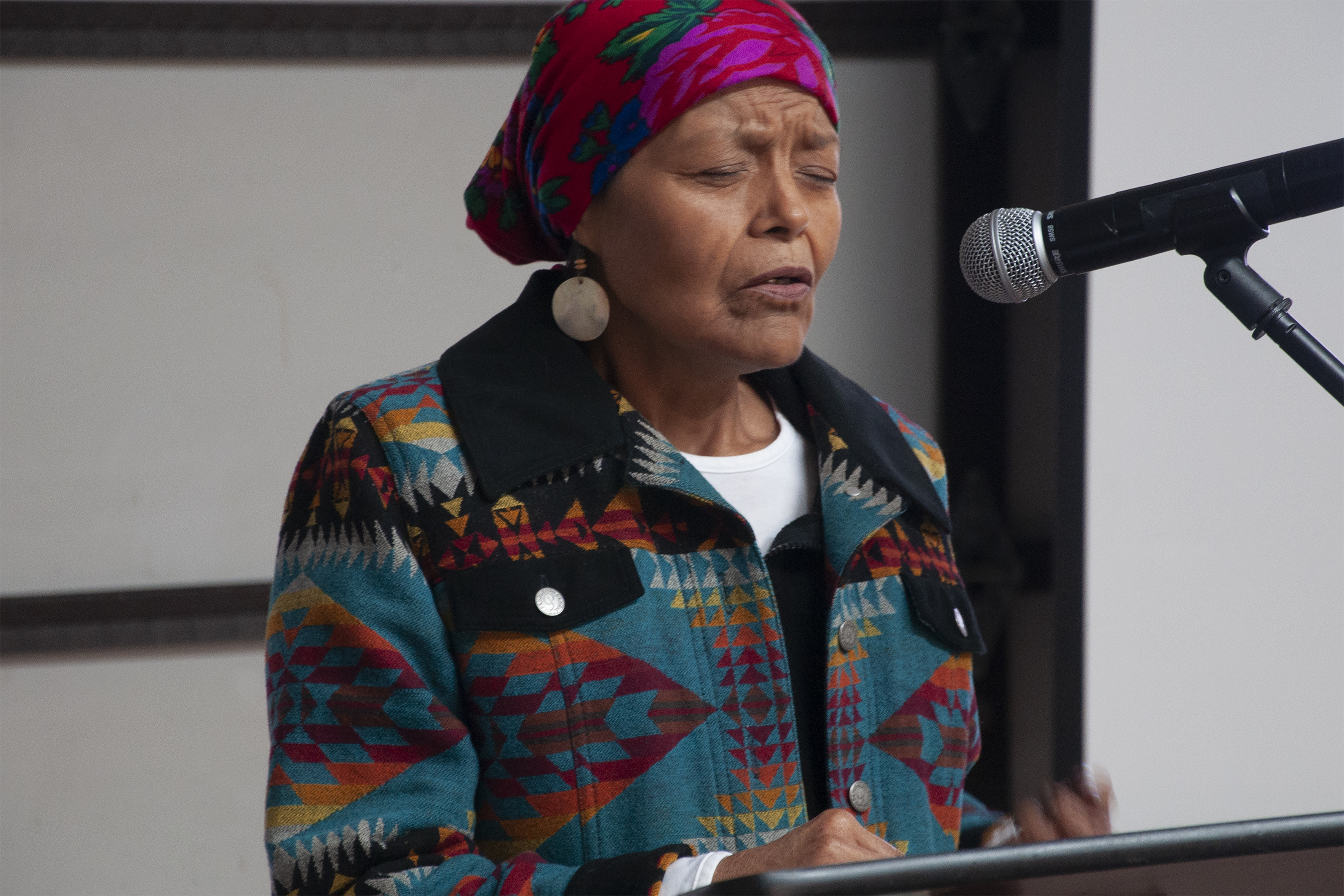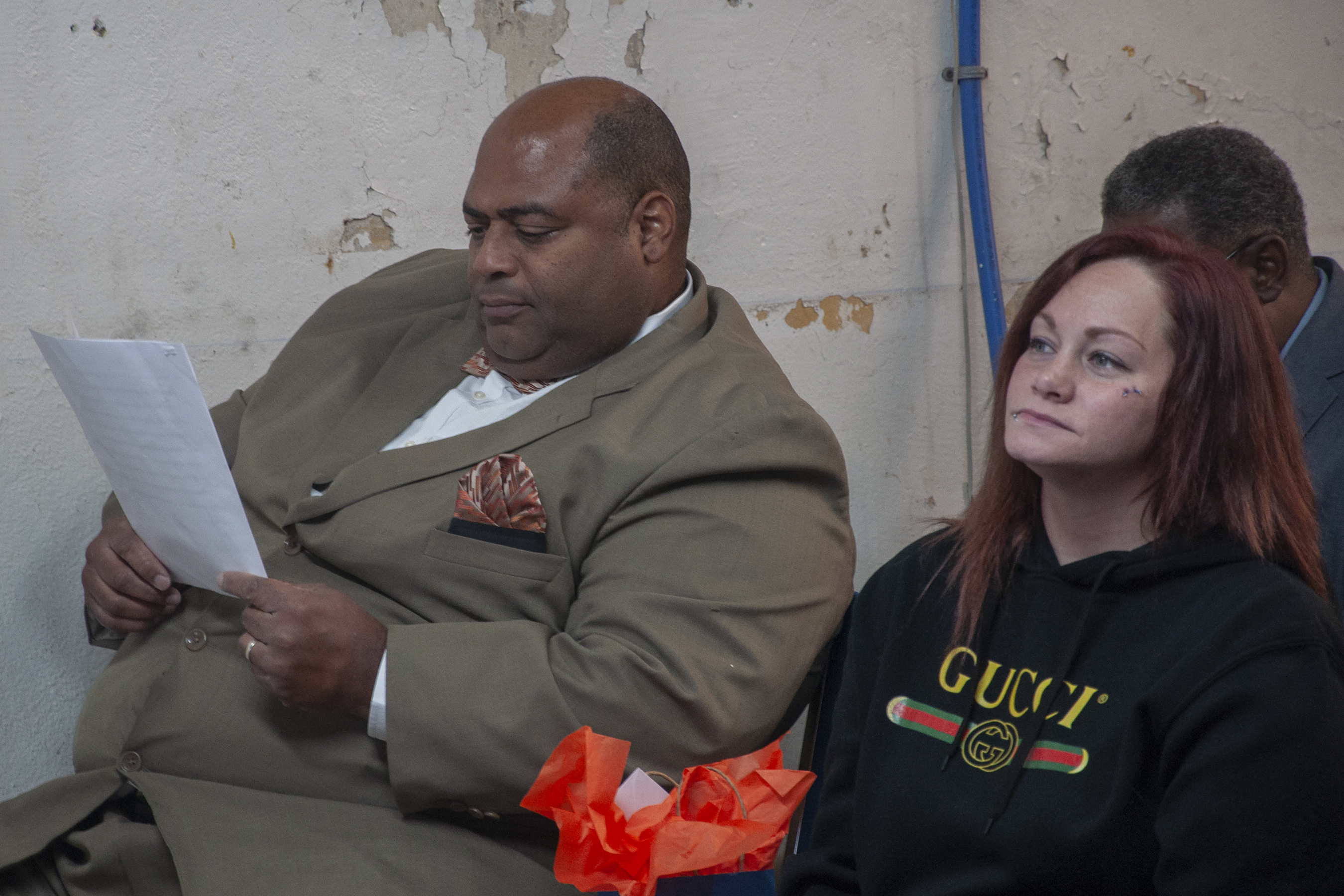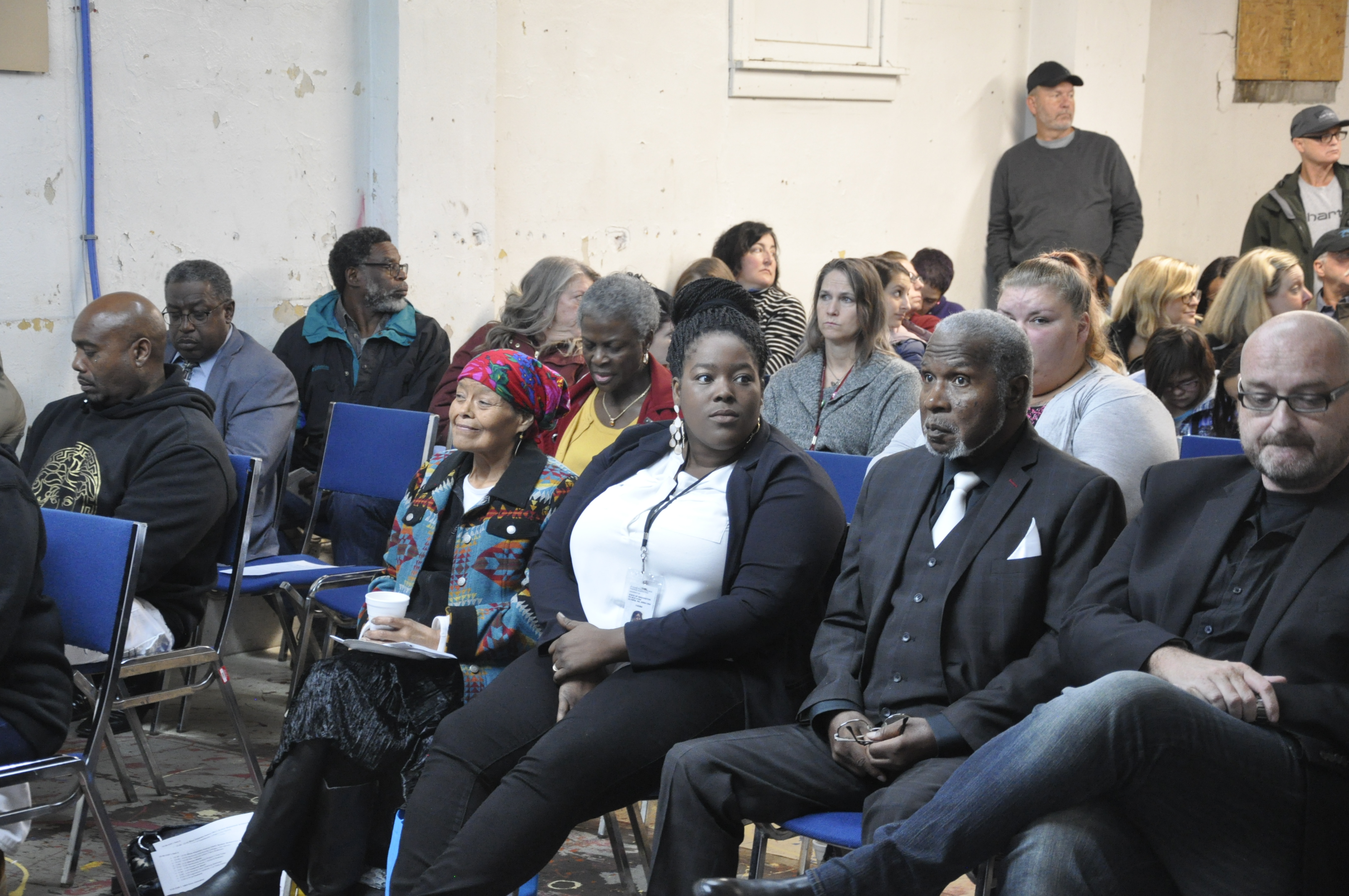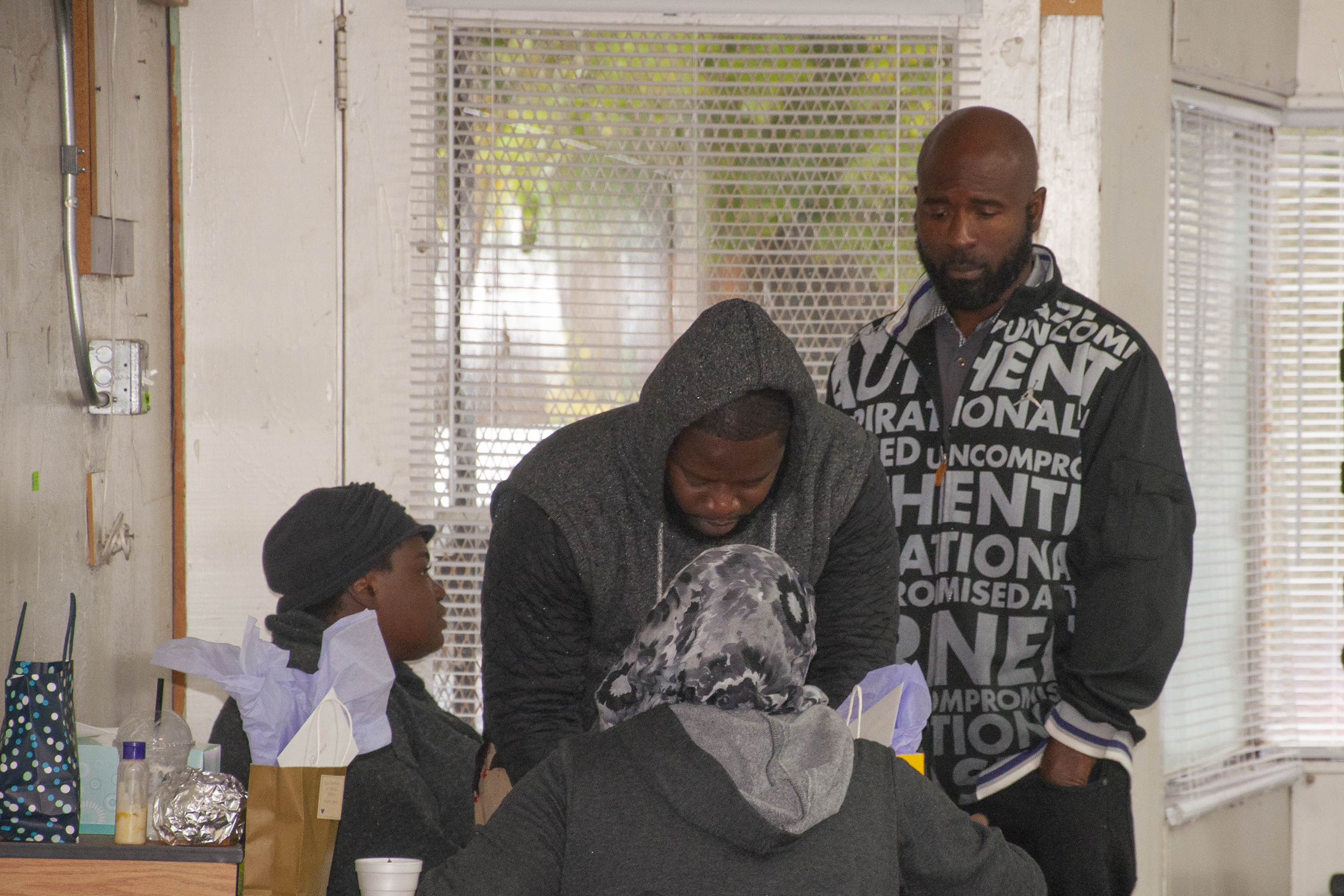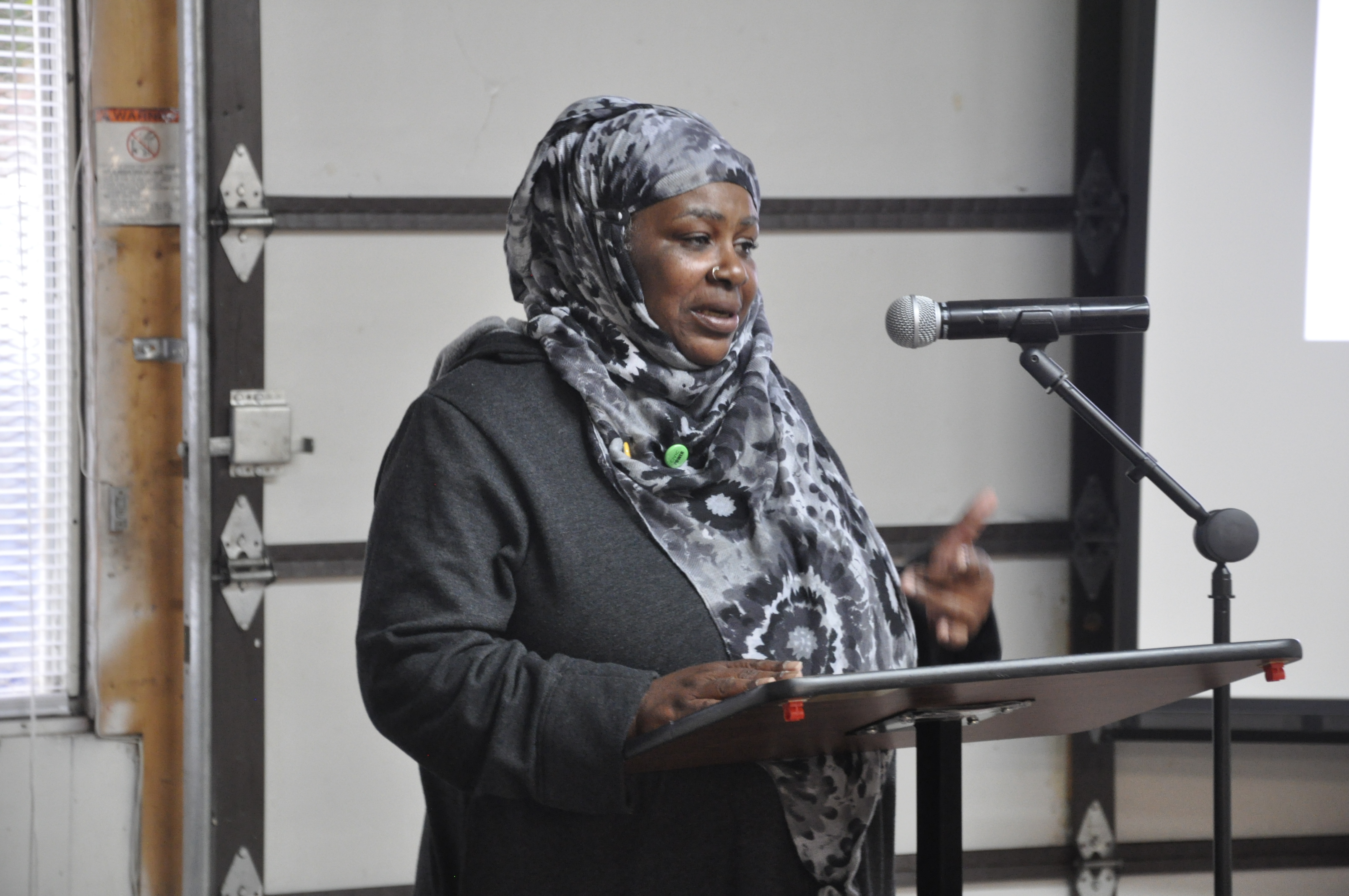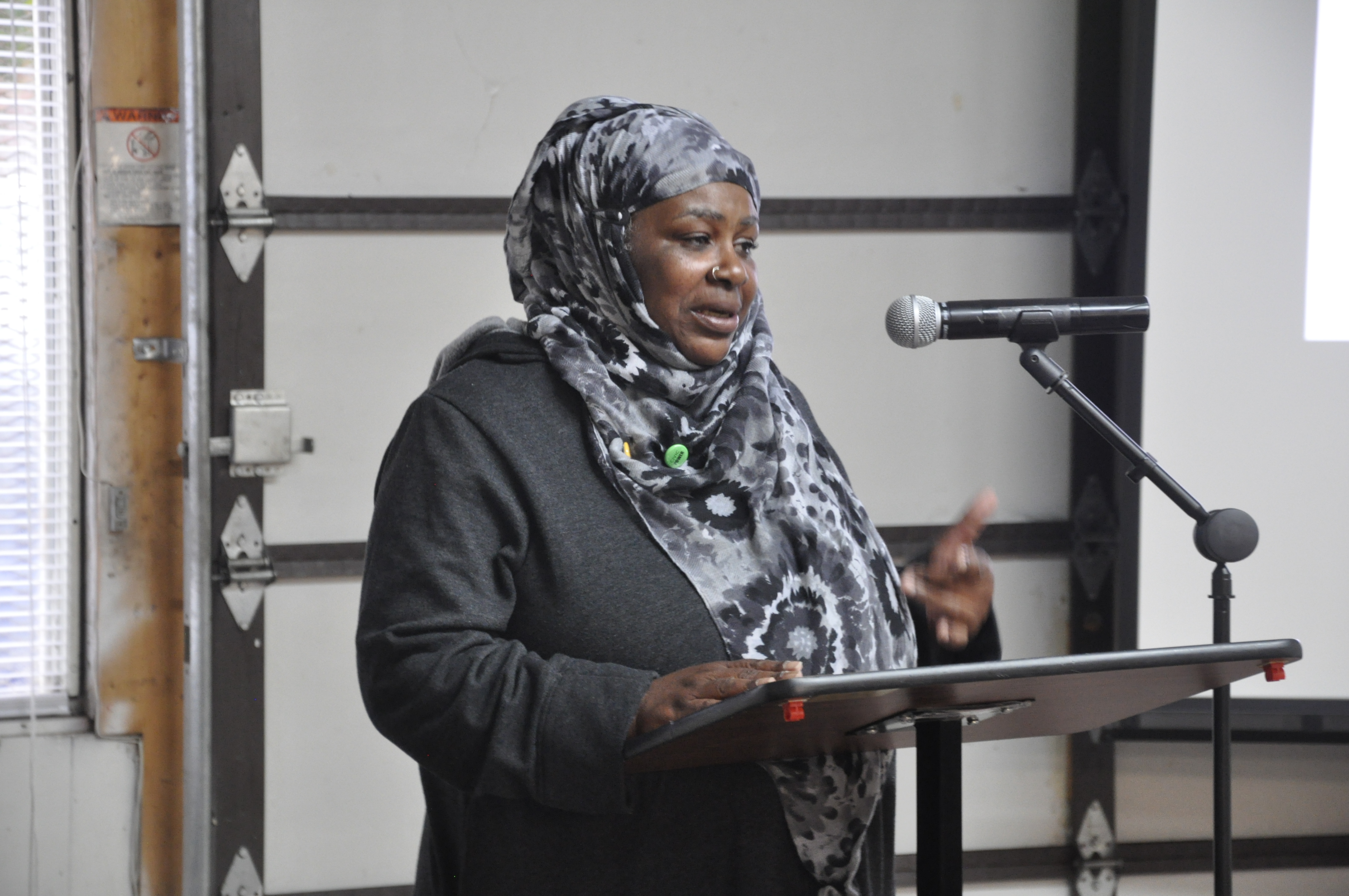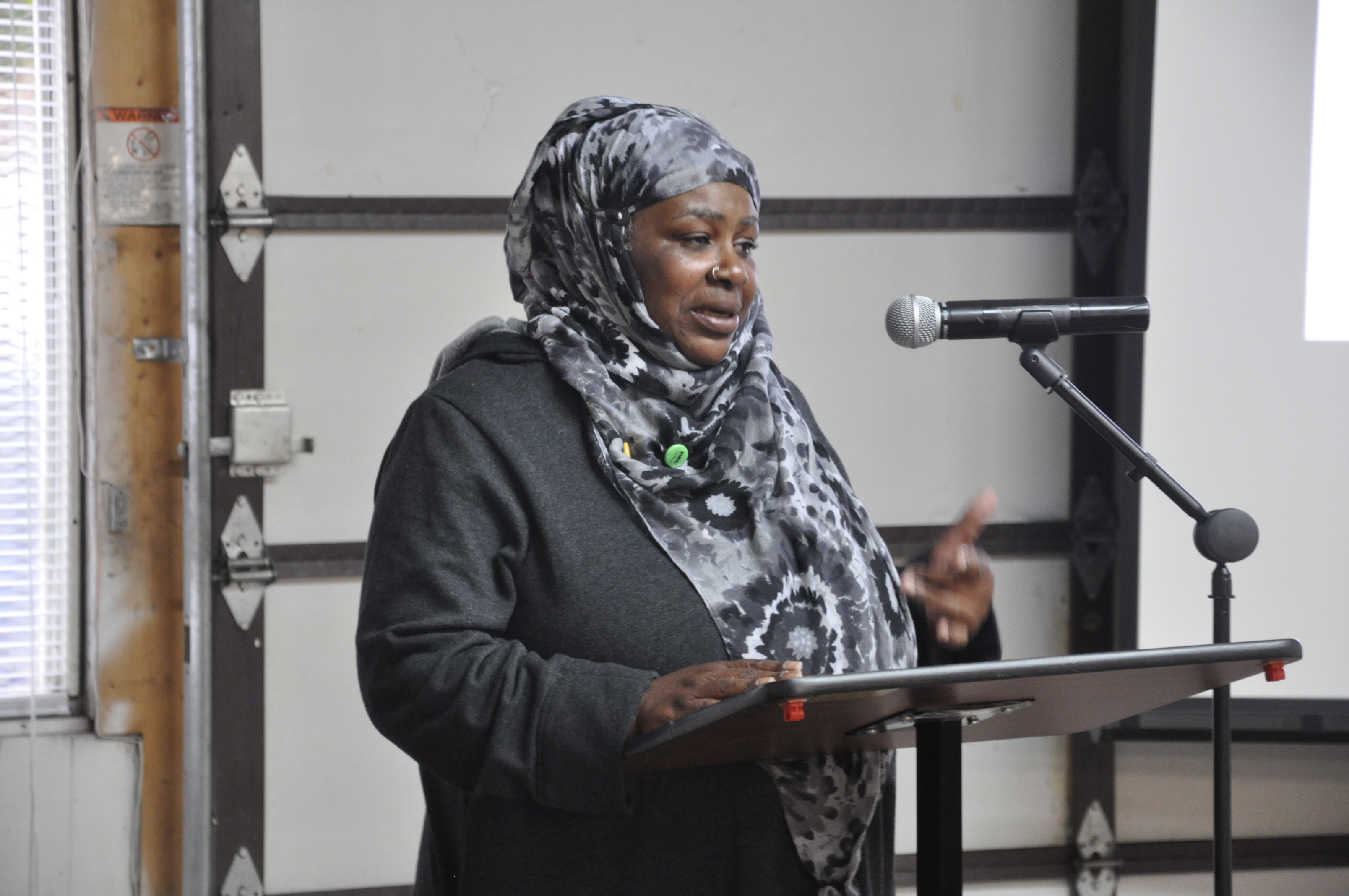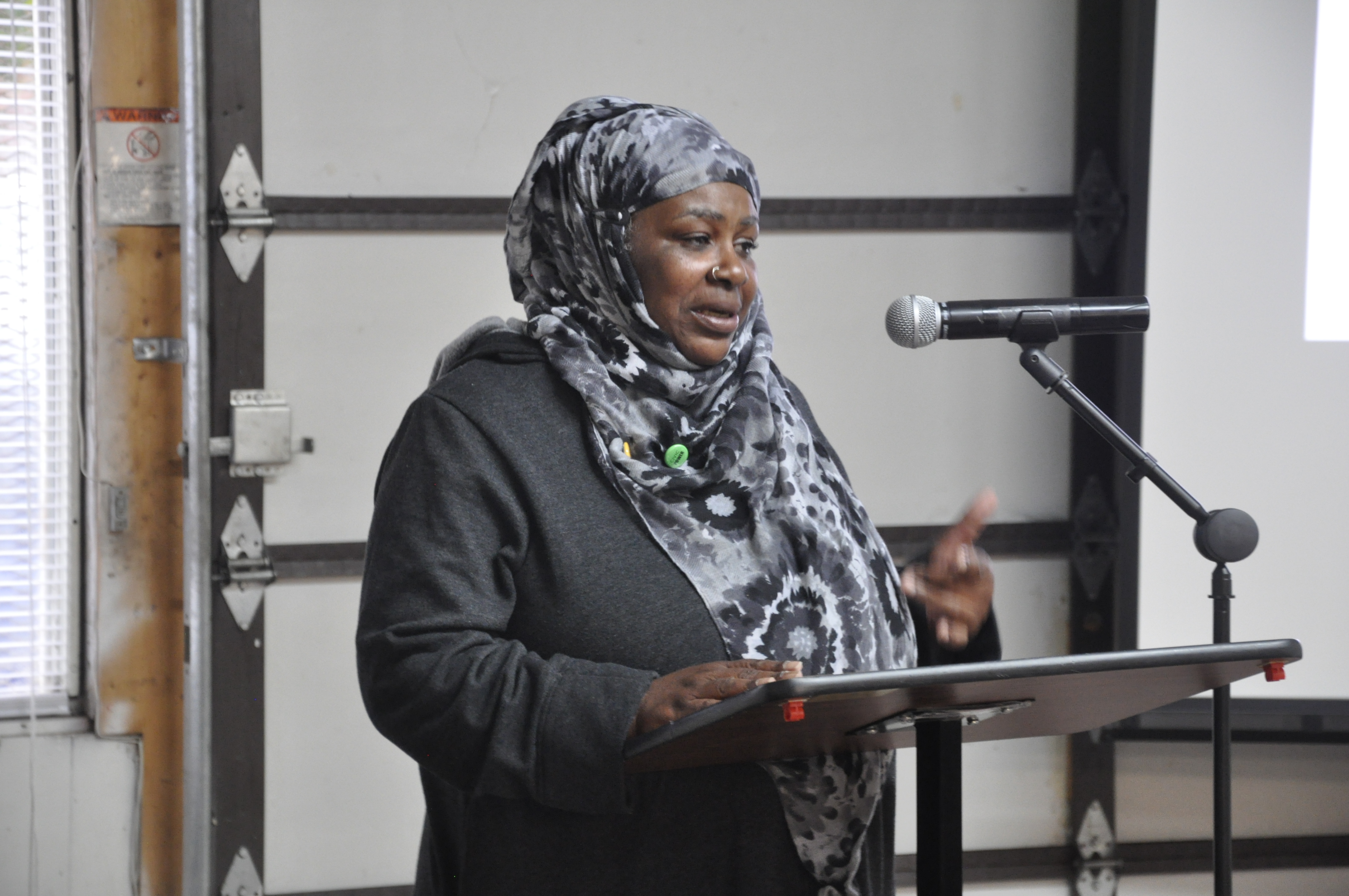- DEFUND THE POLICE: INVEST IN COMMUNITY
- CHANGE POLICE CULTURE
- POLICE OVERSIGHT
- JUSTICE REFORMS
Friday June 19, 2020 at 12:15 at The Spokane Tribal Gathering Place (outside City Hall), SCAR and its partner organizations unveiled their full Platform for Change..
PLATFORM FOR CHANGE—
RESPONDING TO THIS MOMENT
RELEASED: June 19, 2020
Spokane Community Against Racism (SCAR) and Asian Pacific Islander Coalition (APIC) – Spokane Chapter, Eastern Washington Progressives, Faith Leaders and Leaders of Conscience, FUSE Washington, Greater Spokane Progress, Hispanic Business/Professional Association, MAC Movement, Muslims for Community Action And Support, Peace and Justice Action League of Spokane (PJALS), Planned Parenthood Advocates of Greater Washington and North Idaho, Progressives of Spokane County, RAIZ of Planned Parenthood, Red Skirt Society, SHAWL Society, Smart Justice Spokane, Spectrum Center Spokane, Spokane Alliance, Spokane Ministers’ Fellowship, Tenants Union of Washington State, demand transformational change.
Spokane has a problem.
American policing tactics are rooted in white supremacy, fear, and violence. Spokane is not exempt from this, even though our mayor, police chief, county commissioners, and sheriff refuse to admit the true nature of the problem. In fact, Spokane has the 5th deadliest police force in the nation. We must end the cycle of fear and violence in our community and seize the opportunity during this tumultuous time to enact structural changes.
Death at the hands of police is not the only measure of racial violence. Here in Spokane, Black and Native Americans are disproportionately arrested, receive higher bail amounts, and are more likely to die in jail than whites. Our city and county officials know this. They have hired several consultants for millions of dollars to tell them so, yet they continue to ignore the good advice we all paid for.
We don’t trust them to understand, because they keep proving they are not listening.
At the invitation of the city and county, community members have spent thousands of hours sharing their testimony and lived experience in the name of community engagement. Yet elected officials have failed to honor this engagement by fulfilling their promises to decarcerate and advance racial equity.The residents of Spokane have fought officials numerous times to avoid building a new jail. Still—despite the wishes of the community—the County Commissioners and the Sheriff’s office continue to pursue a new, larger jail without first enacting the totality of humane, cost effective reforms which have been recommended to them over the past decade.
Sheriff Ozzie Knezovich continues to defend bringing the creator of “Killology,” a method of police training that teaches officers how to “…overcome the powerful reluctance to kill…” to train his deputies. He has doubled down on his support for killology training despite receiving thousands of petition signatures calling for the two-day seminar and workshop to be canceled. Spokane demands transformation. The unwillingness of the Mayor, Police Chief, County Commissioners, Sheriff, and other elected officials to heed expert advice and community lived experience, their stubborn insistence on expanding incarceration and entrenched racist systems, and their failure to listen to the community, convinces us that the elected leadership of Spokane does not grasp—or is not willing to meet—the needs of our community. We do not need more studies, consultants, conversations, forums, or media stunts. We are not interested in incremental change, but in drastic action.
To that end, we present the following Platform for Change. While we cannot hope to provide every comprehensive detail of necessary policy, we know the shape that change must take. This is the product of ongoing work within our community and around the country and is meant to serve as a mandate—it’s up to our leaders to help us all live up to its intent.
PLATFORM FOR CHANGE
DEFUND THE POLICE: INVEST IN COMMUNITY
SCAR rejects the idea that the only way to increase public safety is to increase policing. The power of state-sanctioned force and threat of lethal violence wielded by police is often inappropriate and inadequate to address the diversity of situations they are sent to resolve. Police are frequently tasked with handling homelessness, addiction, mental health, intimate partner violence, and other conditions in which they have no formal expertise; the result is often harm, injury, or even death for those whom the police are supposed to protect. The weight of these injuries and deaths falls most heavily upon people with medical or mental health conditions, people of color—particularly Black and indigenous people—and people with disabilities. This is not a problem that can be solved with more training. Expanding the power or authoritative scope of police in our communities will not make us safer.
Instead, SCAR embraces a holistic vision of public safety, one that accounts for the root causes of crime, and recognizes that shared prosperity and community care are at the heart of a safe and healthy society. When people’s basic needs are met, and experts are empowered to work within their expertise, communities are free to flourish. The City of Spokane and Spokane County will be safer when our leaders follow the advice of their expensive consultants, and the best practices indicated by decades of research in this and other cities. We demand investment in historically underserved communities to create a vibrant and healthy environment where all families can thrive:
Addiction and Mental Health Services
We demand public investment in culturally appropriate chemical addiction treatment and mental health services and diversion programs. These services should include crisis care, long-term in-patient, and out-patient care. Police are not mental health professionals and incarceration should not be a stopgap for healthcare or an underfunded social safety net.
Housing and Tenant Protections
We demand strong tenant protections and funding for permanent affordable housing to intentionally address racial disparities by providing equitable, stable, quality, safe, and accessible housing for all. We call on our city and county governments to implement just cause eviction and remove barriers to fair housing choice as indicated by the City’s 2019 Analysis of Impediments to Fair Housing Choice. Greater Spokane Progress and the Tenant’s Union of Washington State are working in this area, use their expertise to help shape policy.
Remove Police from Spokane Public Schools
We acknowledge and support the recently passed Public School Resolution Supporting the SPS Student Community Related to Racial Equity, and we believe this resolution represents a promising beginning to the work of racial equity and inclusion in Spokane Public Schools (SPS). In the interest of continuing this work, we demand an end to the contract between the Spokane Police Department and Spokane Public Schools.
SPS has the largest school policing budget in Washington State at $2.2 Million. That’s $2.2 Million spent to support the School-to-Prison Pipeline, a system which disproportionately funnels children of color from educational settings into the criminal justice system. Using police to address student behavior positions students as potential criminals who require management through the threat of legal and physical force, instead of recognizing them as children who are learning to manage conflict and their emotions.
We demand investment in school counselors, restorative conflict resolution practices, and activity programming which provides youth with constructive outlets and interpersonal learning environments. The ACLU of Washington has been at the forefront of this issue, listen to them.
CHANGE POLICE CULTURE
Public trust in the SPD is broken. It’s the 5th deadliest police force in the nation, and officers have been using the same knee-on-neck restraint that killed George Floyd until June 8th, 2020. We believe it is necessary to start fresh.
Disband the Police
Disband the police department, and hire a smaller group of officers to carry out narrowly defined, law-enforcement duties. In 2016, the Police Leadership Advisory Committee (PLAC) put together recommendations for the hiring of a new police chief. These recommendations, which could have helped revolutionize the culture of the SPD, were ignored. We believe these recommendations should be applied to all officers hired to work in the City of Spokane. PJALS has been deeply involved in this work, listen to them.
De-escalation Training for SPD and County Forces
While we do not believe the fundamental problems with American policing can be trained away, we support the will of Washington State Voters who voted decisively in favor of Initiative 940. Passed in 2018, Initiative 940 requires police receive training in de-escalation and mental health, and enforces the duty of all police officers to render first aid. It is our hope that with these tools police will be less likely to use lethal force, and that when they do, that force is less likely to result in death.
De-escalation and mental health training have the potential to not only act as positive tools in the current policing toolbelt, but to provide an additional standard to which police can be held accountable.
Demilitarize the Police
Our city is not a warzone, and weapons of war should not be used on our streets. This includes tear gas—a chemical weapon which is banned by the Geneva convention—and all repurposed military surplus equipment. Military uniforms, vehicles, and weaponry communicate to the residents of Spokane that the police view them as enemy combatants. Furthermore, militarized uniforms encourage a “warrior” mindset in police, which emphasizes readiness for violent conflict over the relationship-based work of building community trust. Spokane does not need street warriors, Spokane needs public servants we can trust; from their uniforms to their equipment, police should be equipped for the job that is needed.
POLICE OVERSIGHT
Independent Oversight with Investigative Power is a necessity at the Spokane Police Department and the Spokane County Sheriff’s Office.
No Contract without Office of Police Ombudsman Independence
We demand that the Office of Police Ombudsman (OPO) be empowered to conduct independent investigations and publish public closing reports. We demand that the OPO be free to conduct these independent investigations without fear of reprisal by the Police Guild.
A poison pill amendment to the Police Guild’s contract with the City of Spokane, which is still being negotiated, would allow the Police Guild to preemptively file a grievance against an Ombudsman candidate in an effort to prevent their appointment. It further empowers the Guild to attempt to have the Ombudsman or an OPO Commission Member removed for “exceeding their authority under the collective bargaining agreement.” Police cannot control the fate of the body that oversees them. We demand that the Spokane City Council reject any contract that fails to protect OPO independence.
NO CONTRACT without independent investigative power and public closing report. NO CONTRACT with police guild oversight of the OPO.
Mandatory body cameras for SPD and County Forces
Body cameras should be mandatory for every SPD officer and County deputy as a tool for reviewing police encounters with Spokane residents. Body cameras do not prevent violence, but they can be valuable for holding the police accountable. Turning off a body camera should come with an automatic charge of destroying evidence.
JUSTICE REFORMS
We urgently need to adopt effective, restorative policy solutions that are driven by the needs of those impacted by our justice system.
Jail Reforms
We demand divestment from the prison industrial complex: NO NEW JAIL; end policies that criminalize poverty, homelessness, and addiction; end cash bail; and end draconian drug charging decisions by the County Prosecutor’s office.
Instead, the city and county should invest in racial equity tools throughout our justice system; release criminal justice system demographic data; and adopt least-restrictive alternatives to jail with fully funded pretrial services. Smart Justice Spokane has been leading on these issues, and we demand our government listen to and collaborate with them.
Judicial Accountability
Impartial judges are the ideal, but we know that their decisions are vulnerable to the forces of systematic oppression and unconscious bias. For this reason we demand that the county, in cooperation with the courts, release sentencing data dis-aggregated by judge and defendant’s demographic information, including race and gender. With this data, voters—and the community groups who help keep them informed—will be empowered to identify racial sentencing disparities, and if necessary, right them at the ballot box.
Establish an Office of Civil Rights
The City of Spokane needs a fully funded and staffed Office of Civil Rights. This office would work within the City government to advance civil rights and end barriers to equity. It would regularly assess the city’s approach to racial equity, and provide education and training to government and local entities. The Office of Civil rights would receive civil rights complaints from the residents of Spokane, address hate crimes, and ensure that laws against illegal discrimination in employment, housing, public accommodations, and contracting within Spokane city limits are equitably enforced. The Office of Civil Rights Exploratory Committee and Greater Spokane Progress are already working on the structure of this office. Listen to and collaborate with them.
These are just some of the changes that Spokane needs. These demands are rooted in the data-backed reality, and the spiritual conviction, that a punitive approach to public safety has never, and will never, yield a free and equitable society.
Policing can no longer be the bandaid we affix to every social wound. Instead, we must build a Spokane where everyone is free to thrive. The time for incrementalism and half measures is past. This community demands transformation, and will continue to do so in statements, in public meetings, at the ballot box, and in the streets. It is up to our leadership to listen, and to do the jobs for which they were elected. The people are watching.
Take Action: Send letter of support to Spokane Leadership!
Download a PDF of the Platform
Donate to help spread awareness of this platform
TAKE Action!
SUPPORT THE PLATFORM!
Spread the word on social media
Resource
Spokane Trial Bushnell Shoots Pointdexter: Bushnell Transcripts

